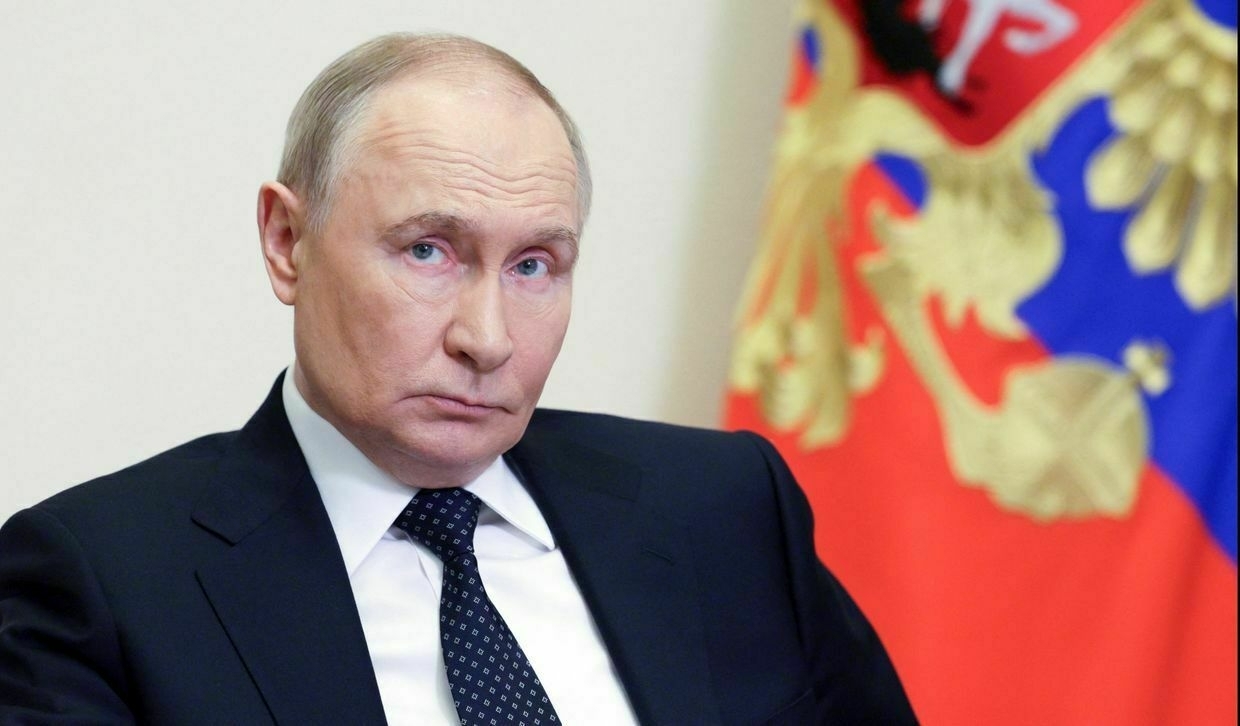-
Ukraine war latest: Ukrainian forces push Russian army away from Sumy
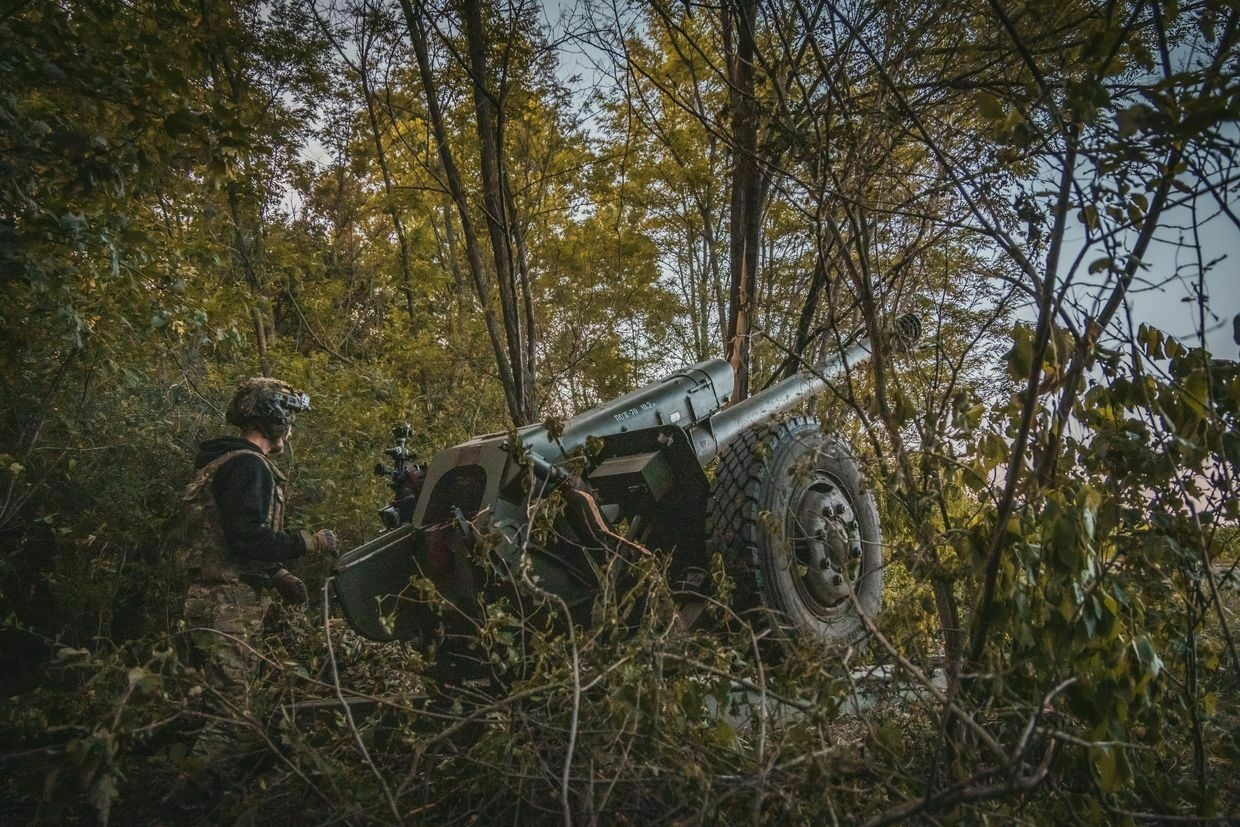
Key developments on June 30:
- Ukrainian forces push Russian army away from Sumy, General Staff says
- Ukrainian military again denies reports on Russian troops entering Dnipropetrovsk Oblast
- After months of stalling, Russia blames Ukraine, US for slow pace of peace talks
- Germany vows to pursue ‘every path’ to boost Ukraine’s air defenses, FM Wadephul says in Kyiv
Ukrainian forces have stabilized the situation in Sumy Oblast and pushed the Russian army further away from Sumy, the region’s capital, Ukraine’s General Staff reported on June 30.
Moscow launched its new summer campaign in May, aiming to push deeper into Ukraine’s northeastern and eastern regions and disregarding Kyiv’s calls for an unconditional ceasefire.
Ukrainian troops advanced near the village of Oleksiivka, located less than 30 kilometers (18 miles) from the city of Sumy, and liberated the village of Andriivka, which had been captured by Russia in early June, the statement read.
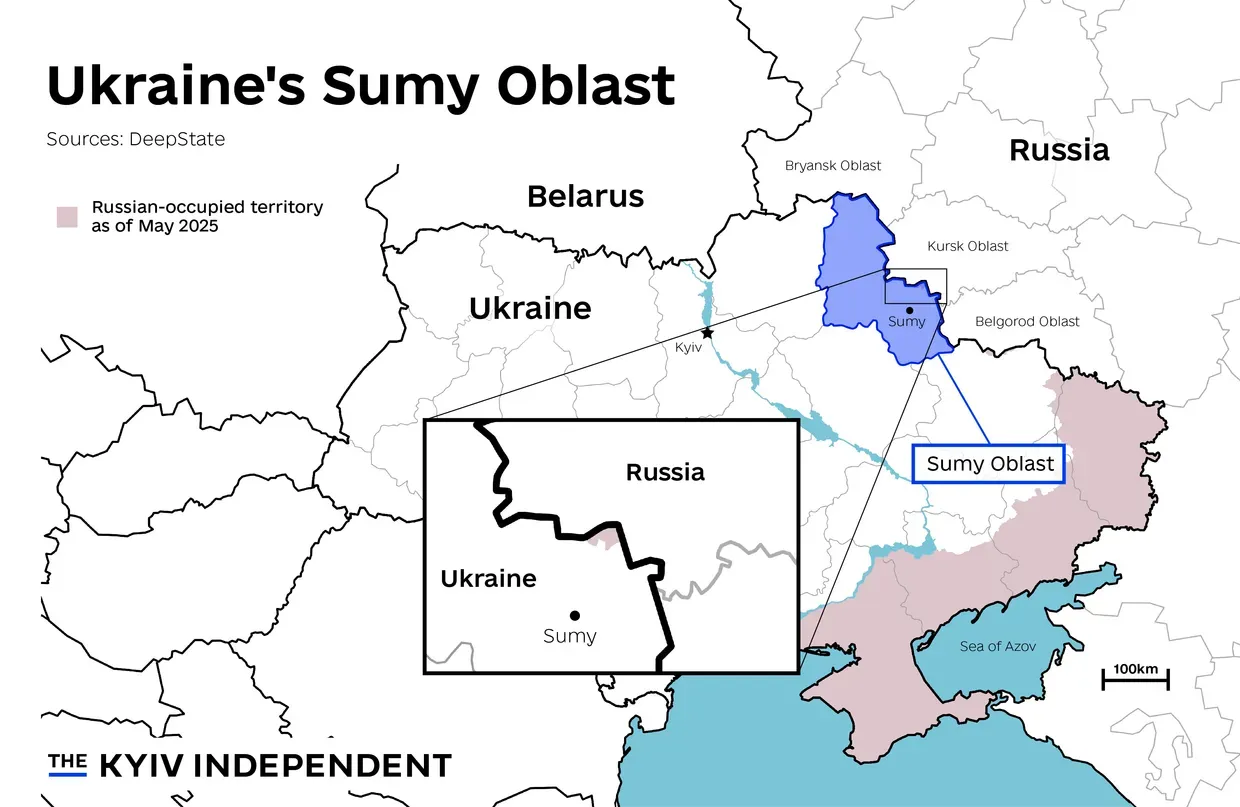
A map of Ukraine’s Sumy Oblast (Nizar al-Rifal/The Kyiv Independent) In the meantime, Ukraine also stopped the Russian advance along the Yunakivka-Yablunivka-Novomykolayivka-Oleksiivka-Kindrativka line and the border with Russia near Kursk Oblast, according to the General Staff.
Russia has deployed its best brigades on this section of the front line and is using long-range artillery, aircraft, and attack drones, the General Staff said.
President Volodymyr Zelensky also said on June 30 that Ukrainian troops had halted the Russian offensive in Sumy Oblast.
“The Russian plan for an offensive in Sumy Oblast is not succeeding — thanks to every Ukrainian unit operating in the area,” Zelensky said after a meeting with the military leadership and Defense Minister Rustem Umerov.
Smashing previous monthly record, Russia launches 5,337 kamikaze drones against Ukraine during JuneRussia launched a record 5,337 Shahed-type drones against Ukraine in June, according to data from the Ukrainian Air Force and Dragon Capital, smashing the previous record of 4,198 set in March. Russia’s bombardments, a fact of life after three years of full-scale war, have intensified dramatically in MayThe Kyiv IndependentYuliia Taradiuk
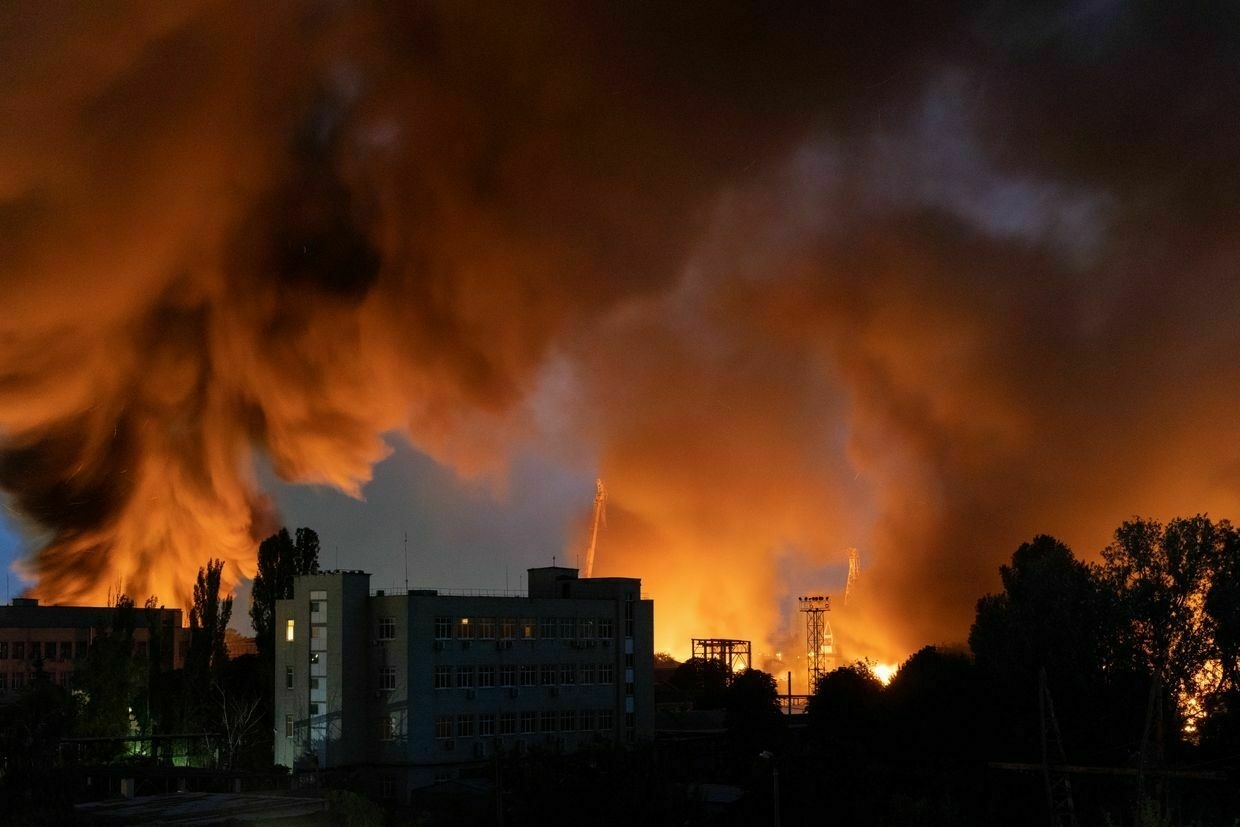
Ukrainian military again denies reports on Russian troops entering Dnipropetrovsk OblastThe Ukrainian military on June 30 denied the latest reports that Russian troops had entered Dnipropetrovsk Oblast.
Since June 29, the Ukrainian battlefield monitoring group DeepState has marked a “gray” zone in Ukraine’s Dnipropetrovsk Oblast, identifying potential fighting in this section of the front line. Near the village of Dachne in Dnipropetrovsk Oblast, the zone extends almost a kilometer into the region.
Meanwhile, Kremlin propagandists claimed on Telegram that Russian troops had captured Dachne.
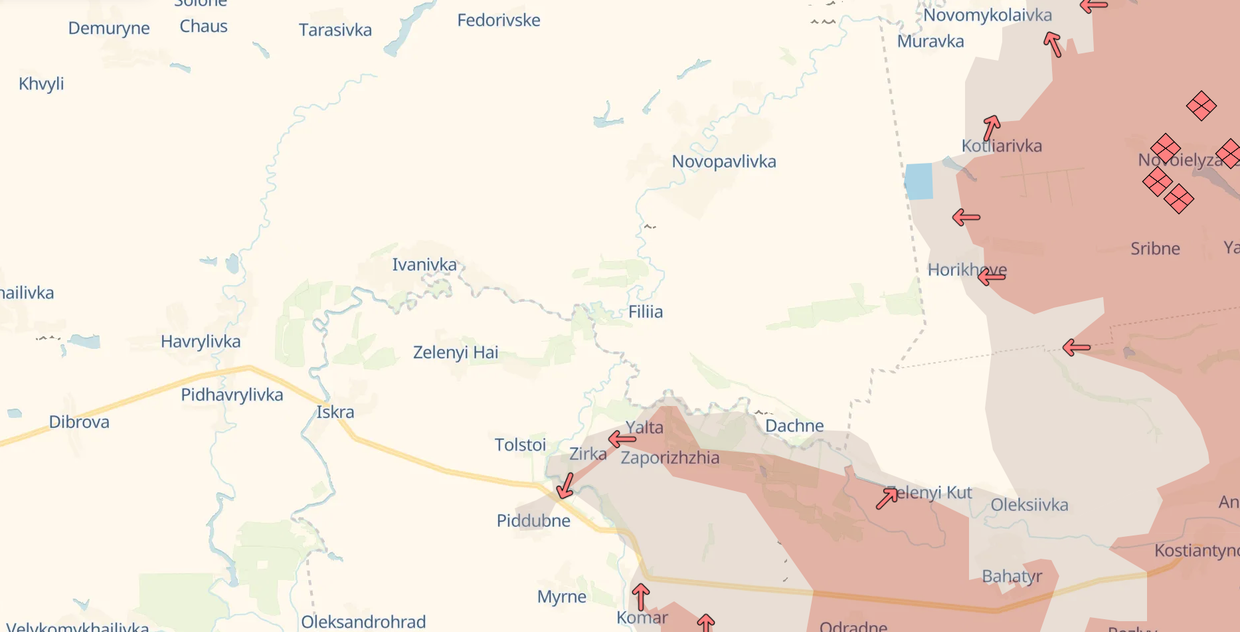
The estimated Russian advance in Donetsk Oblast as of June 29, 2025. (DeepState/OpenStreet Map) The reports were denied by spokespeople of two Ukrainian brigades and the Khortytsia group of forces on June 30, Suspilne reported.
“There are very active battles in the villages located near the administrative border of the region,” Viktor Tregubov, spokesperson for Ukraine’s Khortytsia group of forces, told Suspilne, adding that Ukraine is holding the defense line near the villages of Yalta, Komar, and Shevchenkove.
Tregubov added that Russian troops had not entered Dnipropetrovsk Oblast as of noon on June 30.
The press service of the 3rd brigade of the National Guard, stationed in the nearby Pokrovsk sector of the front line, also denied the information about the breakthrough.
Nazar Voitenkov, spokesperson for the 33rd Separate Mechanized Brigade, based in Zaporizhzhia Oblast, also said that the Russian army had made no advances into Dnipropetrovsk Oblast.
“We are holding the defense line. The line is constantly changing, but the enemy has not broken through,” Voitenkov said.
Andrii Kovalenko, head of Ukraine’s counter-disinformation center, said on Telegram that fighting is taking place near the region’s administrative border, and Russian FPV (first-person-view) drones are also flying into Dnipropetrovsk Oblast,
But despite the heavy battles, there is no breakthrough, he added.
Russia pulls its scientists out of Iranian nuclear plant, as Israeli strikes threaten decades of collaborationIsrael’s strikes on Iranian nuclear facilities have alarmed none more than Russia, the country that first brought nuclear power to Iran in defiance of Western objections. We’re “millimeters from catastrophe,” said Kremlin spokeswoman Maria Zakharova on June 18 in response to a bombing campaign that Israel launched against Iran on June 13. Decades of conflict with the West have united Iran and Russia, despite a cultural gulf between the two nations that dwarfs the Caspian Sea that physically di The Kyiv IndependentKollen Post
The Kyiv IndependentKollen Post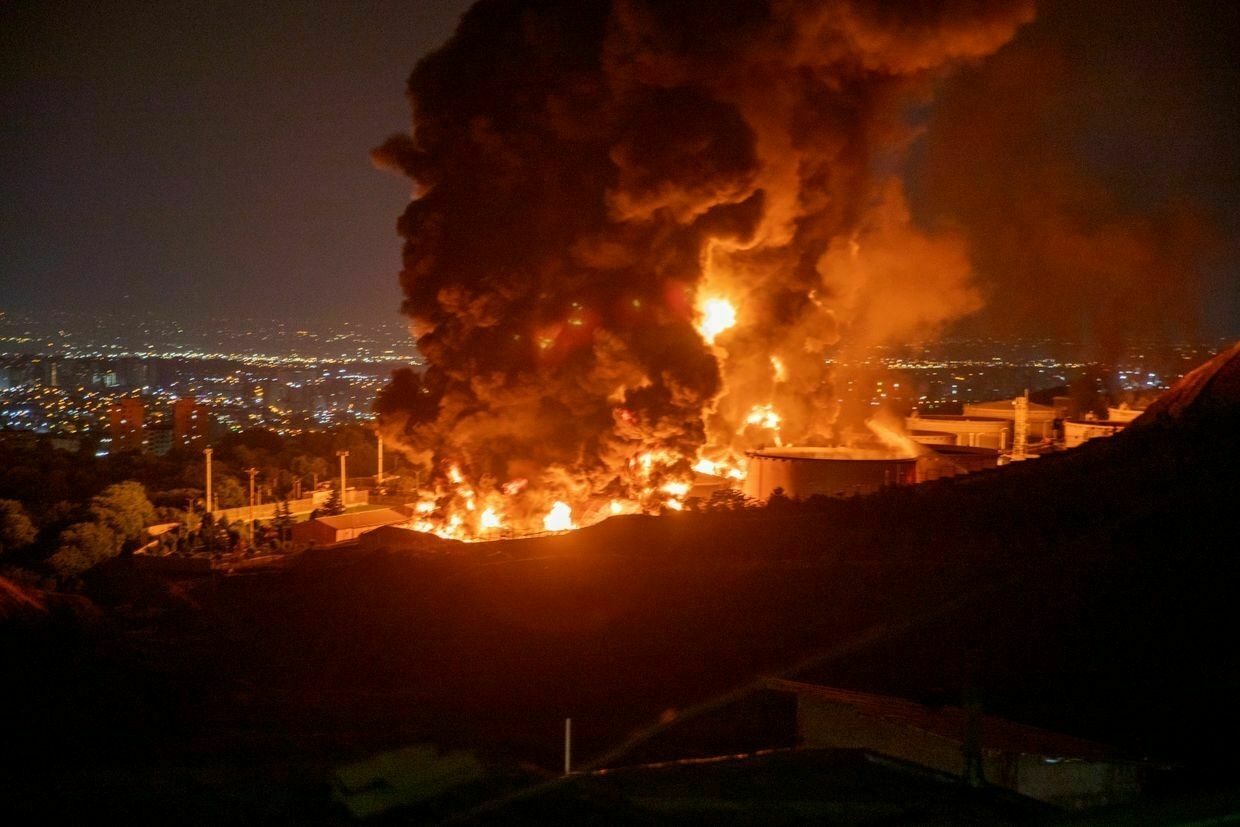
After months of stalling, Russia blames Ukraine, US for slow pace of peace talksAfter months of diplomatic stalling, the Kremlin on June 29 blamed Kyiv and Washington for the lack of progress in peace talks, with Kremlin spokesman Dmitry Peskov saying the pace of negotiations hinges on Ukraine’s position, the effectiveness of U.S. mediation, and battlefield developments.
“A lot depends, naturally, on the position of the Kyiv regime,” Peskov told Belarus 1 TV, in comments reported by Reuters, adding: “It depends on how effectively Washington’s mediating efforts continue."
Russia has repeatedly refused to a U.S.-proposed ceasefire agreement, has escalated attacks on Ukrainian civilians, and Russian President Vladimir Putin declared earlier this month that “all of Ukraine is ours."
Peskov made the remarks in a televised interview, as the full-scale war enters its fourth summer with no comprehensive ceasefire in sight, and two mostly inconclusive rounds of peace talks.
Russia and Ukraine have held two rounds of face-to-face talks in Istanbul this year, first on May 16 and again on June 2, following more than three years without direct negotiations. The meetings resulted in significant prisoner exchanges, but no significant steps toward a ceasefire.
During the June 2 meeting, both sides presented proposals for ending the war, but Putin later describedthem as "absolutely opposite" memorandums.
Ukraine's delegation, led by Defense Minister Rustem Umerov, demanded an unconditional 30-day ceasefire, a position supported by Western partners, while Russia insisted on a 2–3-day limited truce to recover the bodies of fallen soldiers.
"Russia rejects even the very idea of stopping the killings," Umerov said after the talks. "That's why we appeal to the world: pressure is needed for real peace, not for an imitation of negotiations."
Despite the deadlock, Russia said it is open to a third round of negotiations. "In general, we are ready for this," Putin told reporters on June 27, suggesting Istanbul could again serve as the venue.
Turkish President Recep Tayyip Erdogan confirmed Ankara's willingness to host, and said efforts are underway to arrange a direct meeting between Putin and President Volodymyr Zelensky — possibly with U.S. President Donald Trump joining the talks.
Zelensky has expressed support for a trilateral format and discussed the idea during the recent NATO summit in Brussels, where he and Trump also spoke about enhanced U.S. military assistance and co-production of air defense systems and drones.
So far, Trump has not imposed the additional sanctions on Russia he promised if peace efforts failed. "If the Istanbul meeting brings nothing, that clearly means strong new sanctions are urgently needed," Zelensky said on June 2.
While the Kremlin continues to reject a broad ceasefire, its forces are advancing in Ukraine's southeast, gaining territory in Donetsk and Dnipropetrovsk oblasts, and intensifying missile and drone strikes on civilians.
No date has been set for the next round of talks.
Russia-Iran alliance wavers as Tehran suffers major blowsTehran, Russia’s main ally in the Middle East, has been dealt a heavy blow as Israel dismantled its network of proxies and then struck targets in Iran. The recent Iranian-Israeli war, which ended with a ceasefire on June 24, showed that the regional balance of power has shifted in Israel’s favor. This could have a major impact on Russian-Iranian relations as Moscow will have to recalibrate its approach to the region. Russian-Iranian cooperation is likely to continue but Iran’s ability to help The Kyiv IndependentOleg Sukhov
The Kyiv IndependentOleg Sukhov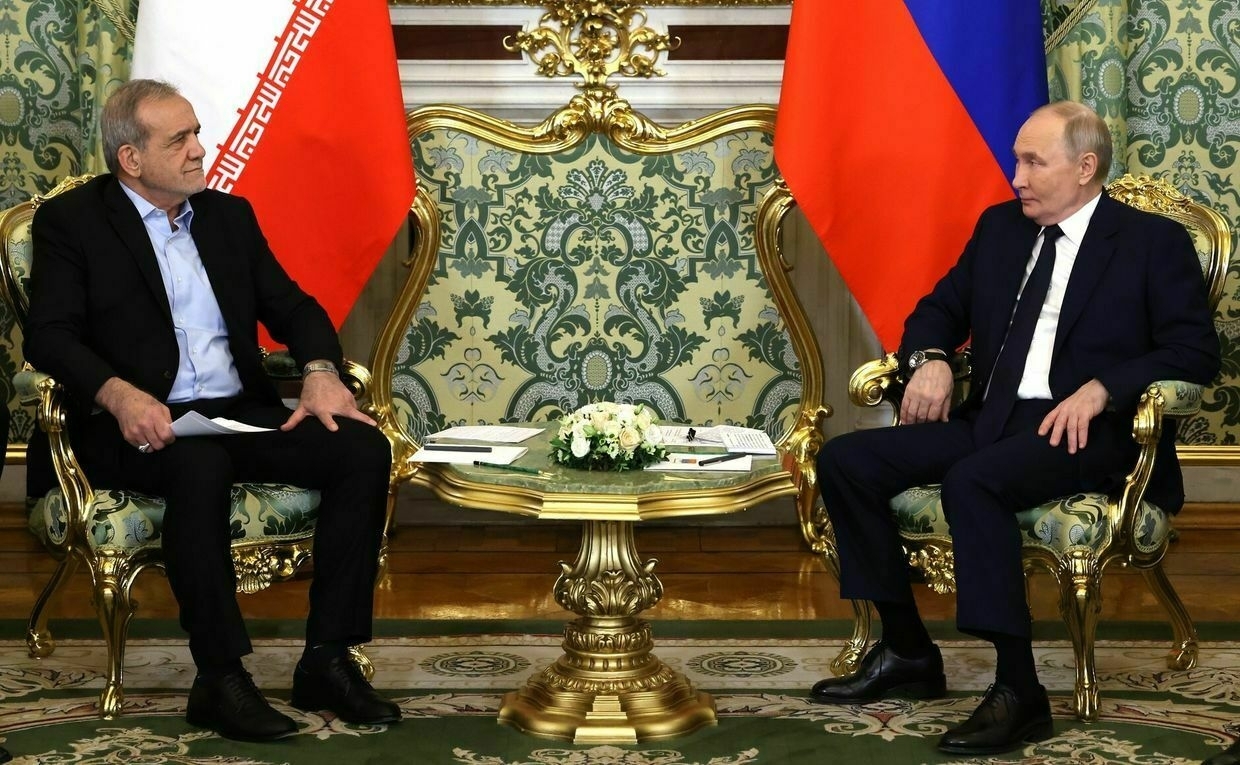
German minister vows to pursue 'every path' to boost Ukraine's air defensesGerman Foreign Minister Johann Wadephul pledged on June 30 that Berlin is exploring "every possible path" to provide Ukraine with additional air defense systems, amid intensifying Russian missile and drone attacks, according to RBK-Ukraine.
Speaking at a press conference during his visit to Kyiv, Wadephul said Germany is working with its defense industry, European allies, and the U.S. to urgently secure more systems for Ukraine's air shield.
"We are going down every path available," Wadephul said. "The German defense industry is trying to expand its capacity. We're speaking with our European partners, and I believe we must also move forward with the United States."
He added that he remains in close contact with German Defense Minister Boris Pistorius to assess whether existing systems from Germany's own stockpiles can be redirected to Ukraine.
Wadephul's visit came just a day after Russia launched its largest aerial assault on Ukraine to date, firing 477 drones and 60 missiles in a 24-hour period. In a video message posted on social media earlier on June 30, the German minister described Ukraine as "a country once again haunted by war," and reaffirmed Germany's solidarity.
"Germany stands by Ukraine," Wadephul said. "We must not allow freedom to be lost here. We have to support this country and ensure that a ceasefire is finally achieved. (Russian President Vladimir) Putin must realize he cannot continue this war and must negotiate a peace solution."
Ukrainian Foreign Minister Andrii Sybiha welcomed Wadephul's visit in a post on X, saying the two discussed how to counter Russian aggression and deepen bilateral ties.
Sybiha said they also spoke about Germany's role in Ukraine's development of long-range capabilities and drones, calling it "win-win cooperation"— as well as Berlin's support for the 18th EU sanctions package and Ukraine's path to EU membership.
China unveils its new ‘graphite bomb’ — here’s how they workChina’s state TV broadcaster has revealed details of a new “graphite bomb” that can cause a “complete loss of electricity” across an area of 10,000 square meters, or knock out entire power stations, the South China Morning Post reported on June 29. An animated video released by China’s CCTV showed a missile being launched from a ground-based launcher and then flying to a target where it releases 90 small submunitions. They then bounce on the ground before exploding amid a mock-up of an electri The Kyiv IndependentChris York
The Kyiv IndependentChris York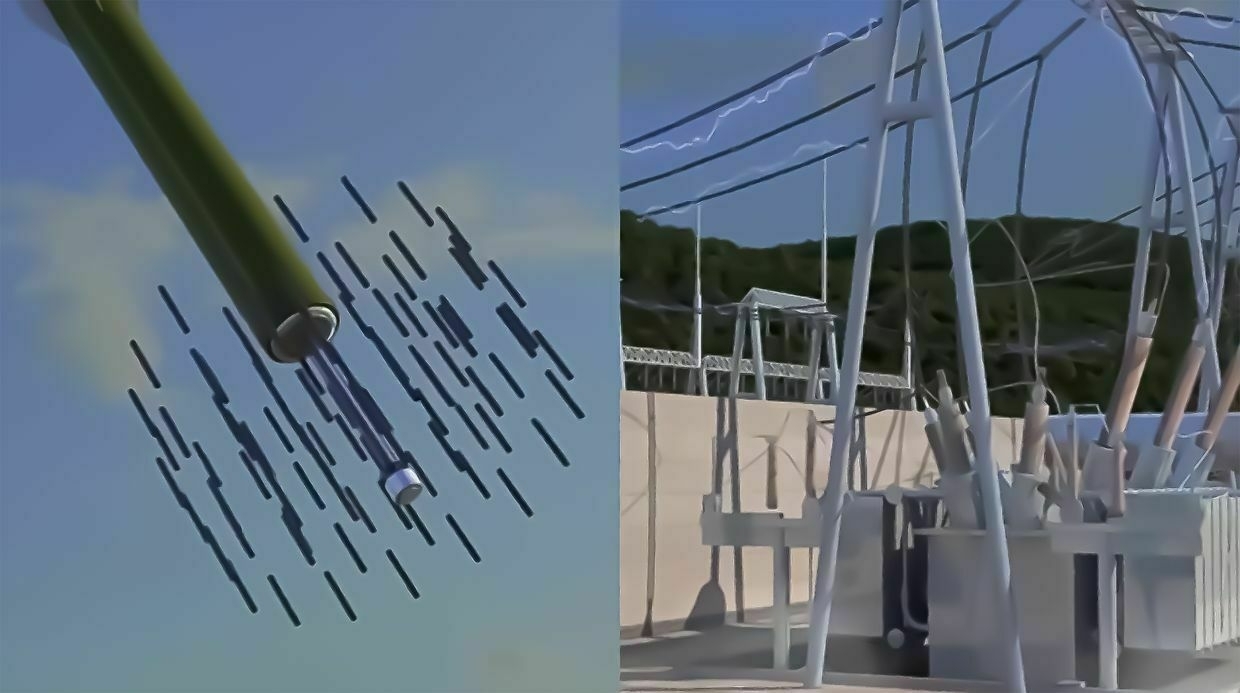
"I am grateful to Minister Wadephul for his moral clarity and personal contribution to Ukraine's resilience," Sybiha added.
Wadephul is expected to meet with President Volodymyr Zelensky later during his visit.
The German foreign minister emphasized that witnessing the destruction firsthand is critical to understanding Ukraine's suffering and the urgency of sustained international support.
"This is indeed a difficult situation," Wadephul said. "And that is why German solidarity is so important right now."
Note from the author:
Ukraine War Latest is put together by the Kyiv Independent news desk team, who keep you informed 24 hours a day, seven days a week. If you value our work and want to ensure we have the resources to continue, join the Kyiv Independent community.
-
Russia-Iran alliance wavers as Tehran suffers major blows
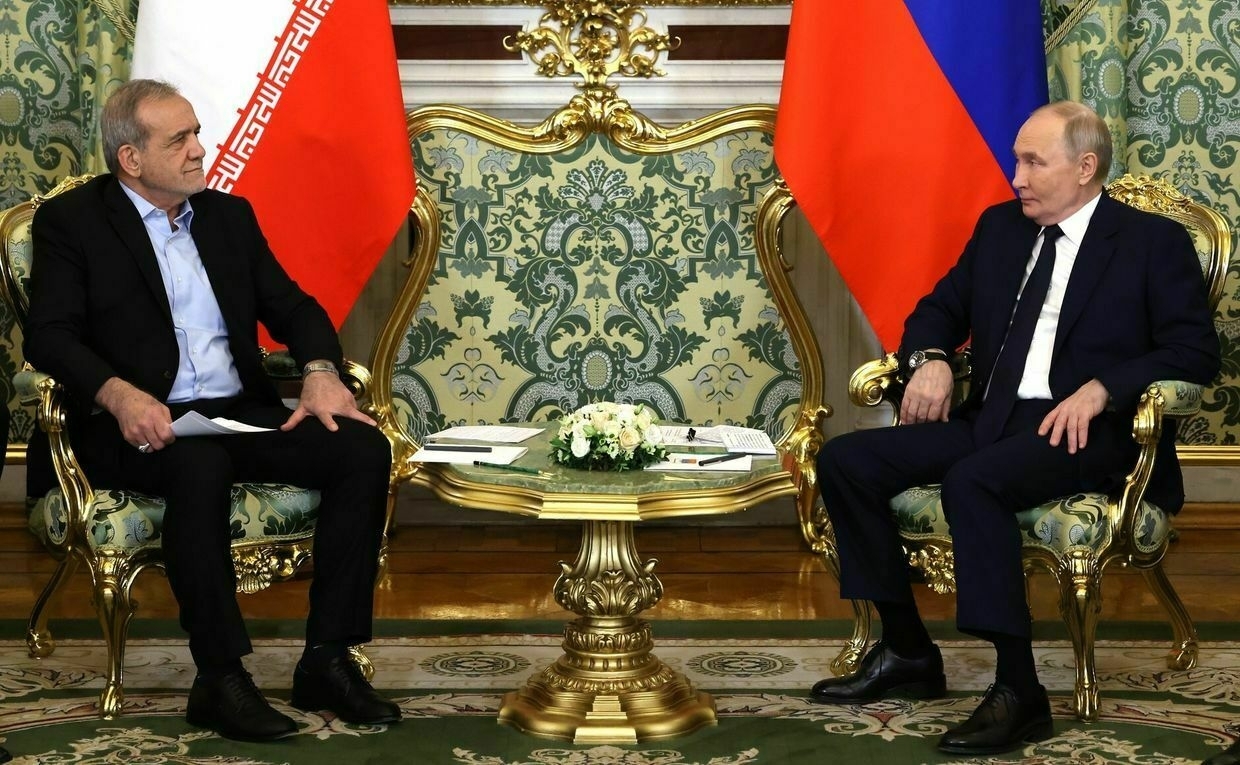
Tehran, Russia’s main ally in the Middle East, has been dealt a heavy blow as Israel dismantled its network of proxies and then struck targets in Iran.
The recent Iranian-Israeli war, which ended with a ceasefire on June 24, showed that the regional balance of power has shifted in Israel’s favor.
This could have a major impact on Russian-Iranian relations as Moscow will have to recalibrate its approach to the region.
Russian-Iranian cooperation is likely to continue but Iran’s ability to help Moscow is being diminished.
On the other hand, Russia, which is still heavily engaged in Ukraine, has few resources to spare for helping Iran.
“In public, Russian-Iranian relations will continue as business as usual,” Neil Quilliam, a Middle East expert at Chatham House, told the Kyiv Independent.
“Behind closed doors, however, Iran’s confidence in Russia has been undermined, and this no doubt will weaken the relationship.Tehran has learned to its cost that Russia is no longer a dependable ally.”
Russian-Iranian cooperationRussia has been Iran’s primary arms supplier, selling air defense systems, helicopters, and fighter jets to Tehran.
Since Russia launched its full-scale invasion of Ukraine in 2022, Iran has returned the favor by supplying Shahed combat drones to Moscow. Russia later licensed the technology and began producing the drones domestically.
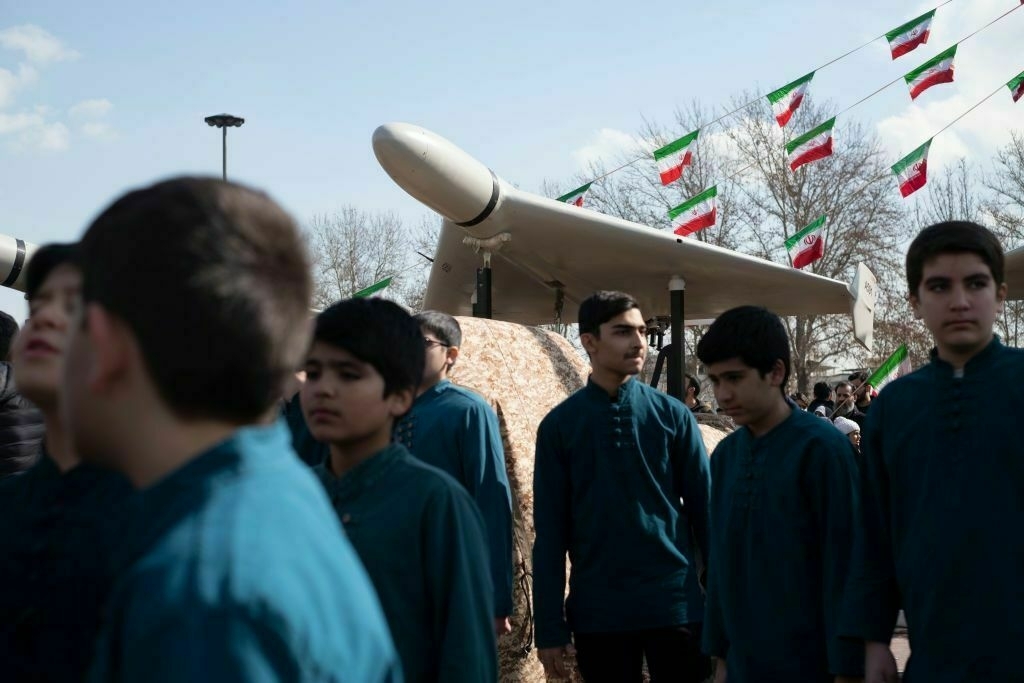
Iranian youth stand under an Iranian-made Shahed-136 unmanned aerial vehicle in Tehran, Iran, on Feb. 11, 2023. (Morteza Nikoubazl / NurPhoto / Getty Images) Shaheds have been the main combat drones used by Russia to attack Ukrainian cities.
In 2024, the U.S. also confirmed that Iran had started supplying ballistic missiles to Russia, although there is no evidence so far of their use against Ukraine.
The Iranian regime, which is subject to international sanctions due to its nuclear weapons program, has also been able to survive due to economic cooperation with Russia and other non-Western countries such as China, Iraq, the United Arab Emirates, and Turkey.
In 2024, Russian-Iranian trade rose 16% year-on-year to $4.8 billion, making Russia Iran’s fifth-largest trading partner.
Strategic partnership dealIn January, Russia and Iran also concluded a 20-year strategic partnership agreement.
The deal envisages cooperation in the anti-terrorism, energy, financial, and cultural spheres. It also has clauses on technology, cybersecurity, and efforts to fight money laundering and organized crime.
According to the agreement, if one of the sides is attacked, the other side cannot provide military or any other help to the aggressor.
“Russia neither has the capacity to help nor the will to do so, given its experience in Syria, where it suffered a strategic loss.”
“I would say the agreements (between Russia and Iran) are substantive — as with all strategic partnerships they have their limits; they stop short of a mutual defence pact, which is why Russia was not obligated to provide military assistance to Iran,” Emily Ferris, a Russia expert at the Royal United Services Institute, told the Kyiv Independent.
She argued that “it was an important signal of long-term intent to deepen the relationship, particularly around trade” and “suggested that neither side saw Western sanctions being eased imminently.”
Can Russia help Iran?As Russia is focused on its war against Ukraine, its ability to help Iran is very limited. The Kremlin condemned the Israeli and U.S. strikes on Iran but did not provide any material help.
"Russia is already overcommitted in Ukraine and does not have the military resources to spare to become embroiled in another conflict," Ferris said. "It did not give Iran air defense systems that could have moved the dial on the war in Iran's favor. Russia's offer of mediation was swiftly shot down by the Americans."
Quilliam also argued that "there is no evidence to suggest that Russia helped Iran in any material way during the war with Israel."
"Russia neither has the capacity to help nor the will to do so, given its experience in Syria, where it suffered a strategic loss," he added in a reference to the fall of dictator Bashar al Assad's regime in December 2024. "Should the war resume, it is unlikely that Russia will provide material aid to Iran, at least in the short term."
There are some ways in which Moscow is still able to help Iran, however.
"Iran will need diplomatic backing in the (UN) Security Council going forward, which Russia could provide," Aron Lund, a Middle East analyst at Century International, told the Kyiv Independent. "It will need help rebuilding its air defenses and its missile program. Whether Russia can afford to sell or share that kind of equipment is an open question."
He added that "military-industrial collaboration" between Iran and Russia is likely to continue.
Could Russia help Iran with nukes?One of the areas where Russia and Iran have cooperated is the nuclear sector.
Israel's main military objective in Iran was the destruction of nuclear facilities.
The Israeli government justified the attacks by saying that Iran was on the verge of creating a nuclear bomb. The Israeli government has sought to prevent Tehran from obtaining nuclear weapons as Iranian leaders have repeatedly called for eliminating Israel.
The International Atomic Energy Agency (IAEA) said on June 12 that Iran was in breach of its nuclear non-proliferation obligations, although IAEA Director General Rafael Grossi said in a June interview he had no proof that Tehran was currently developing a nuclear weapon.
Robert Kelley, an engineer with over 35 years of experience in the U.S. Department of Energy’s nuclear weapons complex, said that Iran has the technological capacity to build a nuclear bomb and the only reason it has not done so is political.
“Did I hear former President Medvedev, from Russia, casually throwing around the ‘N word’ (nuclear!), and saying that he and other countries would supply nuclear warheads to Iran?"
"If Iran started, they could (build a nuclear bomb) in less than 18 months, probably much less," he told the Kyiv Independent. "Depends on how much they saved from the nuclear weapons program that ended in 2003 and how good their progress was. The U.S. built two different nuclear weapons designs in 18 months in the 1940s and there is a lot more to go on now."
There are different assessments of the damage caused by Israeli and U.S. strikes to Iranian nuclear facilities during the war.
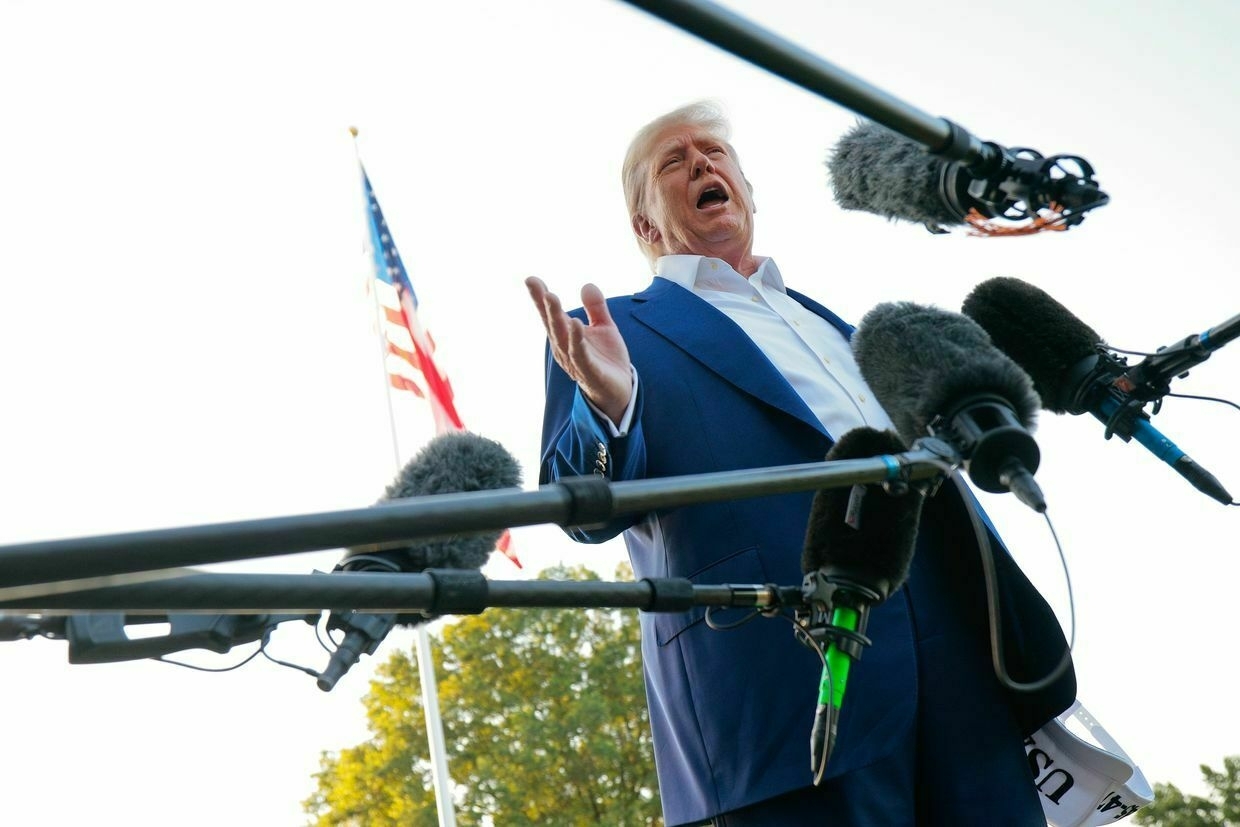
U.S. President Donald Trump speaks to reporters at the White House in Washington, DC, U.S. on June 24, 2025. (Chip Somodevilla / Getty Images) Israel argued that it had caused significant damage to Iran's nuclear weapons program, while U.S. President Donald Trump claimed it had been "obliterated."
But CNN reported on June 24 that the U.S. strikes on three Iranian nuclear facilities had not eliminated the core components of Tehran’s nuclear program and had likely delayed it by only a few months. The news outlet cited a leaked assessment by the U.S. Defense Intelligence Agency (DIA).
Former Russian President Dmitry Medvedev, deputy chairman of the country's security council, said on June 22 that "a number of countries are ready to directly supply Iran with their own nuclear warheads" — a statement that some interpreted as a hint that Russia could help Iran to develop its nuclear weapons program.
On June 23, Trump lashed out at Medvedev.
“Did I hear former President Medvedev, from Russia, casually throwing around the ‘N word’ (nuclear!), and saying that he and other countries would supply nuclear warheads to Iran?" Trump wrote on Truth Social. "The 'N word' should not be treated so casually."
Medvedev responded the same day, arguing that Russia did not intend to supply Iran with nuclear weapons.
Nuclear non-proliferationRussia has been Iran's main partner in the civilian nuclear sector. It has built Iran's Bushehr nuclear power plant and supplied the facility with enriched uranium.
At the same time, Russia has presented itself as a supporter of nuclear non-proliferation and opposed Iran's nuclear weapons program.
In 2015, Russia — along with the U.S., China, France, the U.K. and Germany — signed a deal to limit the Iranian nuclear program in return for sanctions relief.
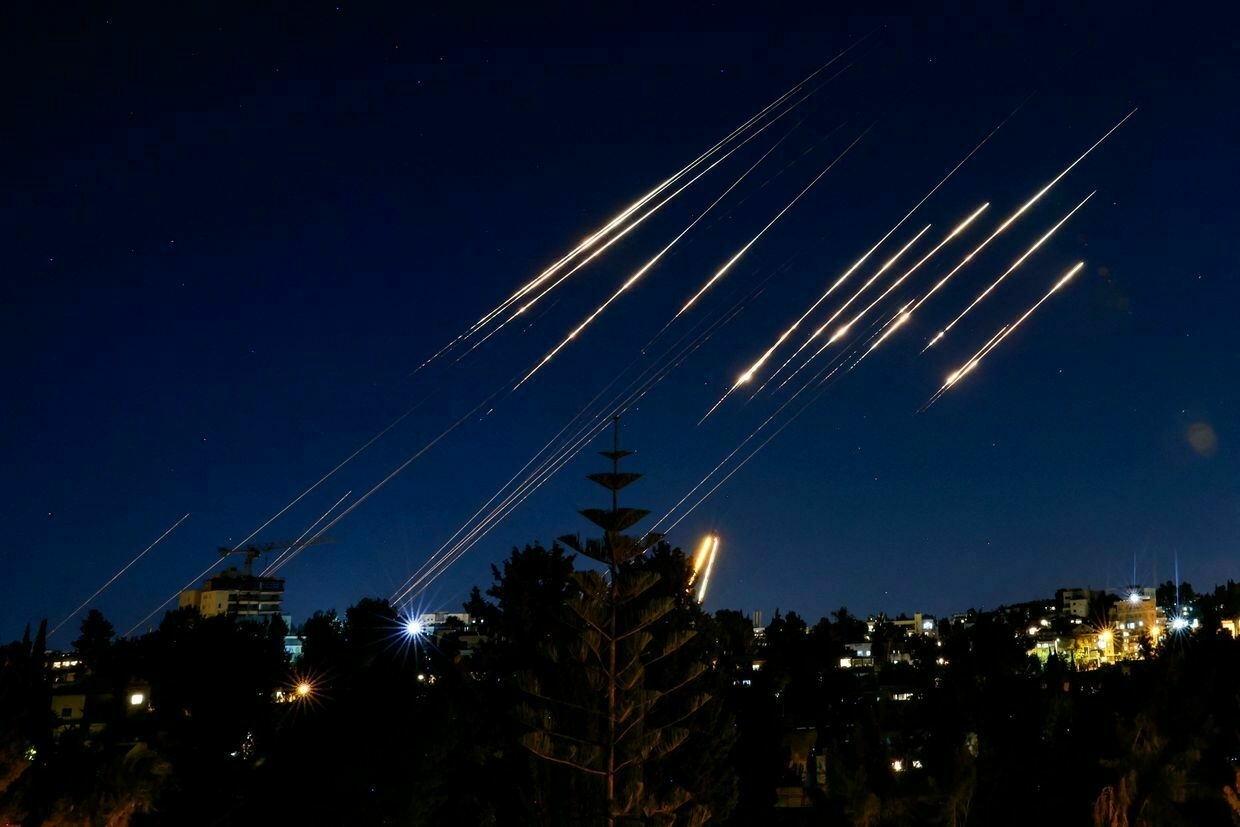
Missiles fired from Iran are pictured in the night sky over Jerusalem, Israel, on June 14, 2025. (Menahem Kahana / AFP via Getty Images) 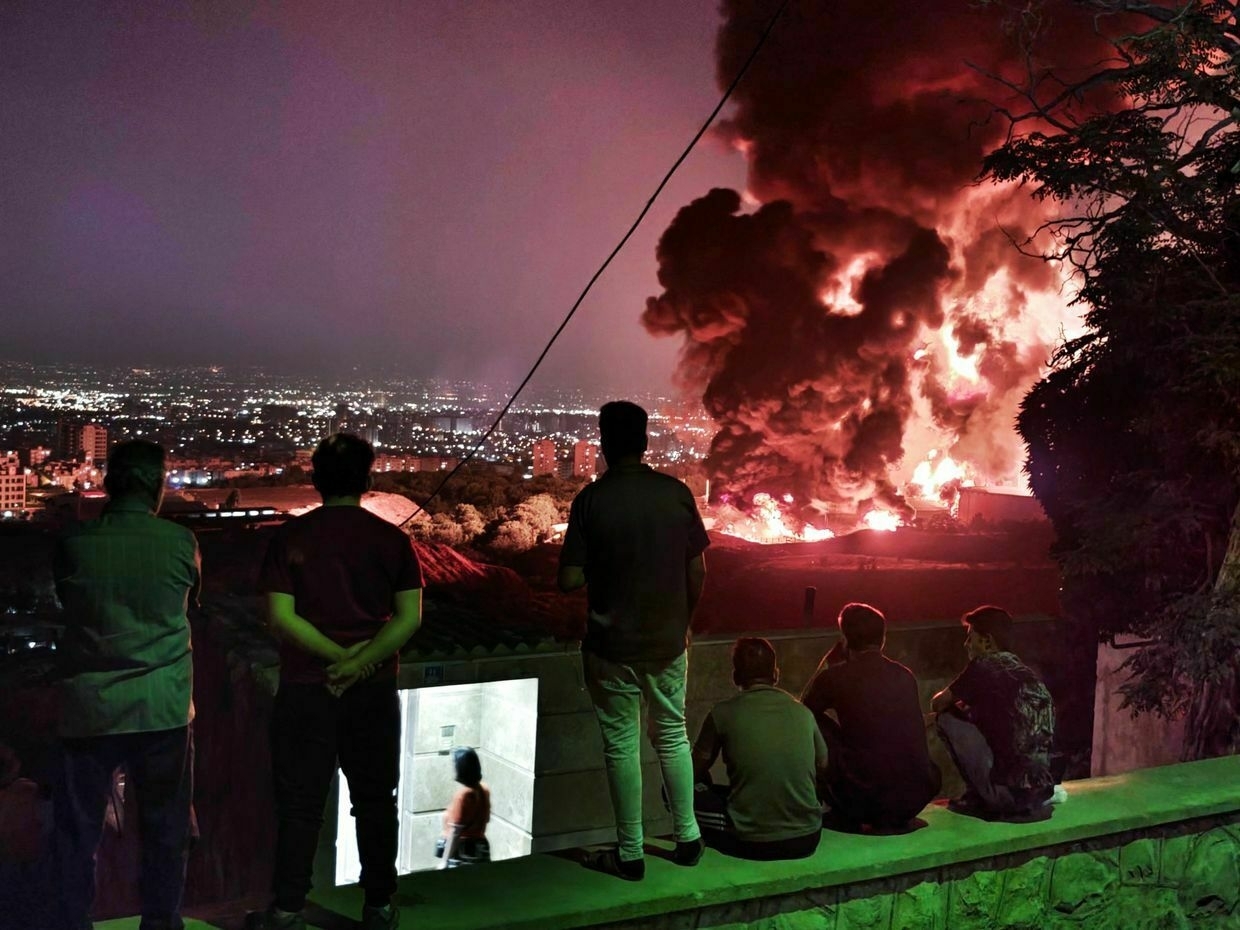
People observe fire and smoke from an Israeli attack on the Shahran oil depot in Tehran, Iran, on June 15, 2025. (Stringer/Getty Images) "So far, Russia has supported non-proliferation efforts in Iran," Marion Messmer, an arms control expert at Chatham House, told the Kyiv Indendent. "It doesn’t seem likely that a nuclear-armed Iran is in Russia’s interest — it would be disruptive in the Middle East, and it would give Iran more power when it’s likely that Russia prefers Iran to be the weaker party in the relationship."
Quilliam said that Russia "is unlikely to disrupt efforts to end Iran's nuclear program."
He added, however, that Moscow "may seek either to frustrate those efforts or come up with a creative diplomatic solution that serves its own interests, as it did with Syria’s chemical weapons issue."
Russia's regional influenceThe relationship between Moscow and Tehran is also changing because the influence of both Russia and Iran in the Middle East has decreased since 2023 as Israel dealt heavy blows to Iranian proxies.
One of them, the Gaza-based Islamist group Hamas, invaded Israeli territory, massacred 1,195 people, and took 251 people hostage in October 2023. Hezbollah, Iran's Lebanese proxy, also joined the war.
Since then, Israel has killed Hamas and Hezbollah leaders, destroyed much of their military infrastructure and invaded Gaza and southern Lebanon.
Russia's clout further diminished when the regime of Syrian dictator Bashar al-Assad, who was backed by Moscow and Tehran, collapsed in December 2024. Israel used the ensuing chaos to destroy the regime's military facilities and invaded southwestern Syria.
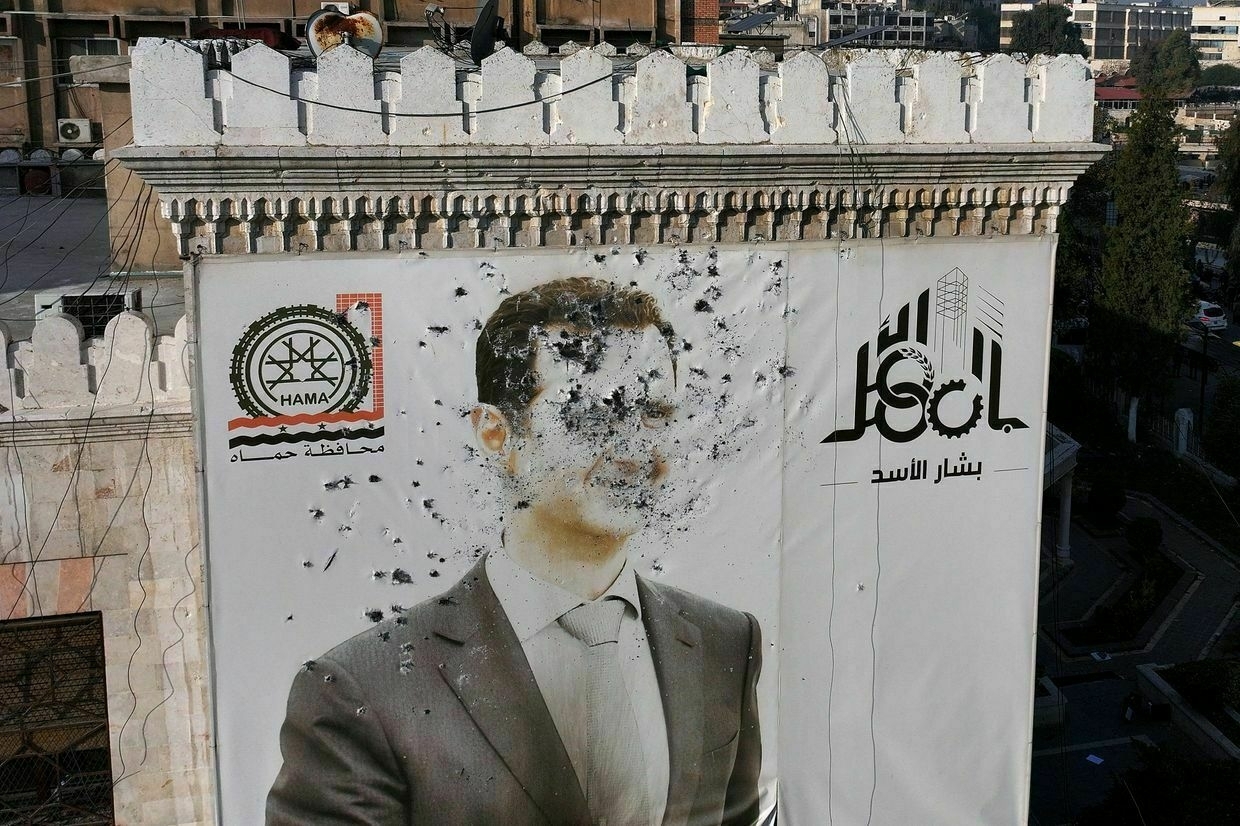
A bullet-riddled portrait of Syrian President Bashar al-Assad adorns Hama’s municipality building after it was defaced following the capture of the city by anti-government fighters in Hama, Syria, on Dec. 6, 2024. (Omar Haj Kadour / AFP via Getty Images) Furthermore, Israel's attacks on Iran in 2024 and 2025, which destroyed much of the country's air defense and damaged nuclear enrichment facilities, weakened the Iranian regime itself.
"Russia has seen its influence and ability to project power into the Middle East diminish since Oct. 7, 2023 and the collapse of the Assad regime," Quilliam said. "Regional players have come to view the U.S. as a dependable ally, but they have now come to view Russia as a liability."
Lund also argued that "Russia will need to take changed realities into account" amid the weakening of Iran and its allies.
"It’s possible that Russia will want to re-balance its Middle Eastern position over the longer term, if Iran starts looking like a resource drain that can’t offer much in return," he added. "The Iran ties have been positive for Russia, but they also come at a cost – especially in relation to Israel, but also among the Gulf Arab states."
Spoiled relations with US and IsraelApart from the regional balance of power, the Israeli-Iranian war may also have an impact on Moscow’s relationship with Washington.
The U.S. joined the war against Iran on June 22, attacking three Iranian nuclear sites with bunker buster bombs and Tomahawk cruise missiles.
Trump's support for Israel's war effort may potentially strain U.S.-Russian relations.
"Trump’s support for Israel and its participation in the Israel-Iran war is highly personalized," Quilliam said. "It has the potential to spoil relations between the U.S. and Russia but so much depends on Trump's temperament and his willingness to accommodate Putin's concerns."
He argued that Putin "will feel betrayed by Trump and, therefore, less willing to negotiate in good faith."
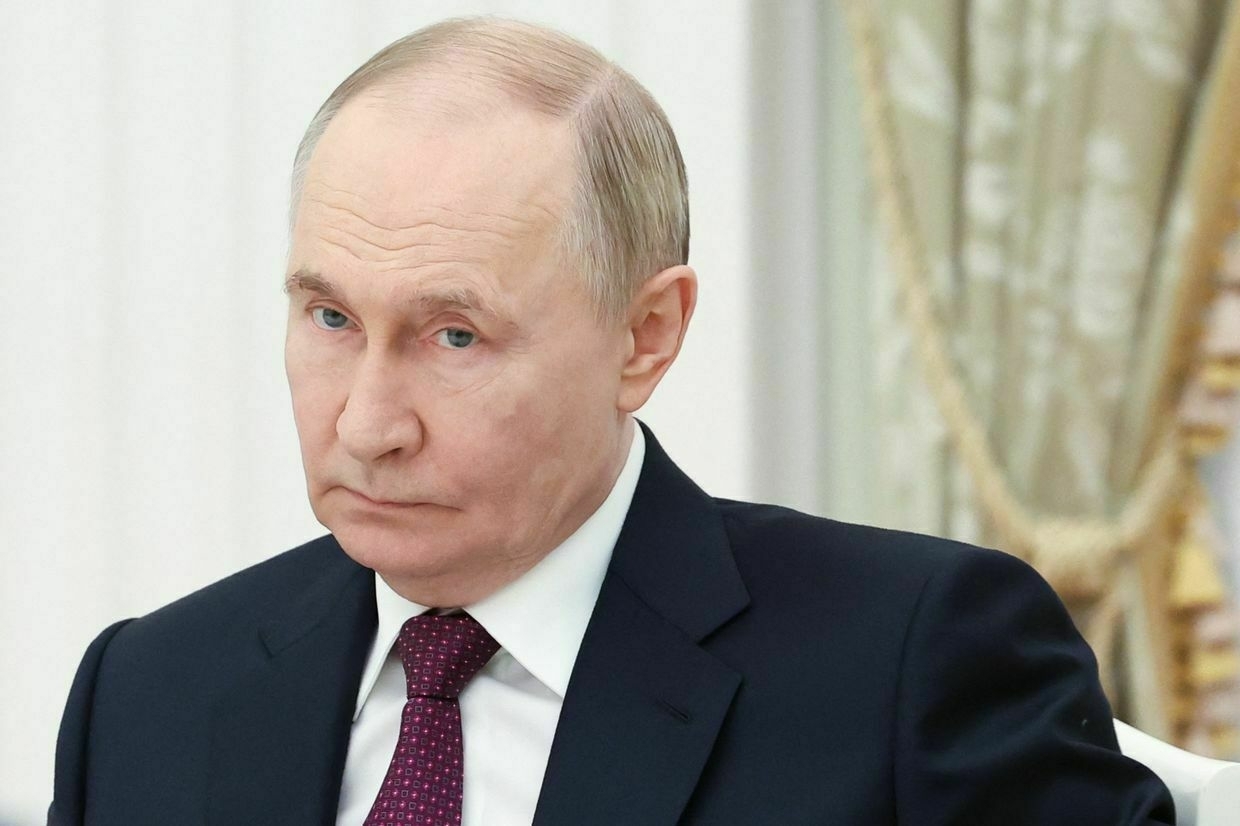
Russia’s President Vladimir Putin meets with Iran’s foreign minister at the Kremlin in Moscow, Russia, on June 23, 2025. (Alexander Kazakov / Pool / AFP via Getty Images) "As such, Trump-Putin relations will likely cool, and this may force the U.S. to recalibrate its position towards Russia vis-a-vis Ukraine," Neil continued.
But other analysts argue that the impact of the Israeli-Iranian war on U.S.-Russian relations should not be overestimated.
"Israel’s interest is ultimately to get Russia to distance itself from Iran, and that’s one reason the Israelis are reluctant to see their ties with Moscow deteriorate too much."
"I don’t think this war makes much difference to Russian-American relations, to be honest," Lund said. "They had plenty to disagree on already. It could go the other way, too, if the war is followed by a diplomatic process. Russia will try to position itself as a facilitator of any new nuclear agreement between Iran and the United States."
He also said that the U.S. "needs Russian acquiescence or support in order to get a new Iran (nuclear) deal endorsed by the Security Council."
"So there is in fact some level of shared interest here, despite the very severe Russian-U.S. disagreements on most other things relating to Iran," Lund added.
Russian-Israeli relations have also been undermined by Israel's wars with Iran and its proxies.
Analysts say, however, that the Iranian-Israeli war will not lead to a complete break between Russia and Israel.
Quilliam argued that Russian-Israeli relations "will remain unchanged, as the two countries are accustomed to deconflicting interests in theatres of war, as they did in Syria."
Lund said that Russian-Israeli relations were "bad already" before the Iranian-Israeli war.
"In so far as we are now about to enter a diplomatic phase, Russia could try to act as a go-between for the Israelis, since it has relations with both parties," he added.
"Israel’s interest is ultimately to get Russia to distance itself from Iran, and that’s one reason the Israelis are reluctant to see their ties with Moscow deteriorate too much. They need to be able to continue that bargaining."
Note from the author:
Hello! My name is Oleg Sukhov, the guy who wrote this piece for you.
I was born in Russia and moved to Ukraine in 2014 because I couldn't stand the suffocating atmosphere of that semi-totalitarian country. I used to think it might be possible to transform Russia into a liberal Western-oriented country. Now it's clear that it's a lost cause.
But at least I can atone for the crimes of my homeland by exposing its barbaric aggression against Ukraine and providing objective and independent coverage of what is going on there. I'm also trying to contribute to Ukraine's transformation into a full-fledged Western liberal democracy strong enough to defeat Russia.
Our publication needs help from every one of you — support Ukrainian wartime journalism, become a member of the Kyiv Independent.
-
Hungarian FM says US lifted Russian sanctions that hindered expansion of Paks Nuclear Power Plant
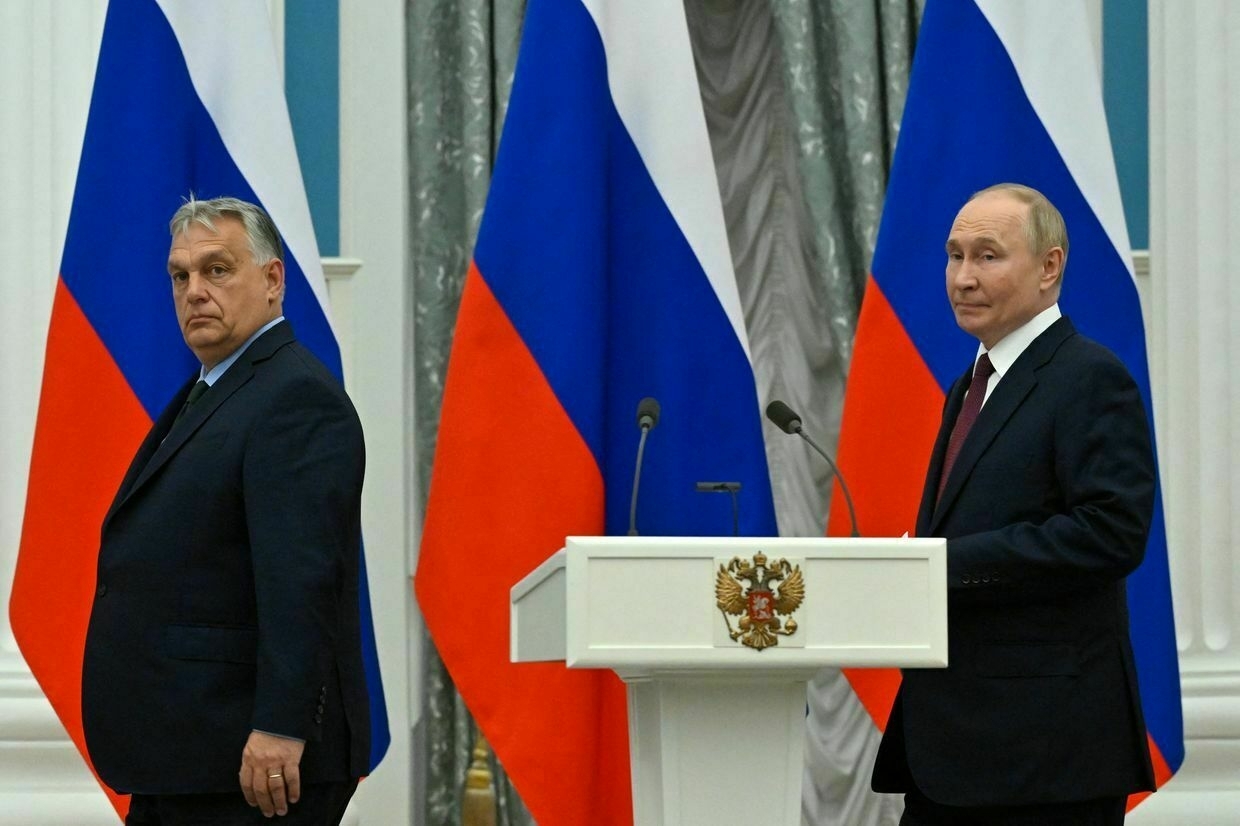
Hungarian Foreign Minister Peter Szijjarto said on June 29 that Washington has lifted sanctions that hindered the expansion of the Paks Nuclear Power Plant, where Russia’s state-owned energy company Rosatom is to build two new reactors.
“Construction of the major pieces of equipment for the Paks nuclear plant is proceeding in Russia and France,” Szijjarto said, as cited by Bloomberg.
“On-site in Paks, construction can now proceed at a faster pace."
The expansion project, which has endured significant delays, is led by Rosatom and will add to the four active reactors.
The anti-Russian sanctions were imposed by former U.S. President Joe Biden’s administration. The U.S. has not reacted to Szijjarto’s comments so far.
Since returning to the Oval Office in 2025, U.S. President Donald Trump has tried to push Russia and Ukraine into peace talks to end the war at all costs and has not yet imposed additional sanctions on Russia for its ongoing war against Ukraine.
Meanwhile, Russia has found loopholes to circumvent sanctions, such as using its shadow fleet or relying on other financial mechanisms.
Hungary’s Energy Minister Csaba Lantos said in 2023 that he expects the Paks II to be finished in 2032.
Vladyslav Vlasiuk, the Ukrainian president’s commissioner for sanctions, said the situation with the expansion of the nuclear plant is “much more complicated.” He accused the Hungarian foreign minister of “manipulation."
Vlasiuk explained in a Facebook post that Paks faces a sanctions exemption from the EU. The U.S. has not lifted the sanctions, though there is a new licence that offers the possibility of conducting transactions related to civilian nuclear energy that began prior to November 2024.
EU fails to adopt new Russia sanctions due to Hungarian, Slovak opposition, source saysUnlike Ukraine-skeptic Hungarian Prime Minister Viktor Orban, Slovakia has not previously attempted to block EU sanctions. The Kyiv IndependentKateryna Hodunova
The Kyiv IndependentKateryna Hodunova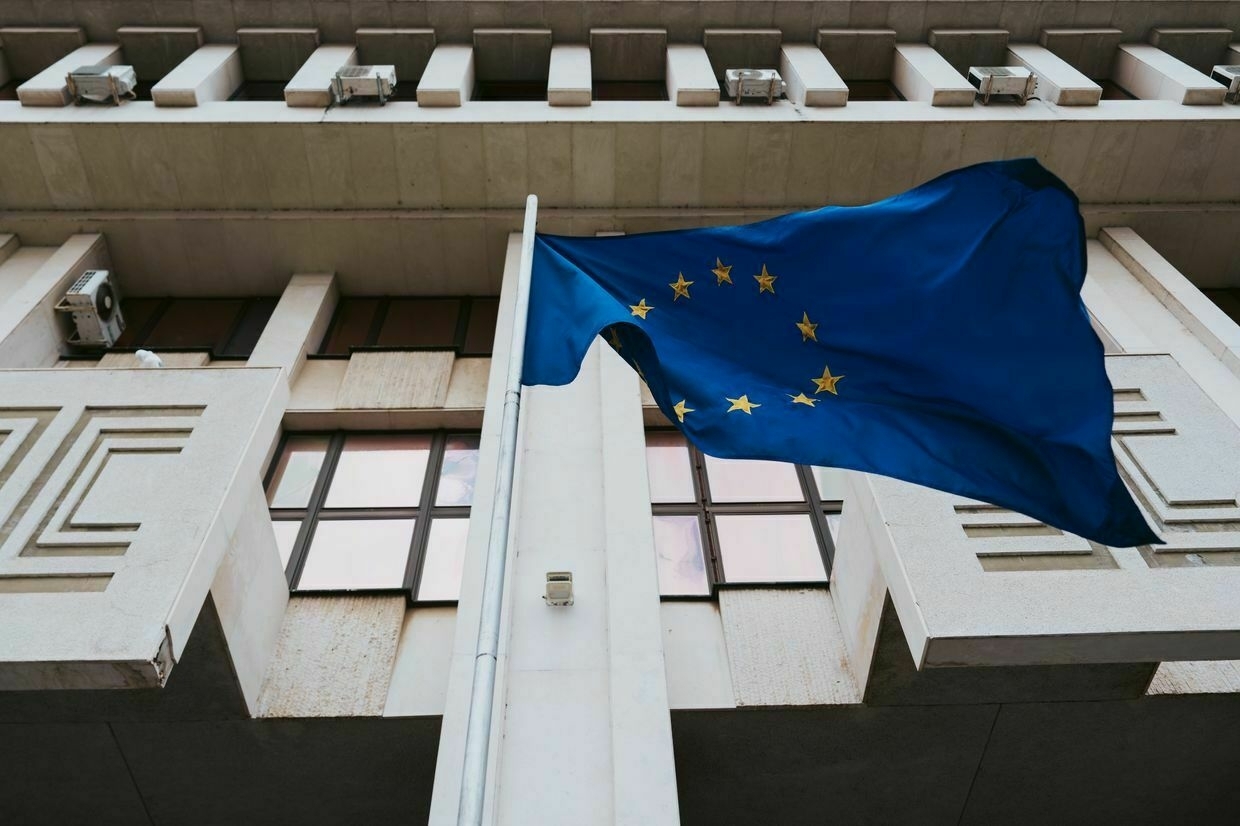
-
Trump meets Zelensky at NATO summit | Ukraine This Week
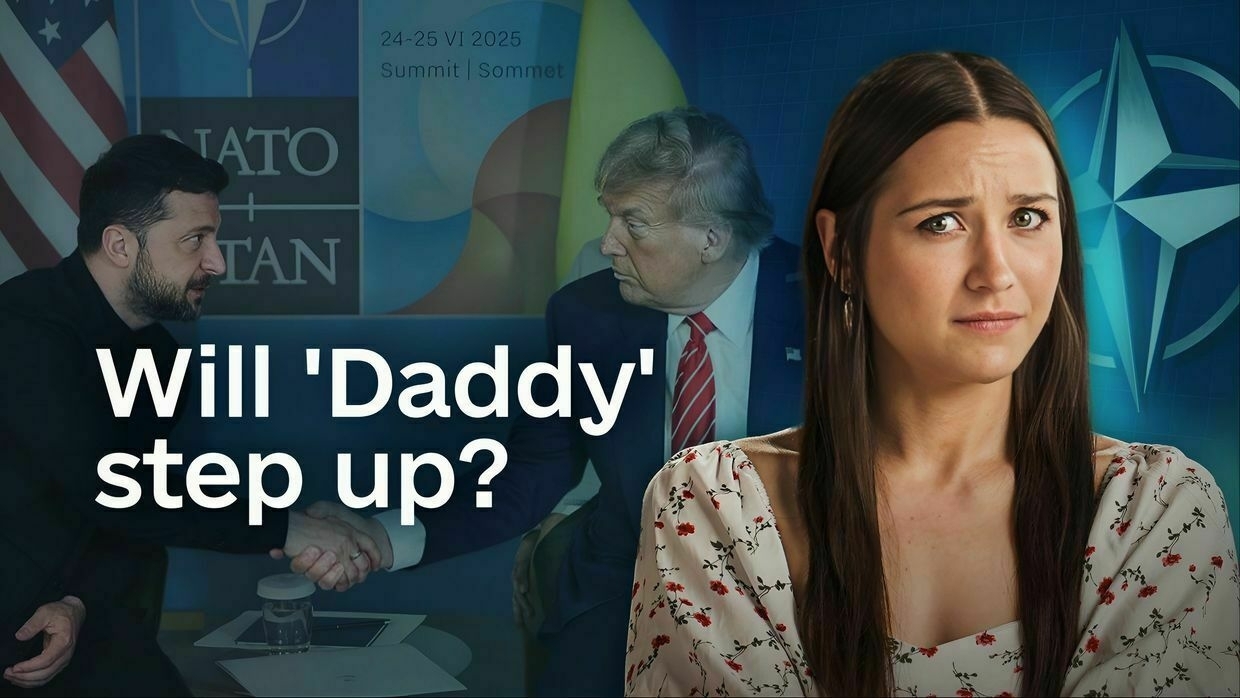
In the latest episode of Ukraine This Week, the Kyiv Independent’s Anna Belokur explains key takeaways from this week’s NATO summit, where Ukrainian President Volodymyr Zelensky and U.S. President Donald Trump held their third in-person meeting since Trump’s return to office. Also, Ukraine’s anti-corruption bureau charges the highest-ranking serving official in a land grab case involving public land, illegal apartments, and hundreds of thousands of dollars.
-
F-16 pilot killed during Russia's overnight massive air attack, Air Force says
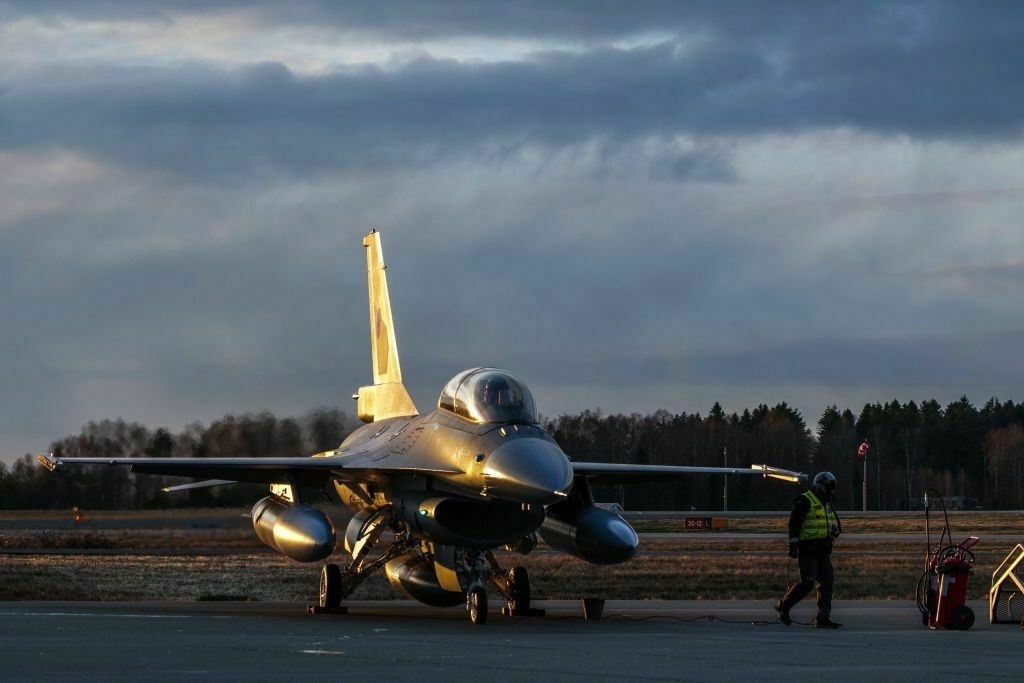
A lieutenant colonel flying a U.S.-made F-16 fighter jet was killed during the overnight aerial strike while on duty, the Air Force said on June 29.
Russia launched a “massive” missile and drone strike across Ukraine early on June 29, unleashing over 500 aerial targets, including various types of missiles and attack drones, according to the Air Force’s statement.
Maksym Ustymenko, born in 1993, was killed after shooting down seven aerial targets, the Air Force said in a statement. The Air Force added that his aircraft was damaged while he was trying to shoot down the last one, losing altitude and crashing.
“Maksym Ustymenko did his best to take the plane away from the settlement, but did not have time to eject,” the Air Force said on Telegram, honoring that he died “like a hero.”
“The work of Ukrainian pilots is extremely dangerous and risky, both when striking enemy ground targets and repelling air attacks,” the Air Force added, saying that the F-16 pilots destroy dozens of Shahed-type drones.
Russia has intensified its aerial campaign on Kyiv and other cities over the past month. President Volodymyr Zelensky said that Russia has launched over 2,700, or roughly 9.5%, of the total number of Shahed-type drones deployed during the entire full-scale war in June alone.
Though well protected with Western air defense systems compared to other cities, Kyiv has also faced a number of deadly attacks in June, with the June 17 missile and drone strike on Kyiv killing 30.
The Air Force said that Ukraine had to use “all available means” to repel the Russian aerial attack overnight on June 29, including elite F-16 jets.
Ukraine received its first batch of F-16 jets in the summer of 2024, but it has not revealed many details about how and where they are used in operations since they are a high-priority target for Moscow. Their pilots have received months of training abroad.
Ukraine war latest: US signals more Patriot missiles for Kyiv after Zelensky-Trump talks at NATO summitKey developments on June 25: * Zelensky, Trump hold talks on NATO summit sidelines * ‘Something unknown’ hits key Russian drone facility in Taganrog, Ukrainian official says * Russia has launched over 28,000 Shahed drones at Ukraine since 2022, with nearly 10% fired in June alone, Zelensky says * Donetsk Oblast city “onThe Kyiv IndependentThe Kyiv Independent news desk
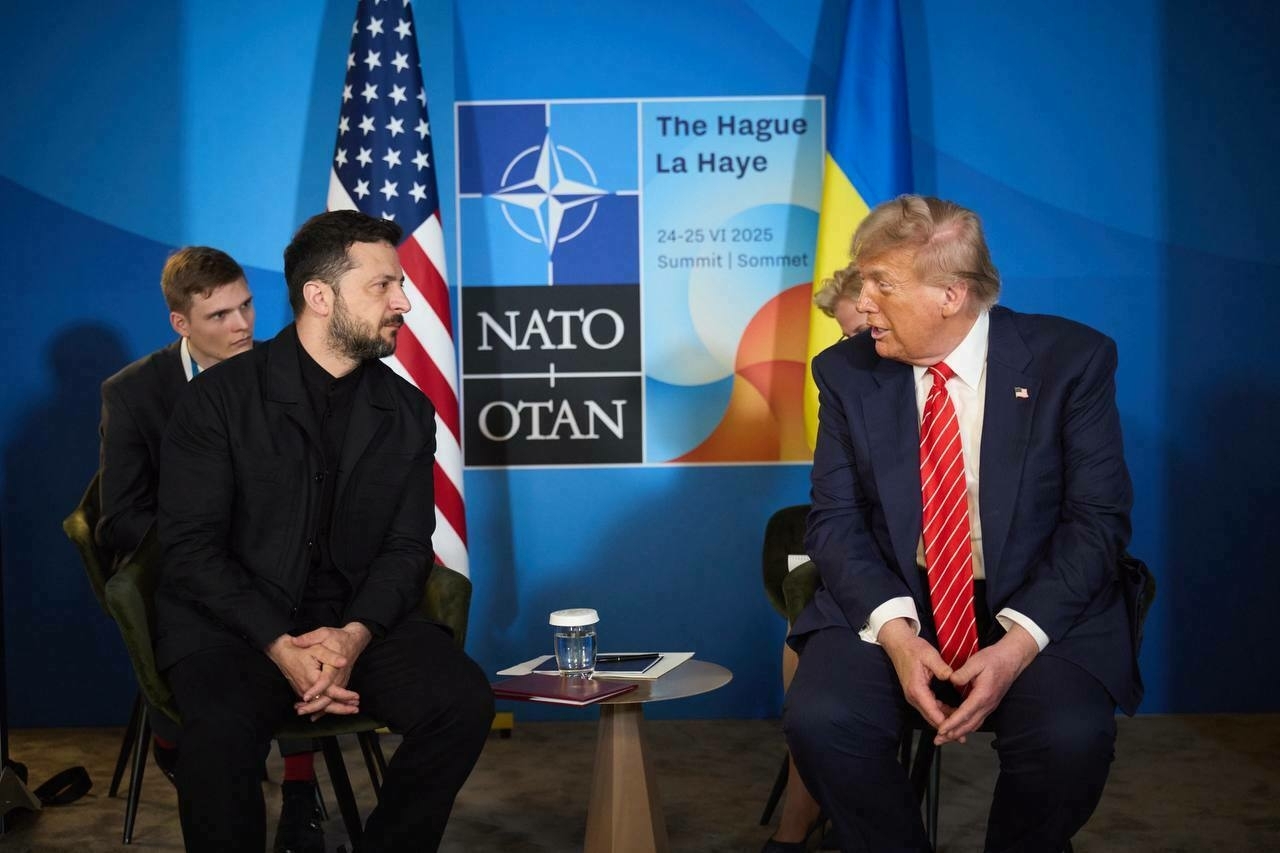
-
Russia reviving efforts to expand LNG exports after US sanctions, Bloomberg reports
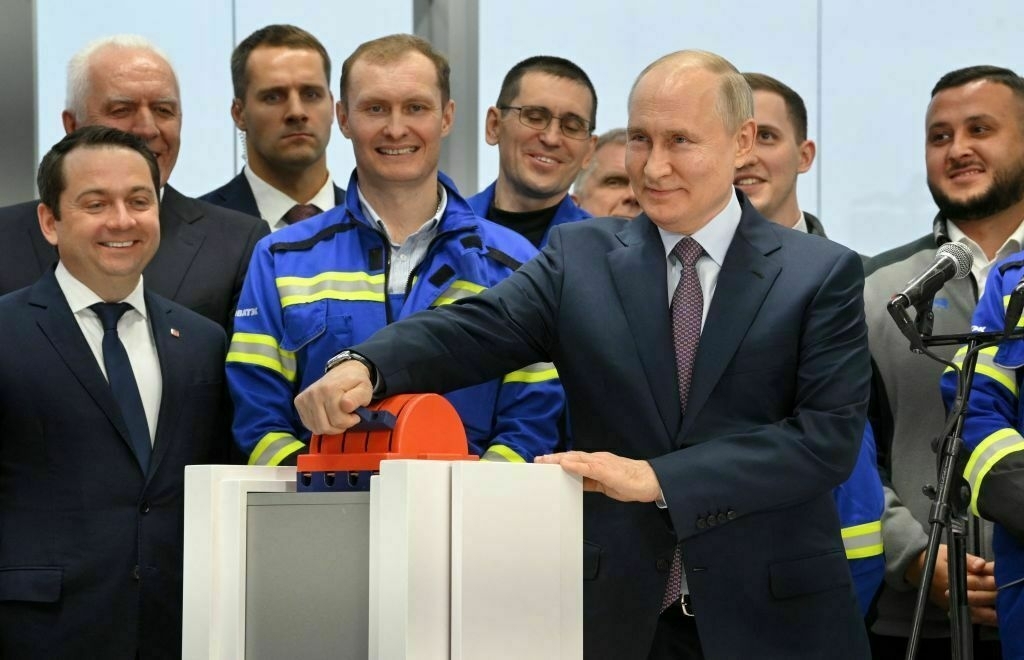
Russia is making another attempt to expand its exports of liquefied natural gas (LNG) after U.S. sanctions disrupted production at its flagship Arctic LNG 2 plant, Bloomberg reported on June 28.
Arctic LNG 2, owned by the Russian company Novatek, was envisaged as Russia’s largest LNG plant and aimed to produce almost 20 million metric tons of LNG per year. The U.S. State Department targeted the Arctic LNG 2 project with sanctions in 2024.
An LNG vessel has reportedly docked at the Arctic LNG 2 facility for the first time since October, according to ship-tracking data and satellite images analyzed by Bloomberg. Data suggests that at least 13 vessels of Russia’s “shadow fleet” have been assembled to potentially serve Arctic LNG 2.
These include four ice-class vessels, including the one currently docked at Arctic LNG 2. Three others are idling in the Barents Sea, along with three traditional LNG vessels. Two more vessels are being repaired in China and another two are idled in the Gulf of Finland. One ship is located near a floating storage facility in Russia’s Far East.
While pipeline shipments of Russian gas to Europe have declined sharply since the full-scale invasion of Ukraine, Russia’s shadow fleet — a group of aging oil tankers used to circumvent global sanctions — continues to grow.
Moscow now has more vessels at its disposal than it did last year, according to Malte Humpert, founder of the Arctic Institute think tank.
“If (Russia) can find buyers, this small fleet should be sufficient to lift cargoes,” Humpert told Bloomberg.
Finding buyers may present a difficulty, due to wariness about sanctions violations. Former U.S. President Joe Biden sanctioned ships and companies connected with exports from Arctic LNG 2 in 2024, thought it is not yet clear if U.S. President Donald Trump will enforce sanctions as strictly.
Representatives of Arctic LNG 2 have continued to search for buyers in China and India, but have not yet made any sales, traders familiar with the matter told Bloomberg.
Arctic LNG 2 cut production from its gas fields to almost zero in November 2024, after halting liquefaction the previous month due to Western sanctions. The U.S. sanctioned two vessels and two entities connected to Arctic LNG 2 in September 2024, after previously targeting the project in a sweeping round of sanctions late August.
The August sanctions likely forced Novatek to scale back its operations at the facility. Novatek itself was sanctioned after the outbreak of the full-scale war in 2022.
Despite escalating war plans, Putin claims Russia will cut military spending starting in 2026Russian President Vladimir Putin claimed on June 27 that Moscow plans to cut its military expenditure beginning next year, in a rebuke of NATO members’ plans to increase defense spending to 5% of GDP.The Kyiv IndependentDmytro Basmat
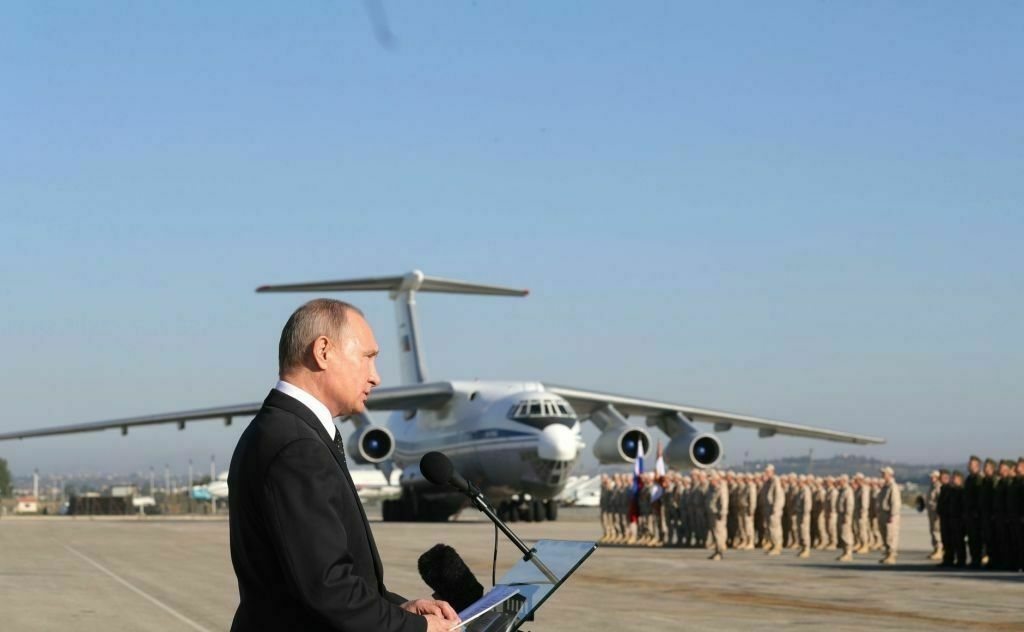
-
Ukraine's parliament working on bill to organize post-war elections, speaker says
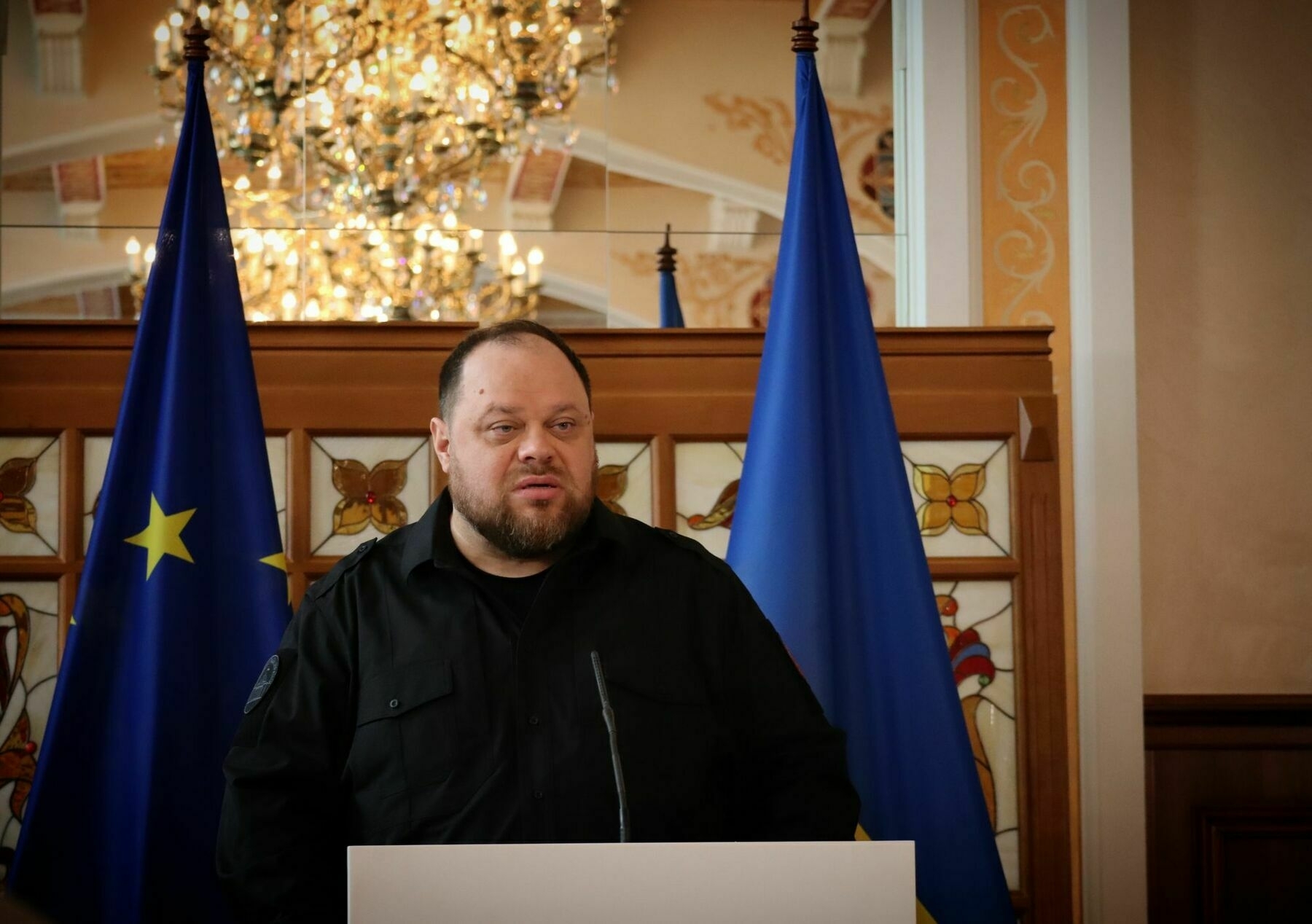
Chairman of the Verkhovna Rada Ruslan Stefanchuk said on June 28 that Ukraine’s parliament is preparing a draft bill to hold elections following the end of the martial law period enacted as a result of the war.
“We are working on this draft law, because for the next elections, a new special draft law is needed that will regulate the so-called post-war elections,” Stefanchuk said on Ukraine’s marathon TV broadcast.
“We are preparing various basic scenarios so that people can exercise their fundamental constitutional right to vote. And this must take place in Ukraine. And I believe we will be able to find the right legislative compromise,” he added.
The reason for separate legislation on a post-war election, Stefanchuk previously said, was due to the fact that Ukraine’s Constitution does not not provide clarity on the details of holding elections following the end of a martial law period.
No details on the bill or timeline for implementation were provided.
Russia’s full-scale invasion and the subsequent declaration of martial law in Ukraine meant elections have been impossible to hold, and President Volodymyr Zelensky’s term has been extended, something constitutional lawyers say is allowed under Ukrainian law.
Despite criticism, Ukraine’s parliament, the Verkhovna Rada, passed a resolution on Feb. 25 to hold elections after “a comprehensive, just, and sustainable peace is secured” in the country.
While polling shows a vast majority of Ukrainian citizens do not support holding elections before a full peace deal, the lack of elections has stirred some controversy with Ukraine’s allies.
At the start of his second term in office, U.S. President Donald Trump urged Ukraine to hold elections — something that Ukraine has thus far refused to do citing the difficulties of holding elections amid active warfare, as well as security implications.
Zelensky has previously said he is willing to step down in exchange for a peace agreement.
Russian propaganda has widely used the issue of elections in Ukraine to discredit the Ukrainian leadership. Mocow has repeatedly claimed that Zelensky is no longer a legitimate president, as his first term was originally meant to end on May 20, 2024.
Russia has amassed 111,000 troops near Pokrovsk, Syrskyi saysPokrovsk remains the “hottest spot” along the front line but “the situation is under control” and Russia has not crossed the administrative border from Donetsk to Dnipropetrovsk Oblast, Commander-in-Chief Oleksandr Syrskyi said.The Kyiv IndependentAbbey Fenbert
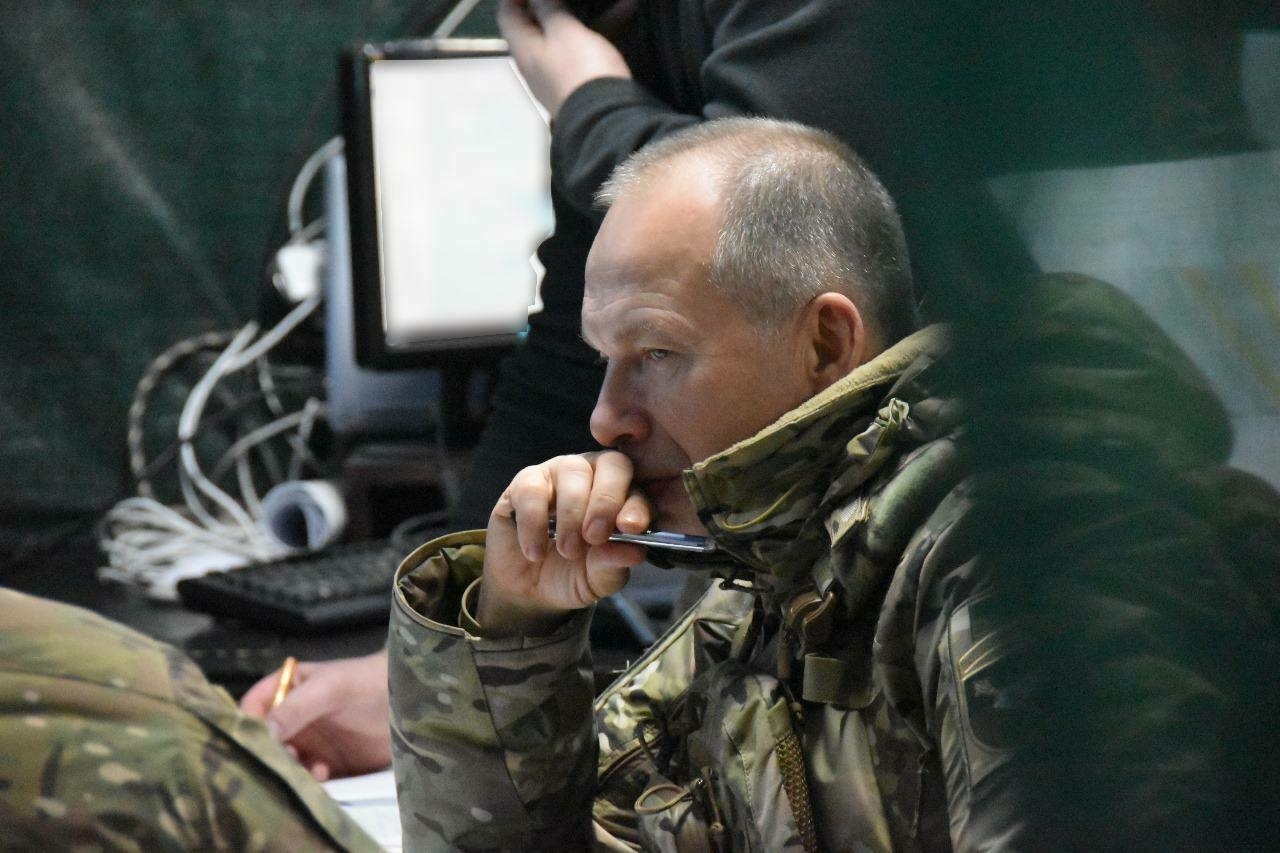
-
Half of Americans support sanctions on countries that buy Russian oil and gas, poll finds
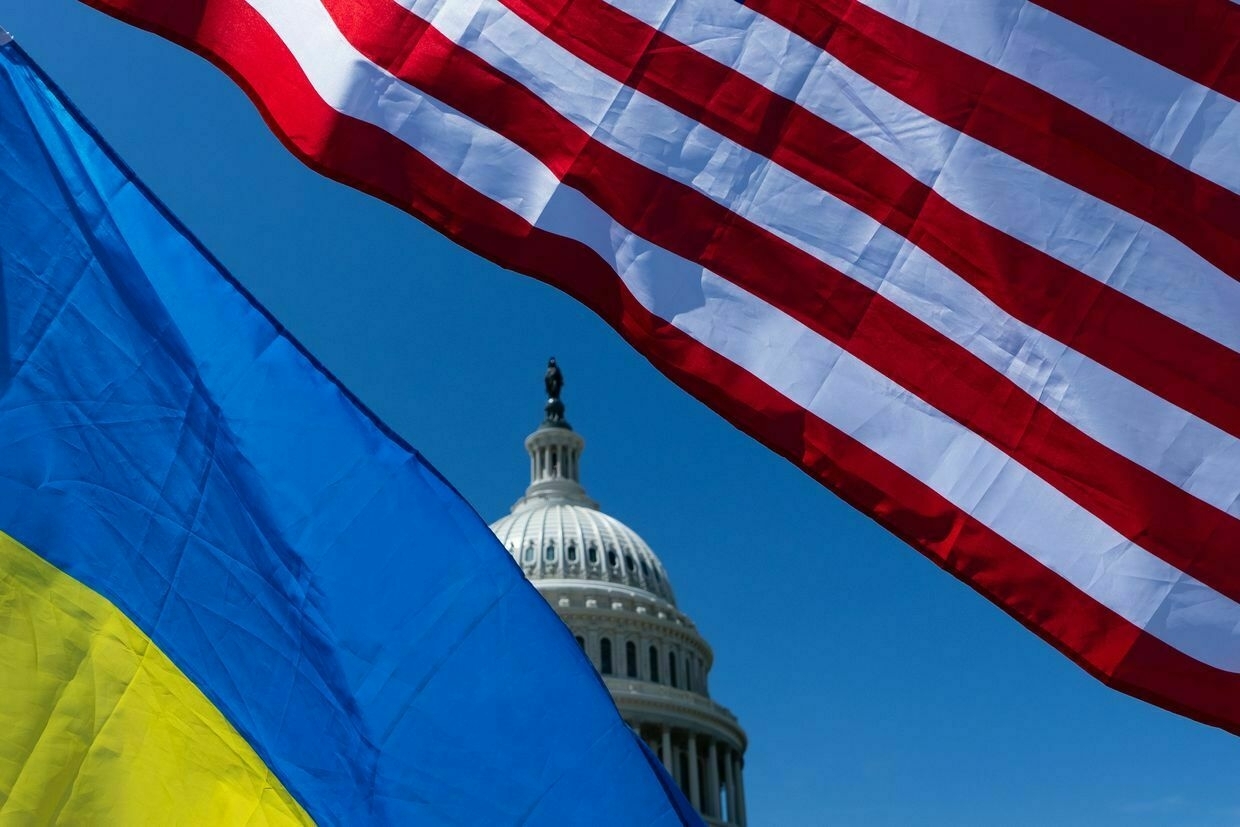
Around 50% of Americans support sanctions against countries that purchase Russian oil and gas, according to the results of a YouGov poll published on June 27.
A bipartisan sanctions bill in the U.S. Senate aims to slap 500% tariffs on imports from countries that continue to purchase Russian energy products. U.S. President Donald Trump has not backed the measure and a vote on the bill has reportedly been postponed.
In a YouGov survey of adult U.S. citizens conducted June 12-16, 24% said they “strongly support” sanctioning Russian energy buyers while 25% said they “somewhat support” secondary sanctions against these countries.
Like the Senate bill, support for secondary sanctions among respondents was bipartisan. Of “strong supporters,” 26% indentified as Democrats while 27% were Republicans.
More Republicans than Democrats said they favored the specific 500% tariff penalty proposed by legislators. While 29% of respondents who “strongly supported” the measure were Democrats, 41% were Republicans. Only 32% of survey respondents overall said they supported the 500% tariff.
The 500% tariff has been championed by Republican Senator Lindsey Graham, a Trump ally and co-author of the sanctions bill alongside Democrat Richard Blumenthal. Along with tariffs on countries purchasing Russian oil, the bill would also slap “bone-crushing” new sanctions against Russia, according to Graham.
A majority of Americans support increasing or maintaining U.S. sanctions against Russia, the survey found. Here the division along party lines is stark, with 59% of those in favor of increasing sanctions on Moscow identifying as Democrats and only 37% identifying as Republicans.
The poll also showed that about 50% of Americans oppose cutting military aid to Ukraine. According to YouGov, 26% of U.S. adults are in favor of increasing military aid while 23% believe Washington should maintain its current levels of support.
The results illustrate the contrast between the prevailing views of the American public and the policies of the Trump administration. Trump has repeatedly undercut the Senate sanctions bill, requesting delays to the vote and calling on lawmakers to weaken the proposed measures.
While Trump has at times threatened to impose new sanctions on Russia, he has never followed through on any of those threats and consistently shoots down domestic and international appeals to get tough on Moscow. At the recent G7 Summit in Canada, Trump reportedly insisted that sanctions would be at odds with U.S. business interests.
U.S. Defense Secretary Pete Hegseth also announced earlier this month that Washington will cut military aid to Ukraine in its upcoming defense budget.
‘Putin cannot stop’ – Estonian foreign minister says war in Ukraine existential for Russian presidentAs Russia continues to intensify its onslaught on Ukraine more than three years into the full-scale invasion, Kyiv faces a new challenge – keeping its Western allies, namely the new U.S. administration, engaged in the struggle. This became clear during the NATO summit in The Hague on June 24-25, whereThe Kyiv IndependentMartin Fornusek
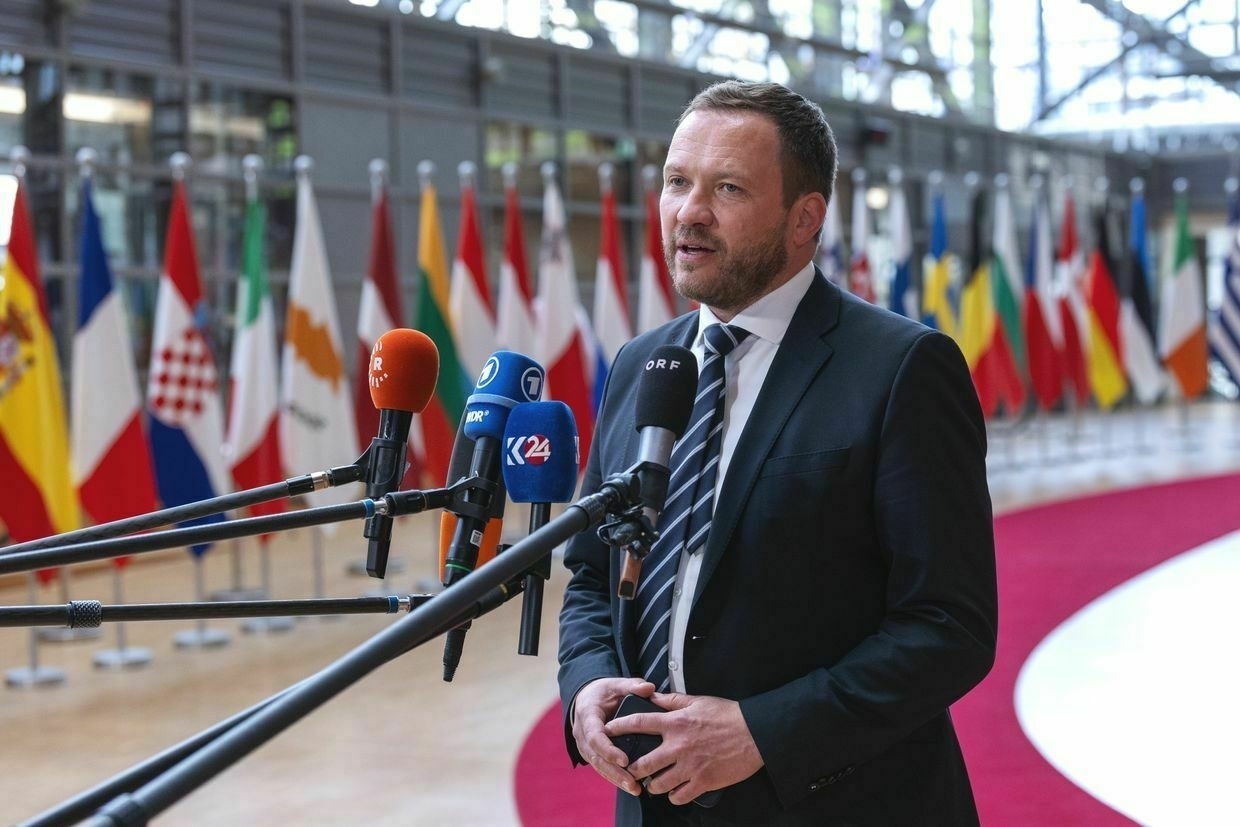
-
'Without question' — Trump says US would consider bombing Iran again, halts plans to ease sanctions
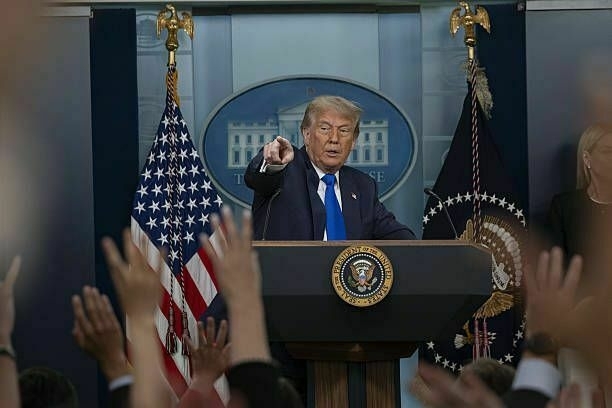
The United States would consider bombing Iran again if the country’s nuclear program once again became of concern, U.S. President Donald Trump told reporters during a press briefing on June 27.
When asked whether Trump would consider bombing Iran if the country were able to enrich uranium to a concerning level, Trump responded: “Sure. Without question, absolutely."
On June 21, the United States conducted strikes on three major Iranian nuclear sites, Fordow, Natanz, and Isfahan, dropping over a dozen bunker buster bombs on the sites and causing significant damage to the country’s nuclear program.
“Turned out to be unbelievable,” Trump said of the strikes on June 27, despite mixed reports on the success of the strikes.
A leaked U.S. Defense Intelligence Agency (DIA) assessment, reported by CNN, found that the strikes did not destroy the core of Tehran’s nuclear program. Instead, the intelligence suggests the attacks likely delayed Iran’s progress by “a few months."
Despite the leak, Trump administration officials have rebuffed reports that the strikes did not fully fulfill its object, amid reports of Iran having possibly moved its enriched uranium away from the sites.
“The objective was to eliminate enrichment in Iran… and he achieved that objective,” U.S. Special Envoy to the Middle East Steve Witkoff said on June 24, adding that he personally reviewed damage assessments and saw “no doubt” that key nuclear infrastructure was destroyed.
Trump’s comments on future attacks comes as Iran’s Supreme Leader Ayatollah Ali Khamenei downplayed the success of the strikes, claiming victory over Israel and the United States.
“I SAVED (Khamenei) FROM A VERY UGLY AND IGNOMINIOUS DEATH,” Trump wrote on Truth social on June 27, adding that he has halted plans to potentially ease sanctions on Iran. “The sanction are BITING,” Trump wrote.
“Iran has to get back into the World Order flow, or things will only get worse for them,” he added.
On June 24, Trump announced that a ceasefire between Iran and Israel had come into effect, following the U.S. strikes on Iranian nuclear facilities and a retaliatory Iranian attack on a U.S. military base in Qatar.
Ukraine war latest: Ukrainian drones reportedly strike 4 fighter jets in RussiaKey developments on June 27: * Ukraine war latest: Ukrainian drones reportedly strike 4 fighter jets in Russia * North Korea deployed 20% of Kim’s elite ‘personal reserve’ to fight against Ukraine in Russia, Umerov says * Pro-Palestinian activists reportedly destroy military equipment intended for Ukraine * Zelensky signs decree to synchronize Russia sanctionsThe Kyiv IndependentThe Kyiv Independent news desk
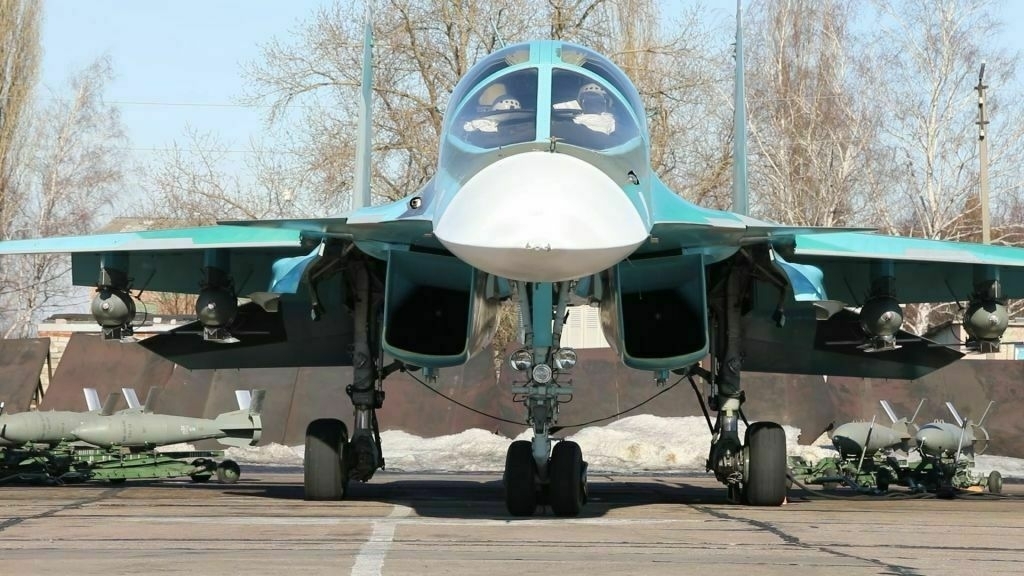
-
Russia ready to hold third round of peace talks with Ukraine, Putin says
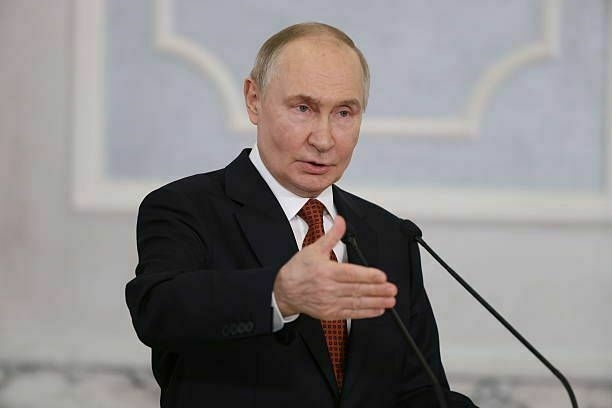
Russia is ready to hold a third round of peace talks on the war in Ukraine, Russian President Vladimir Putin told reporters on June 27, without specifying if he would directly participate in the negotiations.
“In general, we are ready for this (next round of peace talks), we need to coordinate the place and time,” Putin said.
Putin added that the talks could potentially be held in Istanbul but the details have not yet been worked out. He added that another round of talks may bring peace closer as the terms for peace outlined in the countries' peace memorandums remain “absolutely opposite."
The latest peace talks between Russia and Ukraine took place on June 2 in Istanbul, following an earlier meeting on May 16. Despite Ukraine’s insistence on a 30-day ceasefire, Russia has repeatedly rejected the offer, proposing only a temporary 2–3-day truce in limited areas to retrieve the bodies of fallen soldiers.
While no agreement on a comprehensive ceasefire has been reached, talks have led to a few major prisoner exchanges, including a 1,000-for-1,000 swap that took place in late May and a follow-up deal for up to 1,200 prisoners from each side.
Defense Minister Rustem Umerov said during a press briefing on June 26 that it was Ukraine’s goal to organize a direct meeting between President Volodymyr Zelensky and Putin during the next round of negotiation.
In previous rounds, Putin had failed to show in-person sending lower-level officials to the meeting instead — despite Zelensky’s willingness for in-person talks as well pressure from the United States.
On June 26, Turkish President Recep Tayyip Erdogan said Ankara is working to organize a meeting between Zelensky and Putin, with U.S. President Donald Trump potentially joining the talks.
Putin said on June 27 that it was “quite possible” that a meeting between himself and the U.S. president could take place. “We will be happy to prepare it,” he briefly added.
Zelensky and Trump met during the NATO summit on June 25, where the two leaders discussed battlefield developments, Kyiv’s need for additional air defense systems, and the potential for co-production of drones.
Zelensky has previously voiced openness to a trilateral meeting. On May 27, he told public broadcaster Suspilne that he was ready to sit down with both Trump and Putin.
Turkey previously hosted direct peace talks in March 2022 and has remained one of the few countries with open lines to both Kyiv and Moscow.
Putin under pressure to declare war on Ukraine, but experts say Russia isn’t readyDespite suffering over 1 million casualties, pounding Ukrainian cities nightly with missiles and drones, and committing countless war crimes, one startling fact about Russia’s full-scale invasion remains — Moscow has yet to officially declare war on Ukraine. In February 2022, Russian President Vladimir Putin described what he believed was going to be a swift victory and the capture of Kyiv within days as a “special military operation.” Nearly three-and-a-half years later, the Kremlin is stuck The Kyiv IndependentChris York
The Kyiv IndependentChris York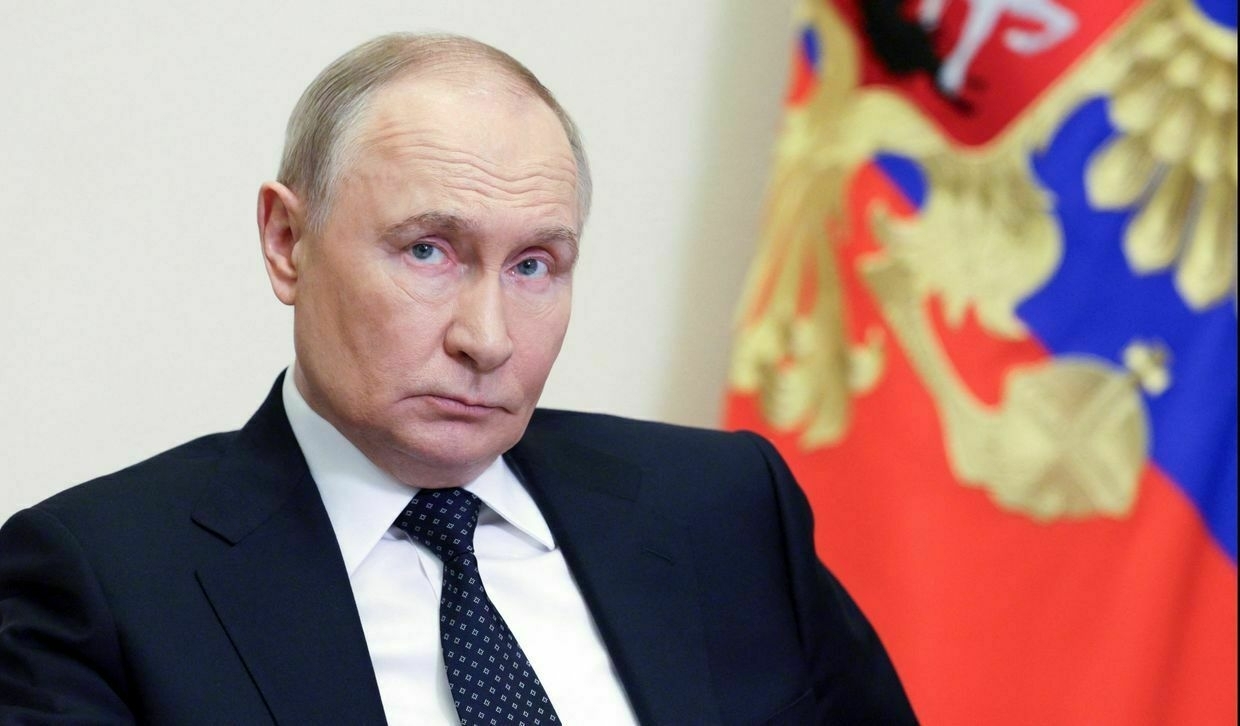
-
Ukraine’s new top prosecutor known for high-profile cases, seen as Zelensky loyalist
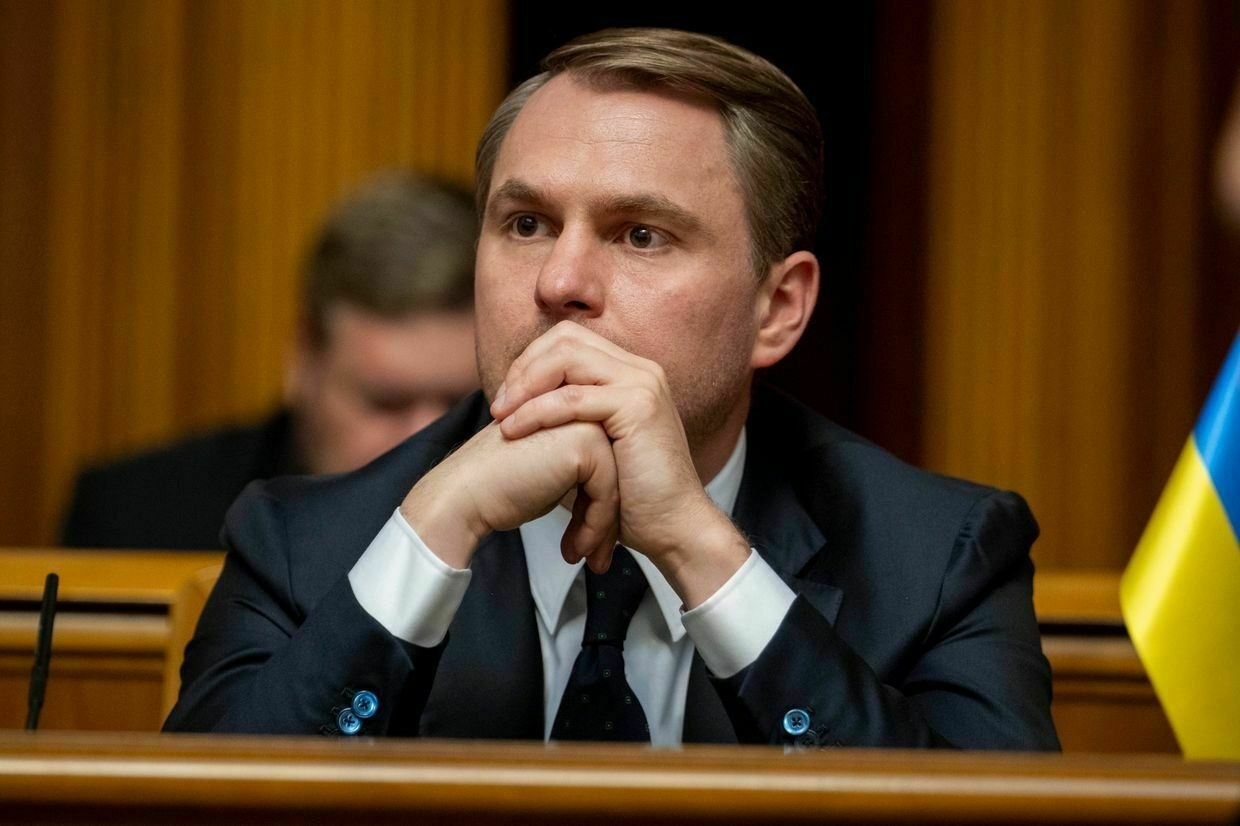
Loyalty to the incumbent administration has been the key requirement for prosecutor generals in Ukraine.
Ruslan Kravchenko, who was appointed as prosecutor general on June 21, appears to be no exception.
Previously he had been appointed as a military governor by President Volodymyr Zelensky and is seen as a presidential loyalist.
Kravchenko became Ukraine’s top prosecutor after a lengthy hiatus during which the position of prosecutor general remained vacant.
His predecessor, Andriy Kostin, resigned in October 2024. Kostin’s deputy, Oleksiy Khomenko, served as acting prosecutor general in the interim.
Kravchenko, who also has a background as a military prosecutor and has prosecuted the Russian war crimes in Bucha, was seen by the authorities as an appropriate candidate for the prosecutor general job in wartime.
Many in civil society disagree. Activists and experts have called for appointing an independent and apolitical prosecutor general capable of delivering impartial justice.
To ensure this, they propose appointing the prosecutor general with the participation of international experts, similarly to how it is done in some other law enforcement and anti-corruption agencies.
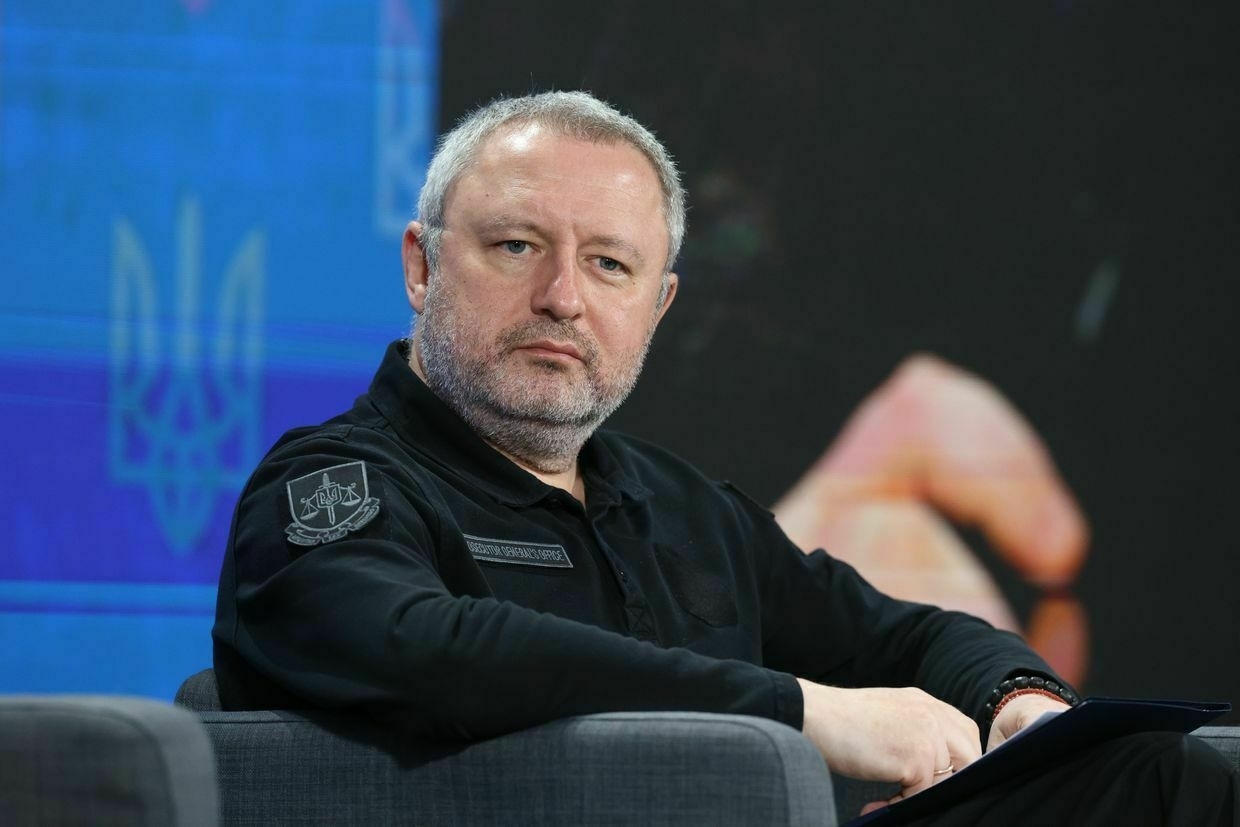
Andriy Kostin, former prosecutor general of Ukraine, takes part in a forum with heads of state institutions in Kyiv, Ukraine, on Aug. 27, 2024. (Viktor Kovalchuk / Global Images Ukraine via Getty Images) Currently, the prosecutor general is nominated by the president and approved by parliament, where President Volodymyr Zelensky’s party holds the majority.
Some argue that this sets any prosecutor general up for failure.
“As long as the current (appointment) procedure is kept, any prosecutor general will be dependent,” Yaroslav Yurchyshyn, a member of parliament from the Holos opposition party, told the Kyiv Independent. “Are there grounds for believing that (Kravchenko) could be effective and professional? Yes. But won’t this be offset by his political dependence?"
The Prosecutor General’s Office told the Kyiv Independent that statements on Kravchenko’s dependence on the Zelensky administration are “speculative, baseless and not supported by any facts."
Another issue is that Kravchenko was deemed not to meet ethics and integrity standards during earlier contests for law enforcement jobs. This is why some anti-corruption activists believe he is not fit to be prosecutor general either.
Commenting on the accusations, the Prosecutor General’s Office told the Kyiv Independent that Kravchenko received the highest scores in tests for legal knowledge, analytical thinking and practical skills during the 2022 contest for the job of the National Anti-Corruption Bureau’s head.
“His activities have always been based on the principles of professionalism, impartiality, legality and responsibility,” the prosecutor’s office added.
Experts interviewed by the Kyiv Independent provided different assessments of Kravchenko.
Daria Kaleniuk, executive director of the Anti-Corruption Action Center, argued that she does not trust Kravchenko and described his career path as “questionable.” Kaleniuk was on the vetting panel that rejected Kravchenko’s candidacy for an anti-corruption prosecutor job in 2020 over integrity concerns.
Yaroslav Zhelezniak, a member of parliament from the liberal Holos party and a frequent critic of the authorities, was more upbeat. He said that Kravchenko was the best among the candidates for prosecutor general being considered by the President’s Office.
“He does have management skills,” Oleksandr Lemenov, head of the anti-corruption watchdog StateWatch, told the Kyiv Independent, based on what he heard from people who had worked with Kravchenko. “Whether (his skills) will be enough for the position of prosecutor general — only time will tell."
With Trump disengaged and EU complacent, Ukrainian reforms lose momentumRussia’s all-out war has accelerated Ukraine’s push to join the European Union and NATO, as well as its dependency on Western loans and aid. Before, these things would have been heavily preconditioned on Ukraine implementing crucial reforms. However, the war has also eased the pressure on Kyiv to carry outThe Kyiv IndependentOleg Sukhov
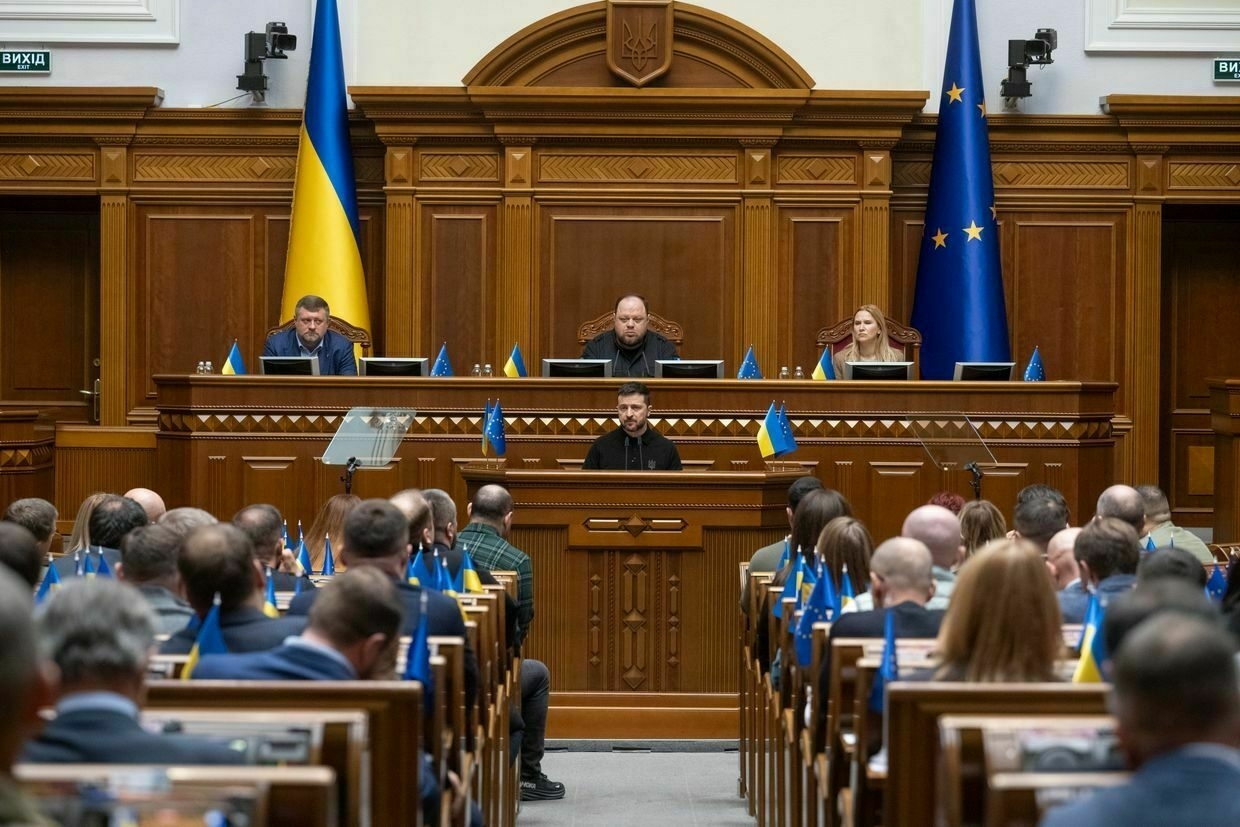
Early careerKravchenko, 35, is the youngest prosecutor general in Ukraine’s independent history. He studied at the Kyiv Military College and at the military law department of the Yaroslav the Wise Legal Academy in Kharkiv.
He was a prosecutor in Crimea during its illegal annexation by Russia in 2014 and left the peninsula as a result.
Subsequently Kravchenko was in charge of the criminal case against Russian soldiers Alexander Aleksandrov and Yevgeny Yerofeyev. They were sentenced to 14 years in jail for participating in a war of aggression and swapped as part of a prisoner exchange in 2016.
Kravchenko was also a prosecutor in the case against soldiers of Ukraine’s Tornado volunteer unit, which consisted of former convicts. They were sentenced to different prison terms of up to 11 years in 2017 on charges of kidnapping, torturing and raping people.
Why did Ukraine’s prosecutor general resign, and who will replace him?The formal reason for Prosecutor General Andriy Kostin’s resignation on Oct. 22 was the ongoing major corruption scandal involving hundreds of prosecutors who obtained disability benefits, including financial support, the ability to evade the military draft and leave the country at will. A crucial question is whether Kostin’s resignation willThe Kyiv IndependentOleg Sukhov
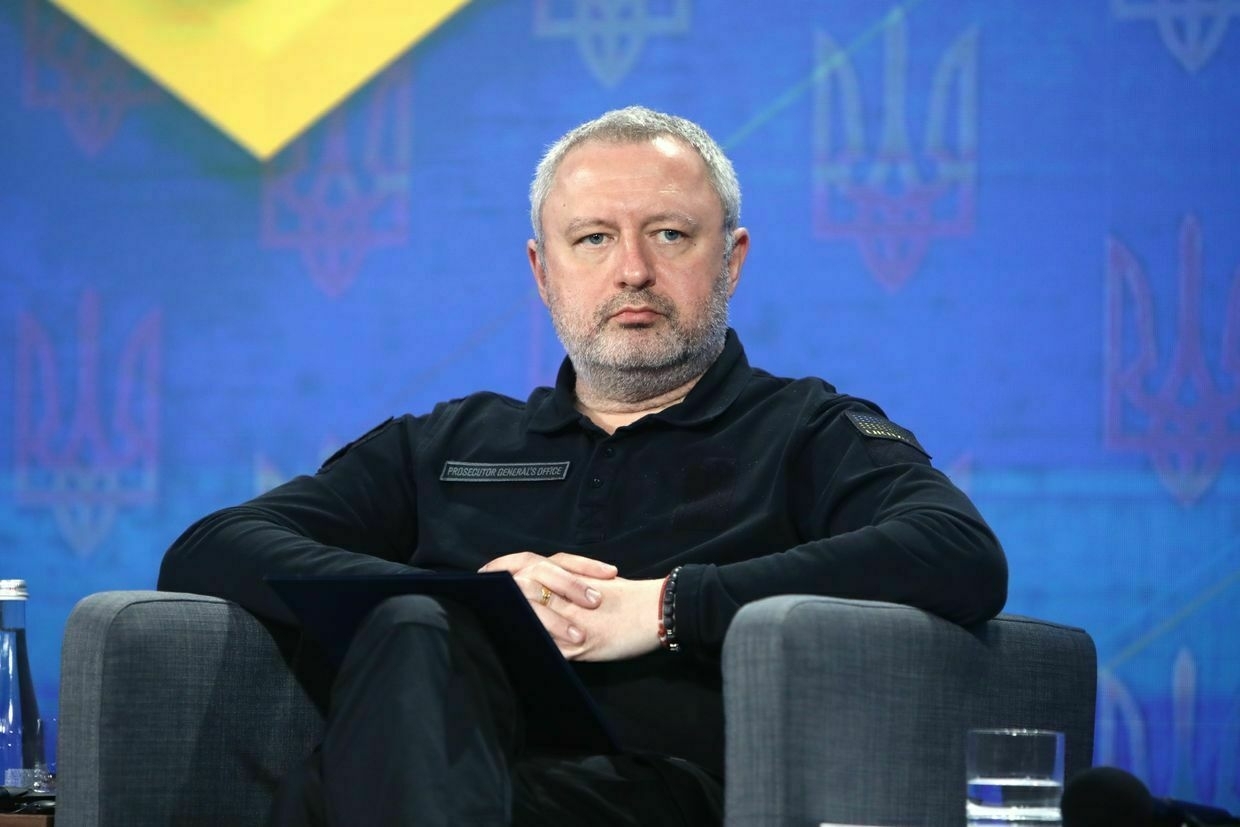
At the military prosecutor’s officeFrom 2015 to 2019, Kravchenko worked as a prosecutor at the military prosecutor’s office, then headed by Anatoly Matios.
The military prosecutor’s office, a Soviet relic, was subordinated to both the prosecutor general and defense minister and did not comply with Western legal standards. It was dissolved in 2020.
Lemenov, head of anti-corruption watchdog StateWatch, argued that Kravchenko may try to resurrect the military prosecutor’s office, which would be a dangerous tendency.
The office had a highly controversial reputation within Ukraine’s civil society. Matios and his subordinates were accused of corruption, blocking criminal cases and persecuting activists — allegations that they denied.
Kaleniuk also told the Kyiv Independent that the military prosecutor’s office lacked transparency and accountability. In 2017, public access to the asset declarations of military prosecutors was closed — a move that anti-corruption activists interpreted as an effort to hide their ill-gotten wealth.
From 2017 to 2019, Kravchenko was the prosecutor during the high treason trial against Viktor Yanukovych, a disgraced former president ousted by a popular uprising in 2014. He was convicted in absentia and sentenced to 13 years in prison for publicly urging Russian President Vladimir Putin to invade Ukraine in 2014.
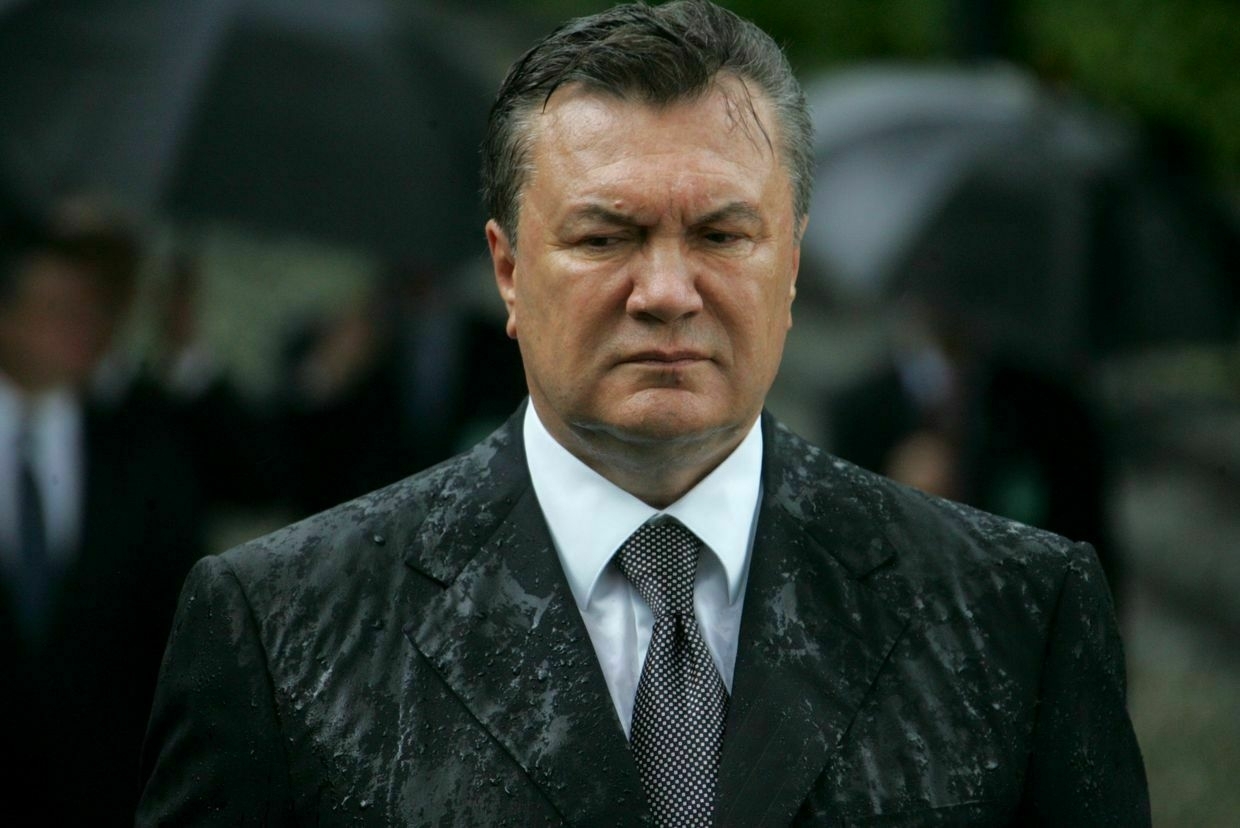
Then-president of Ukraine Viktor Yanukovych in Kyiv, Ukraine, on May 17, 2010. Ruslan Kravchenko was a prosecutor on Yanukovych’s high treason trial that took place in absentia in 2017-2019. (Sasha Mordovets / Getty Images) Some commentators, including Yurchyshyn, praised Kravchenko’s role in the trial.
Others were more skeptical.
Vitaly Tytych, who represents the families of protesters murdered during the revolution that ended Yanukovych’s presidency, has previously criticized the high treason case as lacking substance and called it a public relations stunt.
He accused the prosecutor’s office of being unprofessional, failing to collect enough evidence and making controversial statements that Yanukovych’s defense used to prove a political motive in the case.
Who is Oleksandr Klymenko, Ukraine’s new top anti-corruption prosecutor?The new Prosecutor General Andriy Kostin began his reign with a long-awaited move, ending the seemingly never-ending saga of choosing the country’s top anti-corruption prosecutor. Oleksandr Klymenko, who won the job contest back in December, was formally named the head of the Specialized Anti-Corruption Prosecutor’s Office (SAPO) on July 28.The Kyiv IndependentOleg Sukhov
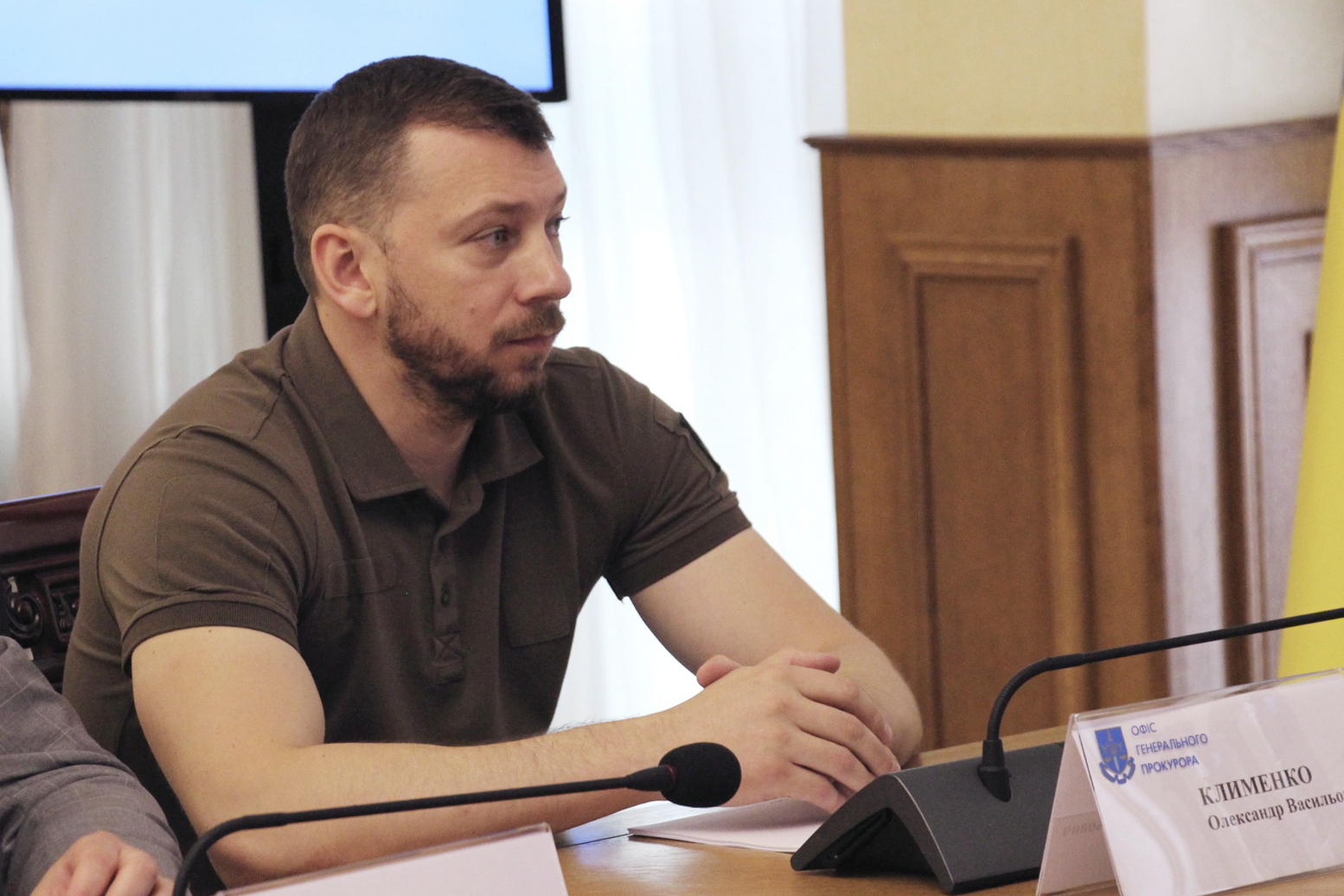
Integrity issuesIn 2020 Kravchenko applied for the job of an anti-corruption prosecutor but was vetoed by a panel of Ukrainian and international experts as not meeting integrity and ethics standards.
One of Kravchenko’s alleged unethical actions was that he had applied for and received a 42-square-meter apartment in Kyiv from the state free of charge and sold it.
The distribution of free state-provided apartments to prosecutors and other officials is a widespread practice in Ukraine, although it is often criticized on ethical grounds.
Kaleniuk, who was on the panel, said that Kravchenko had bypassed the waiting list due to a war veteran document and acquired the apartment ahead of schedule.
“When there is a high level of corruption in the country, a prosecutor general with integrity issues is being appointed.”
However, he did not actually take part in the war and got war veteran status because he was a military prosecutor in the Donbas, where Russia launched an invasion in 2014, she added.
Kravchenko lived in an apartment in Kyiv owned by his wife at the time.
Asked by the vetting panel why he needed another apartment, he said: "I'm a man first of all, today I'm married, and tomorrow I might not be."
It is ironic that, due to the appointment procedures, "to become a rank-and-file anti-corruption prosecutor, you have to meet integrity standards, and to become prosecutor general, you don't," Yurchyshyn said.
Kravchenko denied the accusation of unethical behavior on June 22, saying on Facebook that he had a right to acquire the apartment and that he sold it in order to buy a bigger one.
In 2022, he also took part in a contest to become the chief of the National Anti-Corruption Bureau of Ukraine (NABU). However, he was vetoed again for not meeting integrity and ethics standards.
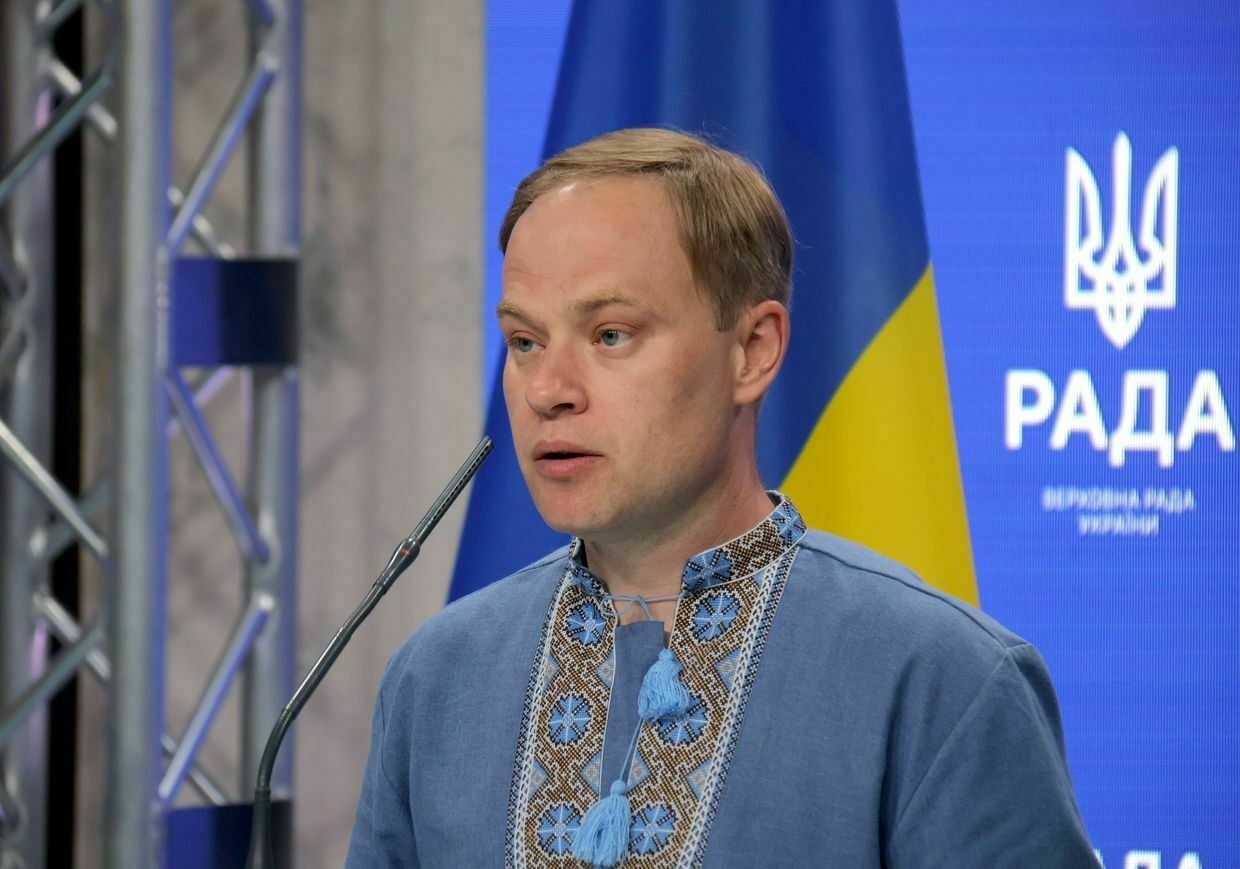
Chairman of the Verkhovna Rada Committee on Freedom of Speech Yaroslav Yurchyshyn speaks during a briefing in Kyiv, Ukraine, on May 8, 2024. (Yevhen Kotenko / Ukrinform/Future Publishing via Getty Images) The vetting panel argued that the income of Kravchenko's parents did not meet their expenses, signaling that he could be using them as a front for his own assets.
During the vetting process, Kravchenko indicated max.noumann@gmail.com as his email, triggering another ethical concern. The vetting panel said that the name was similar to that of Max Naumann, the head of a pro-Hitler Jewish group in Nazi Germany that called for the assimilation of German Jews.
Kravchenko said that this was a coincidence, and that he had made the name up.
"When there is a high level of corruption in the country, a prosecutor general with integrity issues is being appointed," Yurchyshyn said. "This is not a good signal for society, and this will be perceived negatively by society and our Western partners."
Ukraine’s anti-corruption bureau makes progress yet doesn’t take on top presidential alliesAs Ukraine’s civil society and the country’s Western partners call on the authorities to fight corruption amid Russia’s full-scale invasion, the National Anti-Corruption Bureau of Ukraine (NABU) is showing mixed results. A year has passed since Semen Kryvonos became the head of the NABU in March 2023, replacing the bureau’The Kyiv IndependentOleg Sukhov
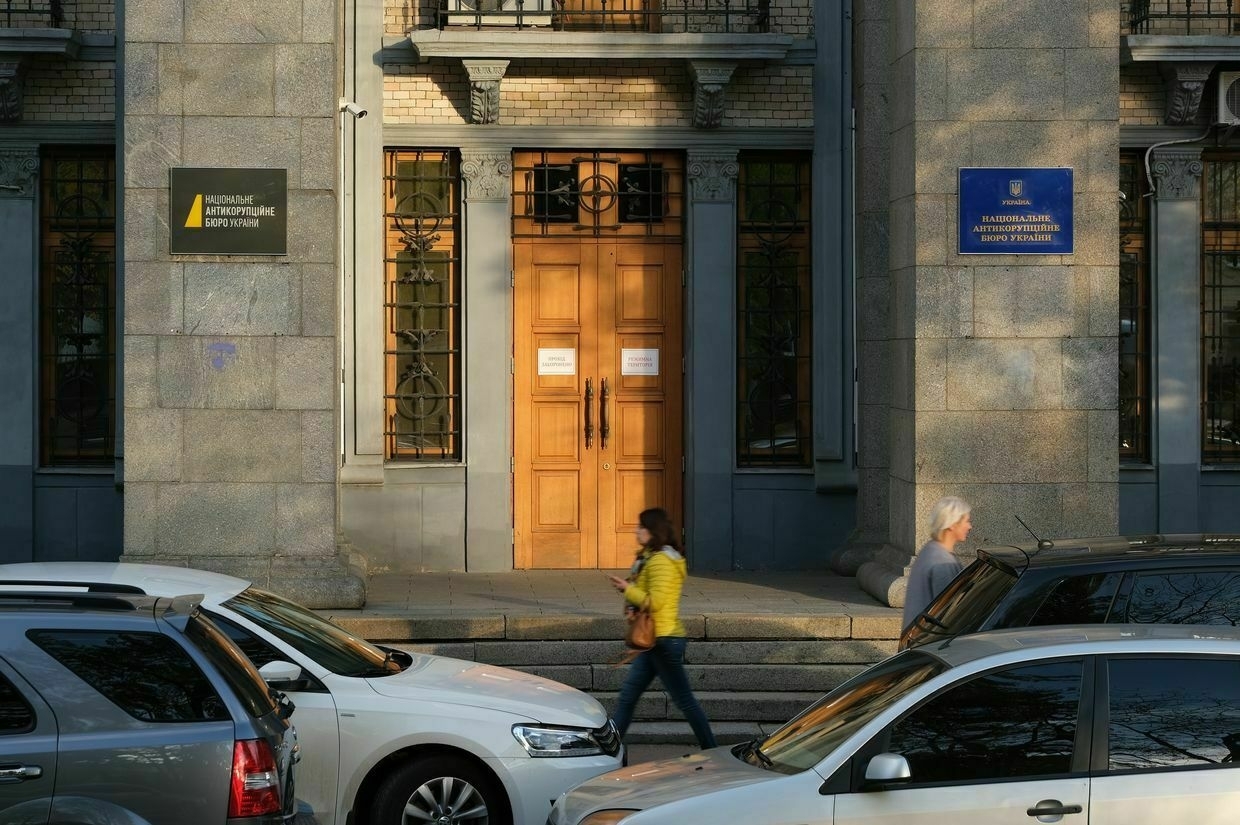
Recent jobsFrom 2021 to 2022, Kravchenko was the chief prosecutor of Bucha in Kyiv Oblast, and oversaw the investigation of war crimes committed by Russian troops in the town.
During their brief occupation of Bucha and nearby areas in February and March 2022, Russian troops massacred hundreds of civilians.
As part of the Bucha investigation, 24 indictments against Russian soldiers have been sent to courts for trials in absentia.
Kravchenko also served as the head of the Kyiv Oblast military administration from 2023 to 2024 — an equivalent to a governor, appointed by the president.
Kravchenko was also appointed by the Cabinet as the head of the State Tax Service in December 2024 and served in that role until June.
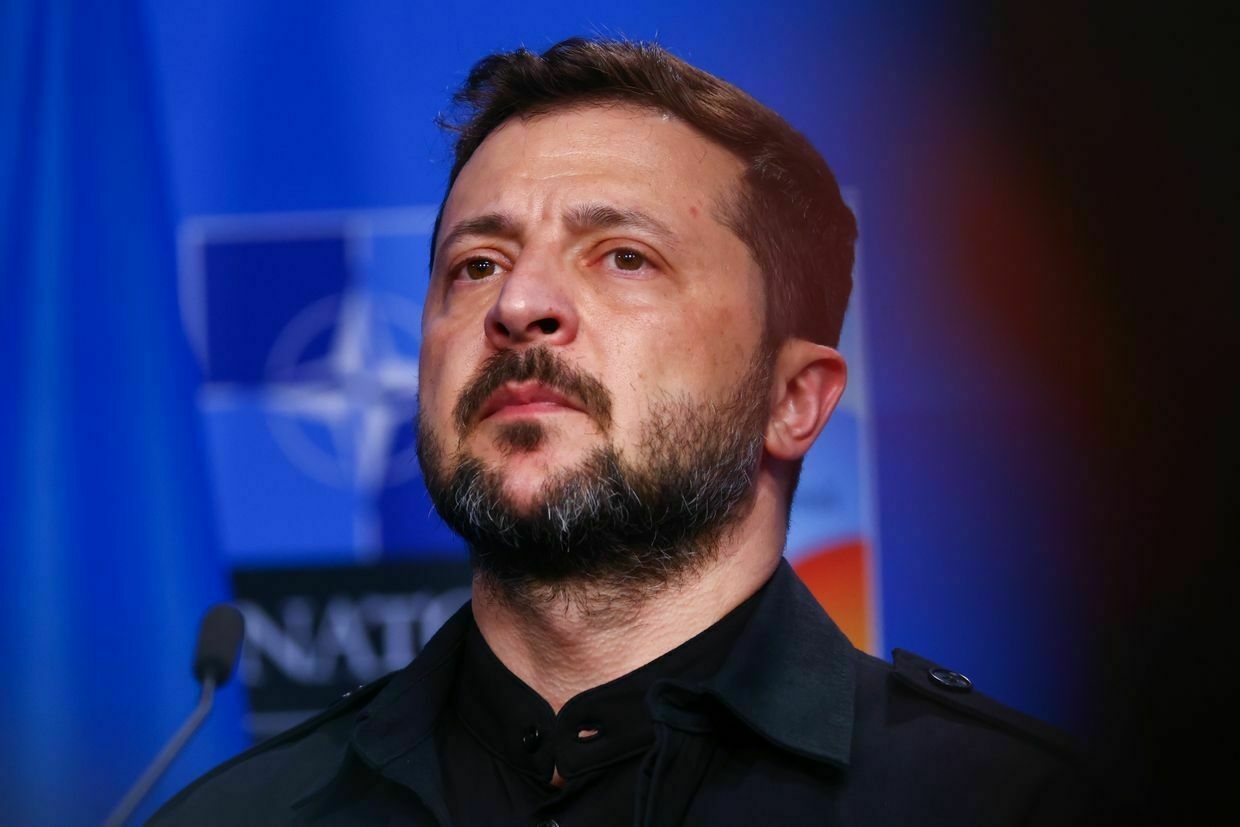
President Volodymyr Zelensky attends a meeting between NATO, the European Union, and Ukraine in The Hague, Netherlands, on June 24, 2025. (Beata Zawrzel / NurPhoto via Getty Images) Despite the shortness of Kravchenko’s tenure there, Zhelezniak argued that Kravchenko had been effective as the Tax Service’s head: There were no corruption scandals, budget revenue rose, and the number of businesses' complaints fell.
Kaleniuk and Yurchyshyn argued, however, that Kravchenko's stint in the role was too short to allow for meaningful assessment.
Yet the main issue remains — Kravchenko’s alleged dependence on the President’s Office could make it difficult for prosecutors to resist political interference.
"Kravchenko is not independent. He is convenient for (Zelensky's) Oleh Tatarov," Kaleniuk said in a reference to Zelensky's controversial deputy chief of staff responsible for law enforcement.
Note from the author:
Hello! My name is Oleg Sukhov, the guy who wrote this piece for you.
I was born in Russia and moved to Ukraine in 2014 because I couldn't stand the suffocating atmosphere of that semi-totalitarian country. I used to think it might be possible to transform Russia into a liberal Western-oriented country. Now it's clear that it's a lost cause.
But at least I can atone for the crimes of my homeland by exposing its barbaric aggression against Ukraine and providing objective and independent coverage of what is going on there. I'm also trying to contribute to Ukraine's transformation into a full-fledged Western liberal democracy strong enough to defeat Russia.
Our publication needs help from every one of you — support Ukrainian wartime journalism, become a member of the Kyiv Independent.
Ukraine’s judicial reform relaunch shows mixed results so farIn late 2023, Ukraine finally re-launched the process of vetting judges as part of a long anticipated judicial reform – a key condition for Ukraine’s accession to the European Union. Four months later, the results are mixed. On the one hand, the High Qualification Commission, a top judicial body, has approvedThe Kyiv IndependentOleg Sukhov
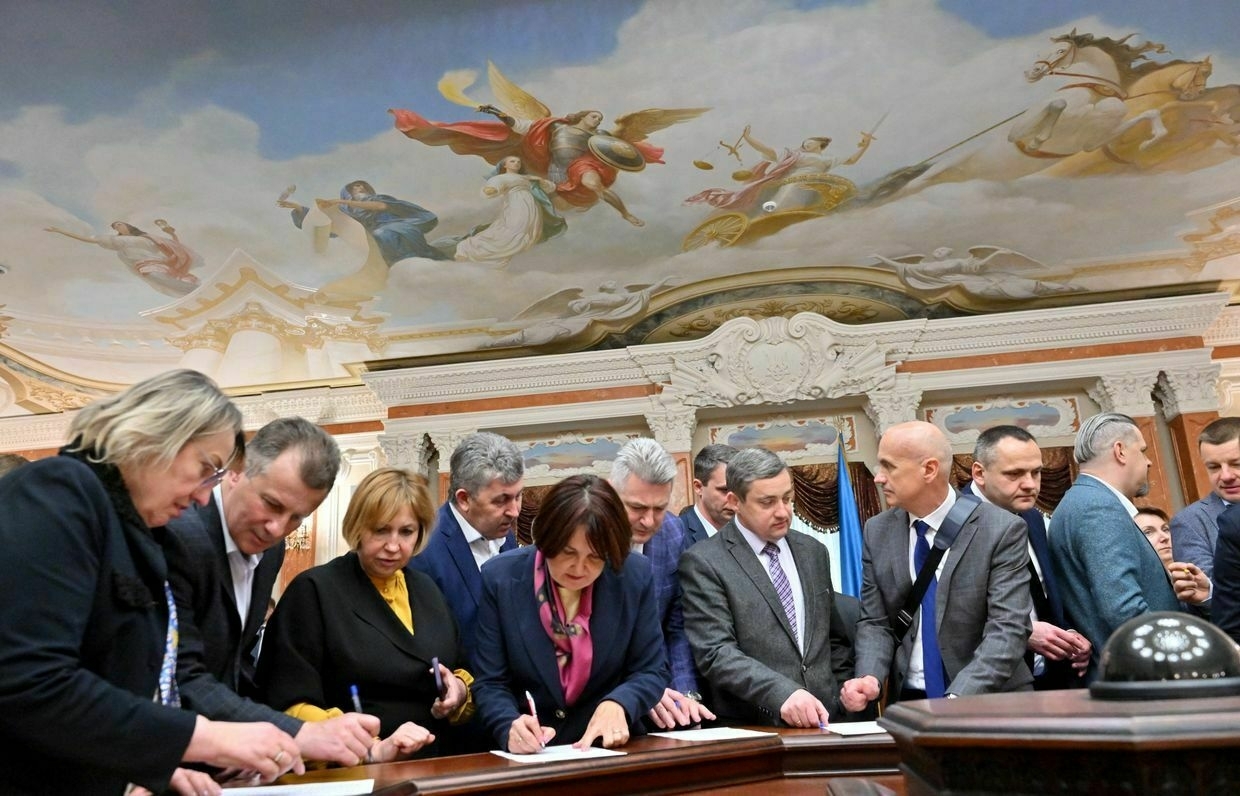
-
Trump vs. Putin? What changed after the meeting with Zelenskyy
-
‘We can crack Russia with sanctions’ – Estonian foreign minister says Putin far from victory in Ukraine
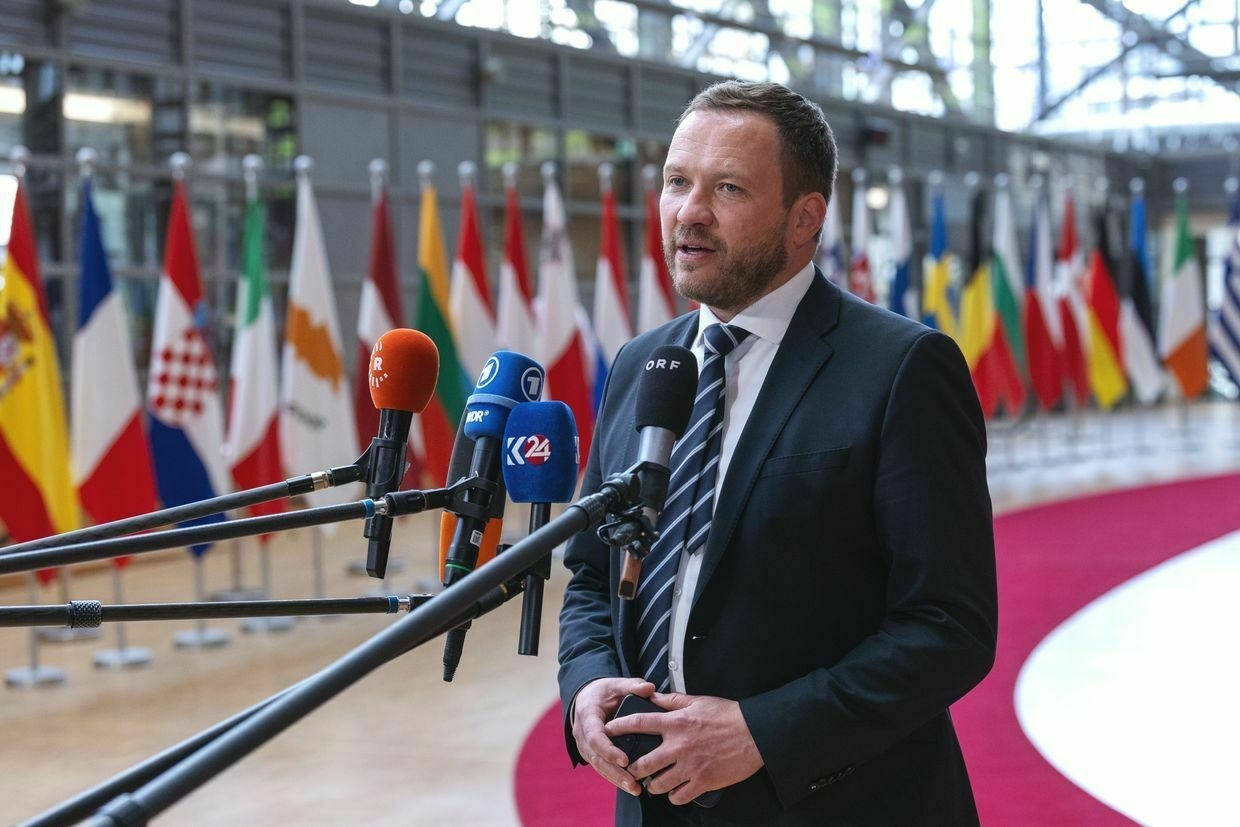
As Russia continues to intensify its onslaught on Ukraine more than three years into the full-scale invasion, Kyiv faces a new challenge – keeping its Western allies, namely the new U.S. administration, engaged in the struggle.
This became clear during the NATO summit in The Hague on June 24-25, where Ukraine was present but took a back seat to the allies' charm offensive aimed at U.S. President Donald Trump.
But some European leaders stress that this does not mean Ukraine is left to fend for itself.
Speaking to the Kyiv Independent on the first day of the summit, Estonian Foreign Minister Margus Tsahkna said this new reality means Europe must take up greater responsibility for Ukraine – and its own defense.
Tsahkna also dismissed the notion that Russian President Vladimir Putin is close to victory in Ukraine, believing the Western allies can “crack” Russia through additional sanctions and steadfast military assistance for Ukrainian defenders.
Rejecting the idea that the alliance is over as we know it because of Trump, Estonia’s top diplomat declared the opposite: “NATO is stronger than ever before."
Editor’s note: This interview was edited for clarity and length.
The Kyiv Independent: For months, NATO allies have said that the overarching goal of military support for Ukraine is to put it into the strongest possible negotiating position. Now, the negotiations have begun, but Russia continues to reject a ceasefire or to compromise on its maximalist demands. Has the strategy changed in light of this?
Margus Tsahkna: Europeans are doing more than before to support Ukraine on a military level. We are also going to adopt the 18th sanctions package at the EU level to put Russia under heavier pressure. But of course, it’s obvious that the only person who is not interested in the ceasefire is Putin.
During these – I don’t know how we can even call them negotiations – Putin has just asked for more and more, and is not giving anything. Of course, an exchange of prisoners of war is a good thing. But it doesn’t mean that Putin wants to have any kind of ceasefire or peace.
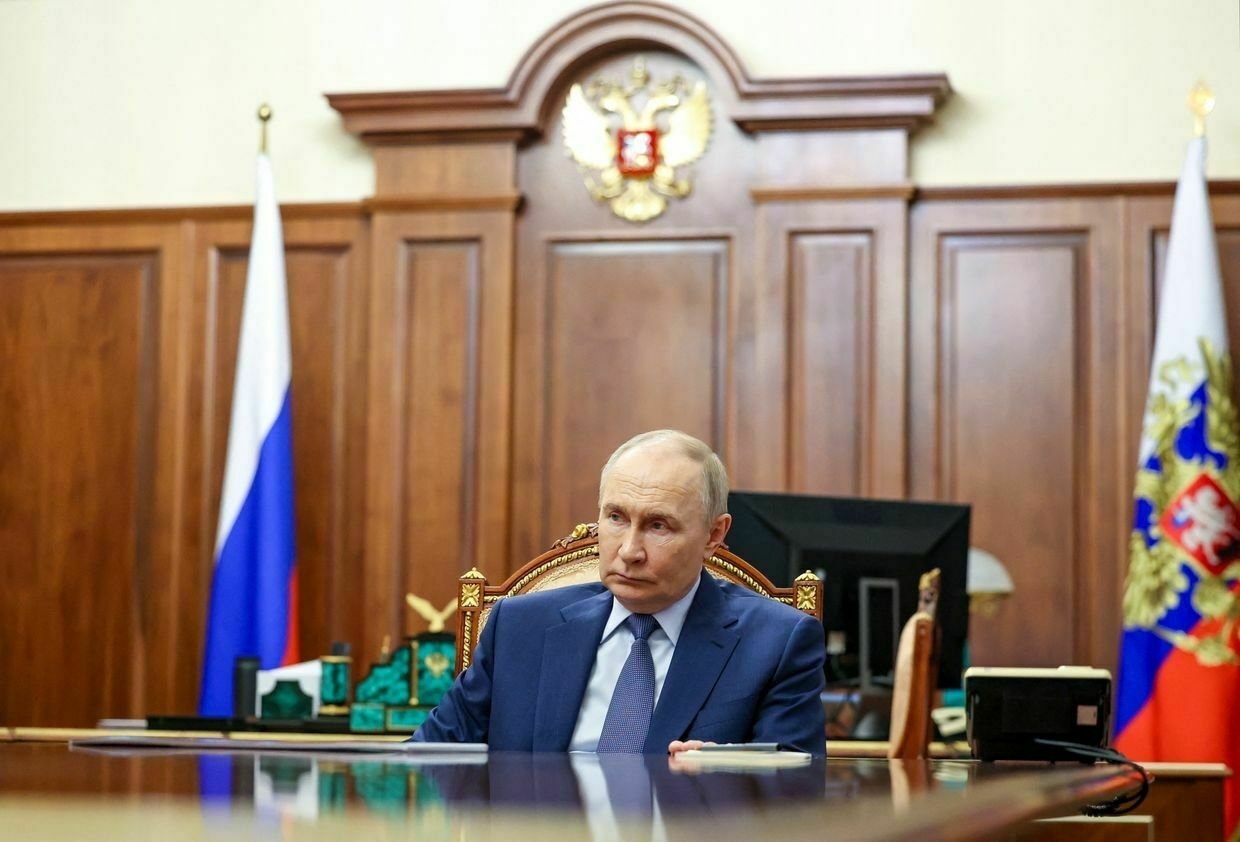
Russian President Vladimir Putin attends a meeting with the children’s rights commissioner in Moscow, Russia, on June 2, 2025. (Gavriil Grigorov / Pool / AFP via Getty Images) What we need to do is very clear: We need to support Ukraine more heavily. We need to reach the 40 billion euros ($47 billion assistance) level from the European side this year, and I think that we are very close to that.
The Kyiv Independent: The allies have been supporting Ukraine for more than three years now, and it has not forced Russia to accept a ceasefire. What has to change on the side of Ukraine’s international allies to actually force Russia to negotiate in good faith?
Margus Tsahkna: I do believe that we can actually crack Russia with more sanctions, by providing more investments and military support to Ukraine, because Ukraine is really strong.
This narrative that Putin wants to present that he is very close to victory and he has been very successful is fake news. Instead of a three-day special operation, Ukraine now has been fighting for more than three years against Russia.
And Russia has not had any kind of strategic breakthrough on the battlefield as well. Russia is terrorizing Ukrainians now by bombing civilians and killing them every night. It is very clear that Putin shows that he doesn’t want to have any kind of ceasefire.
We need to focus on how we can support Ukraine so that Ukraine can keep fighting and not put pressure on it to accept unacceptable conditions.
But our duty is to support Ukraine, which is fighting. I think that it's clear to everybody in the world now.
The Kyiv Independent: Is Europe ready to move forward with these promised crippling sanctions, even if the U.S. seems unwilling to put additional economic pressure on Russia?
Margus Tsahkna: Yes, we just had the foreign council in Brussels yesterday, and we agreed on the main part of this 18th package of sanctions. Of course, lowering the oil price cap would be most efficient. I'm not sure whether this is coming or not.
A couple of governments, such as the Slovaks and Hungarians, are probably blocking this decision. Finding a consensus among 27 countries is really difficult.
But we must make these kinds of decisions as Europe, even if the U.S. is not following. I do hope that, finally, Senator (Lindsey) Graham's sanctions package will be adopted. It includes very direct sanctions against Russia's energy exports, banking, and so on, but also secondary sanctions for those governments that are still dealing with Russia.
We're talking about 500% tariffs on the gas and oil export dealings. But unfortunately, we don't have this decision yet. So we have a long way to go, but every day we need to do our part.
The Kyiv Independent: Does Europe have some kind of contingency plan if the U.S. disengages from peace efforts and the war in Ukraine altogether?
Margus Tsahkna: Yes, Europe must take these responsibilities. And to be honest, we have all the money in the world.
We have $240 billion in Russian frozen assets. And we are pushing heavily, as Estonia, to seize them and confiscate them to finance Ukraine. It's a lot of money for investments in the defense industry, as well as for buying Ukraine new stuff, like air defense systems. But we are not still there.
The Kyiv Independent: During the 2024 NATO summit in Washington, there was a pledge that Ukraine's path toward membership is irreversible. And we heard this pledge reiterated today by Secretary General Mark Rutte.
At the same time, the current U.S. administration has quite openly spoken out against Ukraine's accession. And it seems that the invitation for Ukraine is not even on the agenda of this year's summit. How would you explain to Ukraine that this pledge of irreversibility is not simply political convenience or rhetoric?
Margus Tsahkna: It is not rhetoric. But it's true that the U.S. is against the invitation now.
Estonia's and many others' position is that we see full NATO membership as the only working security guarantee for Ukraine and our region.
This is the most efficient, the most pragmatic decision. It may be impossible right now, but in the future, it will happen. I'm sure about that.
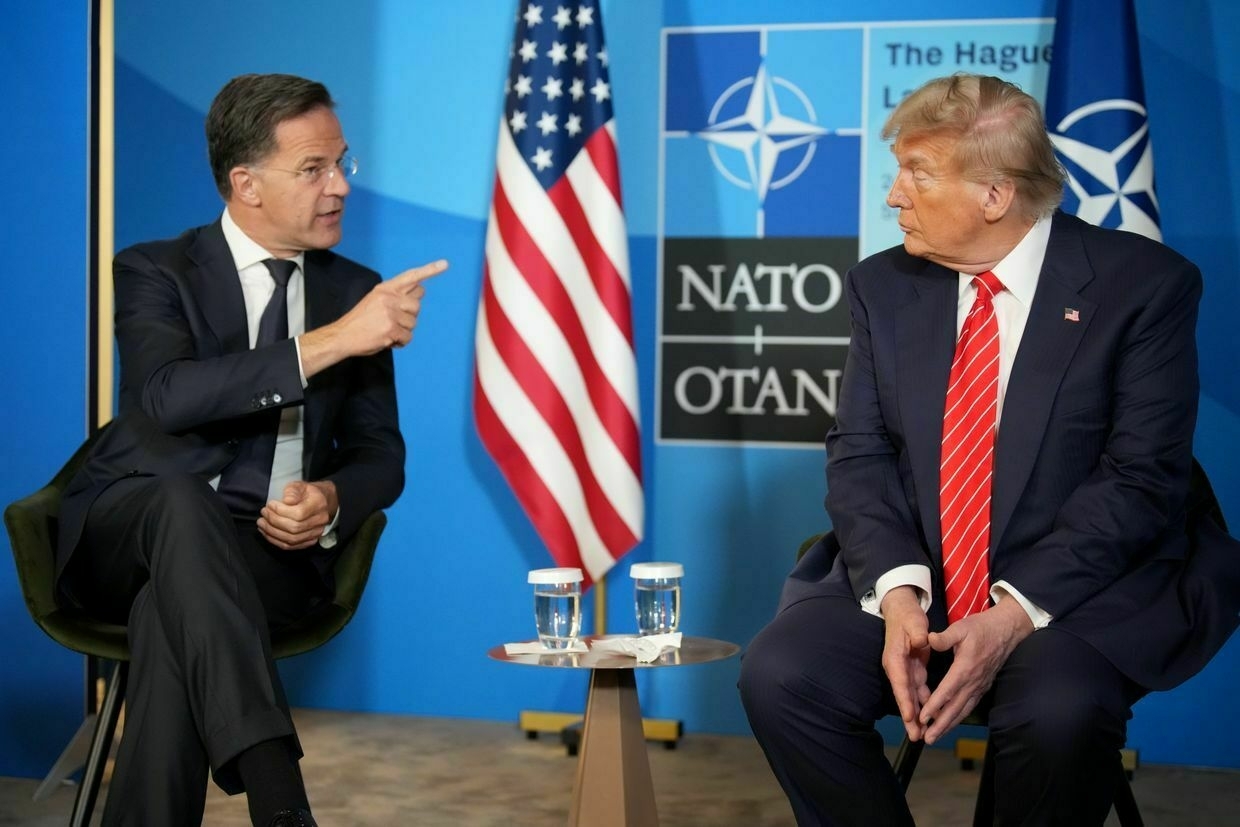
NATO Secretary General Mark Rutte (L) and U.S. President Donald Trump (R) speak to the media in The Hague, Netherlands, on June 25, 2025. (Andrew Harnik / Getty Images) But now we have a hot war situation there. We need to focus on how we can support Ukraine so that Ukraine can keep fighting and not put pressure on it to accept unacceptable conditions. We're talking about sovereignty and territorial integrity. We're talking about the principles of independence.
The Kyiv Independent: Today, there was a massive Russian attack on Dnipro. A day ago, there was another deadly attack on Kyiv. Russia has also launched a new offensive in Ukraine's east. On the other hand, a new conflict is also escalating in the Middle East. Should Ukraine be worried that it will lose the allies' attention when it needs it the most?
Margus Tsahkna: There is always a concern that if a new war opens somewhere in the Middle East, attention will go there. But I can assure you that Europe is taking very seriously its support for Ukraine because there has been a huge change of mentality here.
Everybody understands that an attack against Ukraine is an attack against us as well. Ukraine belongs to Europe.
Europe has been like an old, lazy cat who was just waiting for something bad to happen, and the U.S. would come and solve the problems.
I'm sure that we will continue to support Ukraine, and there won't be any kind of loss of attention. Of course, if you watch the media, if you see politicians commenting on some topics, the number one topic is the war between Iran and Israel. But we need to concentrate our attention on Ukraine.
The Kyiv Independent: Are you worried that if NATO doesn't act decisively and strongly enough to stop Russian aggression in Ukraine, Russia might be eventually tempted to launch aggression elsewhere, for example, Estonia?
Margus Tsahkna: Absolutely. This has been our story since 2014, or even before, when Russia invaded Georgia in 2008. And we said very clearly that Russia won't stop.
And to be honest, Putin cannot stop. Putin is a warlord. And for him, this fight is already existential. He just cannot stop the war.
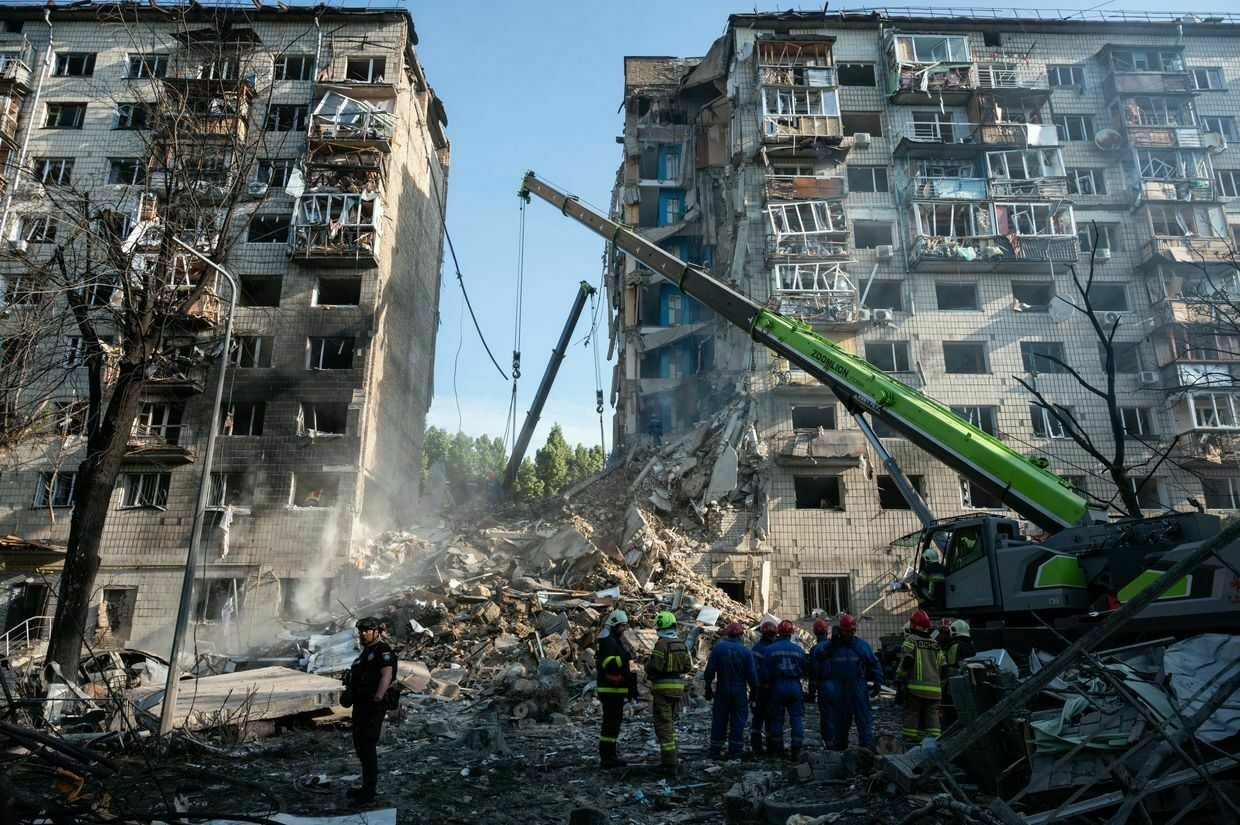
A view of a residential building partially collapsed by a Russian attack in Kyiv, Ukraine, on June 17, 2025. (Danylo Antoniuk / Anadolu via Getty Images) 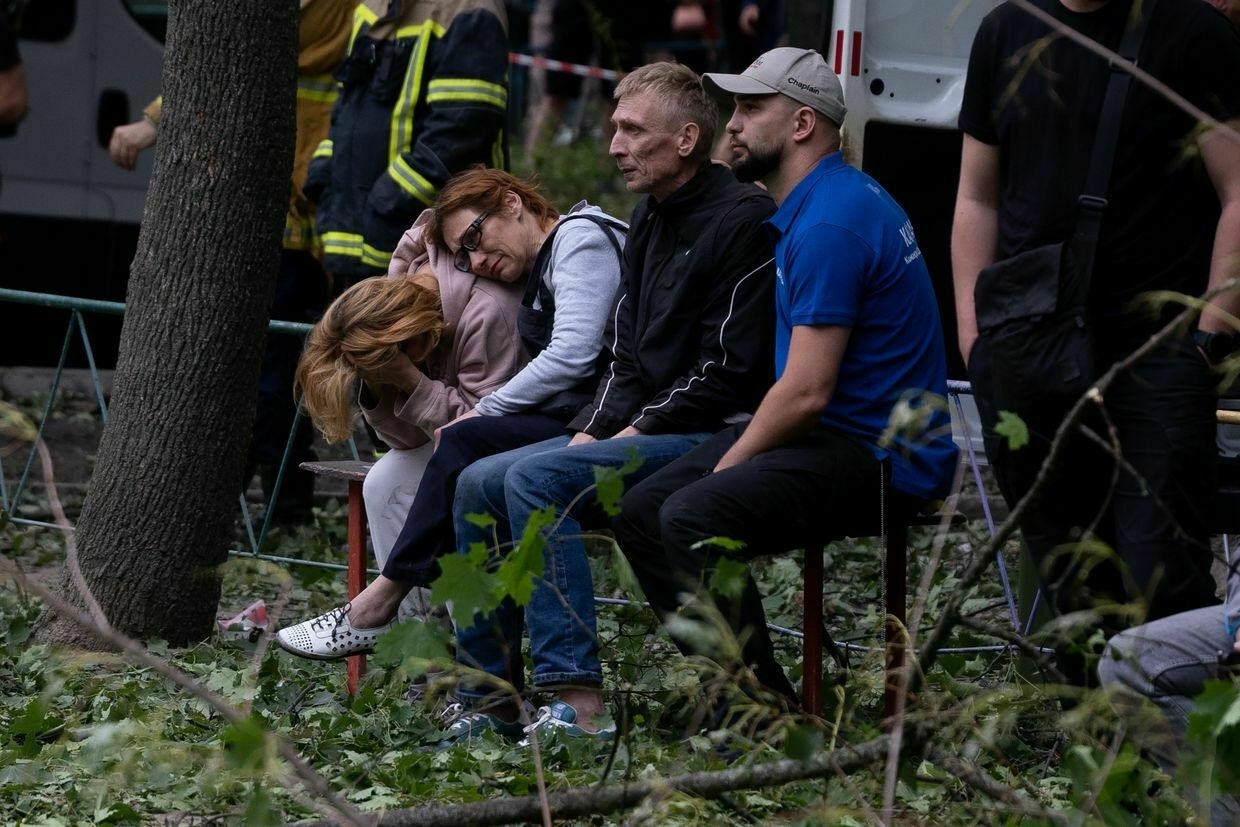
Parents wait while rescuers search for their missing son in the rubble of a partially collapsed residential building after a Russian drone-and-missile attack in Kyiv, Ukraine, on June 17, 2025. (Oleksandr Magula / Suspilne Ukraine / JSC “UA:PBC” / Global Images Ukraine via Getty Images) And that's why we need to support Ukraine. Ukraine is fighting not only for itself, but also for us, but also instead of us. Most leaders in Europe understand this.
To be honest, Putin revealed his plan already in 2008 at the Munich Security Conference. It was about the restoration of the Soviet empire – and he's really committed to this plan.
So the Baltics and the Nordics understand this. Maybe some others don't believe it, but it's our job to convince them.
The Kyiv Independent: As a country on Russia's borders, how do you view the signals from the U.S. that they are shifting their focus away from Europe and their plans to decrease military presence on NATO's eastern flank?
Margus Tsahkna: Let's see what the review of the plans will be. Because the U.S. understands as well that the troops in Poland and the Baltic states are keeping and securing the peace.
But President Trump has said very clearly that he will be committed to NATO. But of course, I totally agree with President Trump – and also previous U.S. presidents – that Europe must pay more, Europe must take more responsibility for its own defense.
And this burden-sharing that has been here for the last 20 years is not fair.
Europe has been like an old, lazy cat who was just waiting for something bad to happen, and the U.S. would come and solve the problems.
No, the U.S. may not come to solve the problems if we are not committed. So this is exactly what you see at this NATO summit.
The Kyiv Independent: There have been many voices after President Trump took office and after Vice President JD Vance’s speech at the Munich Security Conference that NATO, as we know it, is gone. Do you agree with that?
Margus Tsahkna: No, NATO is stronger than ever before. We have Finland and Sweden, new members within our region, in NATO. We see that all the member states are investing more heavily (in defense).
But I also see this change on a political level. In Germany, a new government has declared very straightforwardly that it will create the strongest army in Europe. They have plans and money for that, so I think NATO is actually stronger than it was five years ago.
Note from the author:
Hi, this is Martin Fornusek. I hope you enjoyed this interview.
Our team strives to bring you the most interesting discussions with politicians, experts, and other important voices with insights on Ukraine's history, politics, and its resistance against Russian aggression.
We wouldn't be able to do so without the support of readers like you. To help us continue in this work, please consider becoming a member of the Kyiv Independent's community.
Thank you very much.
Trump gets king’s treatment at NATO summit while Ukraine sits on the sidelinesTHE HAGUE, Netherlands — As NATO leaders convened in The Hague for a two-day summit on June 24–25, allies and Kyiv braced for the first annual meeting since U.S. President Donald Trump’s return to office. With the Israel-Iranian conflict dominating the news and the summit agenda focused onThe Kyiv IndependentMartin Fornusek
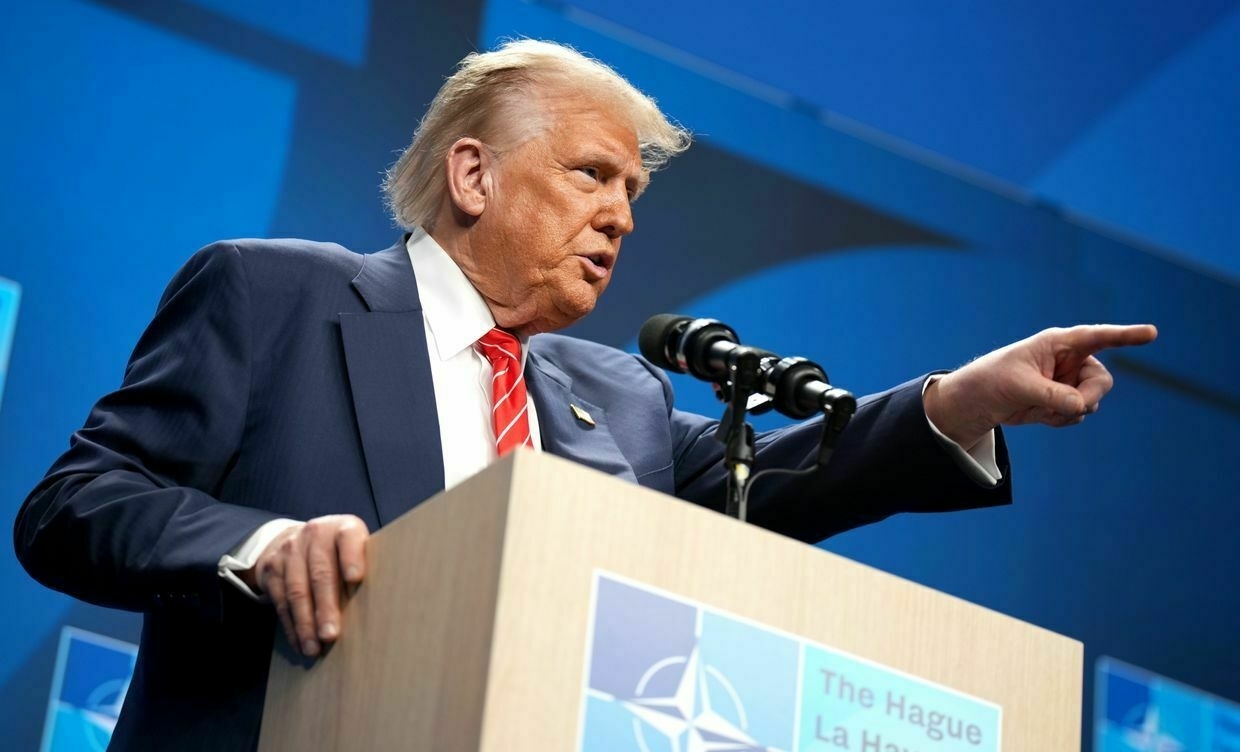
-
Ukraine seeks Zelensky-Putin meeting as next step in ceasefire negotiations
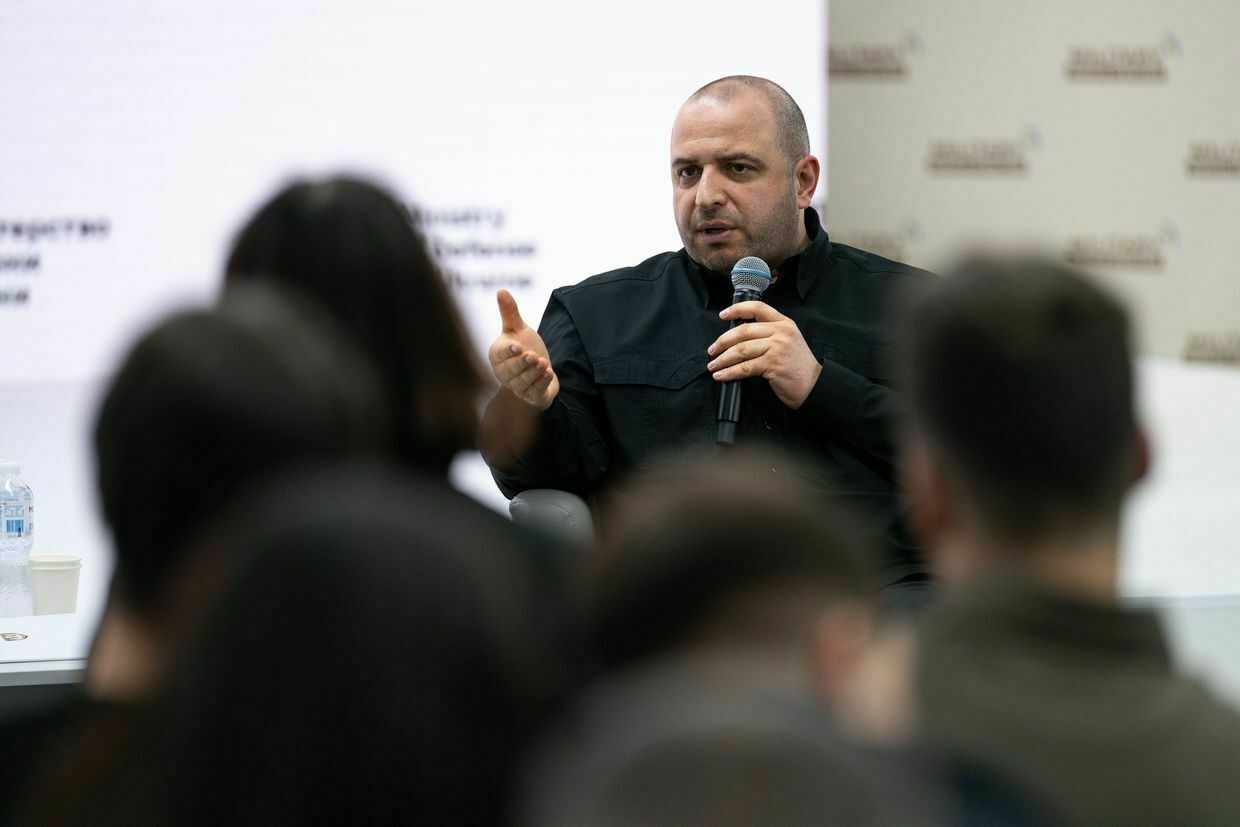
Ukraine’s next goal in ongoing negotiations with Russia is to organize a direct meeting between President Volodymyr Zelensky and Russian President Vladimir Putin, Defense Minister Rustem Umerov said during a press briefing on June 26.
Speaking to journalists in Kyiv, Umerov, who was part of Ukrainian peace talks delagation, outlined a multi-stage negotiation process that began in January with an initiative from U.S. President Donald Trump. Umerov stressed that Ukraine welcomed the idea of a ceasefire from the outset and remains fully committed to a just peace.
“Ukraine has always remained consistent in its pursuit of peace,” Umerov said. “We supported the U.S. initiative for a full ceasefire from the very beginning and demonstrated our commitment through multiple rounds of negotiations. But any dialogue must take place without ultimatums and with full respect for our country’s sovereignty."
The talks unfolded in several rounds in Jeddah, Riyadh, Paris, London, and Istanbul. During the second round of negotiations in Riyadh, Ukraine communicated with Russia indirectly, through U.S. mediators. In Turkey, U.S. mediators were excluded from talks due to Russia’s request, according to Umerov.
Umerov said Ukraine had accepted a U.S.-proposed full ceasefire across land, sea, and air in early March, but Russia has rejected the proposal.
While no agreement on a comprehensive ceasefire has been reached, talks have led to a few major prisoner exchanges, including a 1,000-for-1,000 swap that took place in late May and a follow-up deal for up to 1,200 prisoners from each side.
Umerov said the focus of recent negotiations has included humanitarian issues such as the release of civilians and children, as well as conditions for a meeting of Ukrainian and Russian leaders. He emphasized that the next stage must include top-level dialogue.
“After completing discussions on humanitarian issues, Ukraine plans to move forward to the topic of a leaders' summit for substantive dialogue,” he said.
The latest peace talks between Russia and Ukraine took place on June 2 in Istanbul, following an earlier meeting on May 16. Both times, the Ukrainian delegation was led by Umerov. Despite Ukraine’s insistence on a 30-day ceasefire, Russia proposed only a temporary 2–3-day truce in limited areas to retrieve the bodies of fallen soldiers. Umerov called this offer “insufficient” and accused Moscow of avoiding meaningful peace.
“Russia rejects even the very idea of stopping the killings,” Umerov said following the June 2 talks. “That’s why we appeal to the world: pressure is needed for real peace, not for an imitation of negotiations."
Zelensky has also criticized Moscow’s limited ceasefire offers and called on Trump to follow through on promised sanctions if talks remain fruitless. Trump has repeatedly suggested that he is monitoring the peace process closely and warned that the U.S. response could change if Putin is not prepared to end the war.
No further U.S. sanctions were imposed after more than 100 days of Moscow’s refusal to the proposed ceasefire.
Facing manpower shortage, Ukrainian brigade turns to women in first-ever female recruitment driveEditor’s note: This article originated as a winning story idea in a vote by members of the Kyiv Independent’s community. Join our community today and join our exclusive members-only Discord channel, where you can discuss and suggest stories, ask our journalists questions, and more. “Her strength is herThe Kyiv IndependentNatalia Yermak
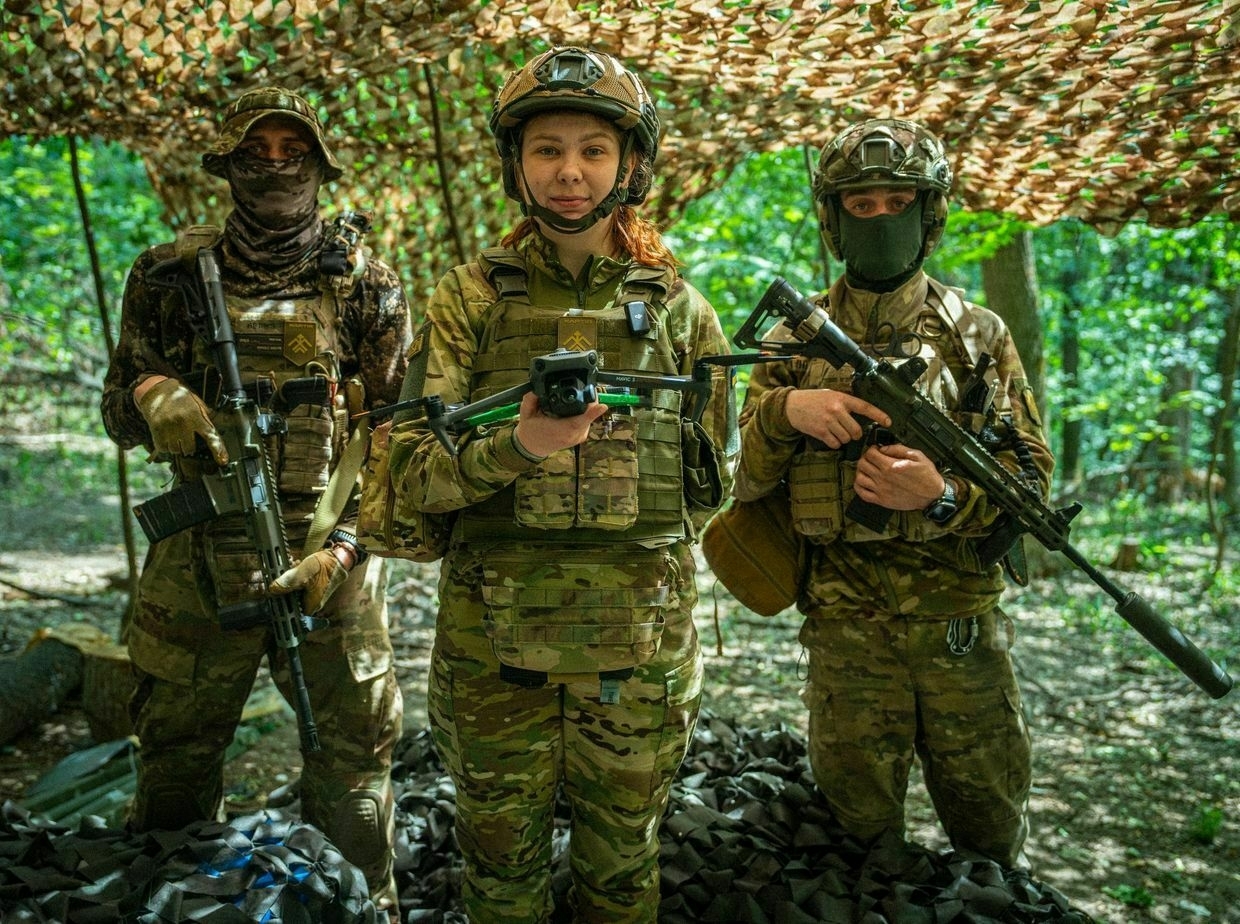
-
Trump wants to slash war crimes investigation funds, Reuters reports
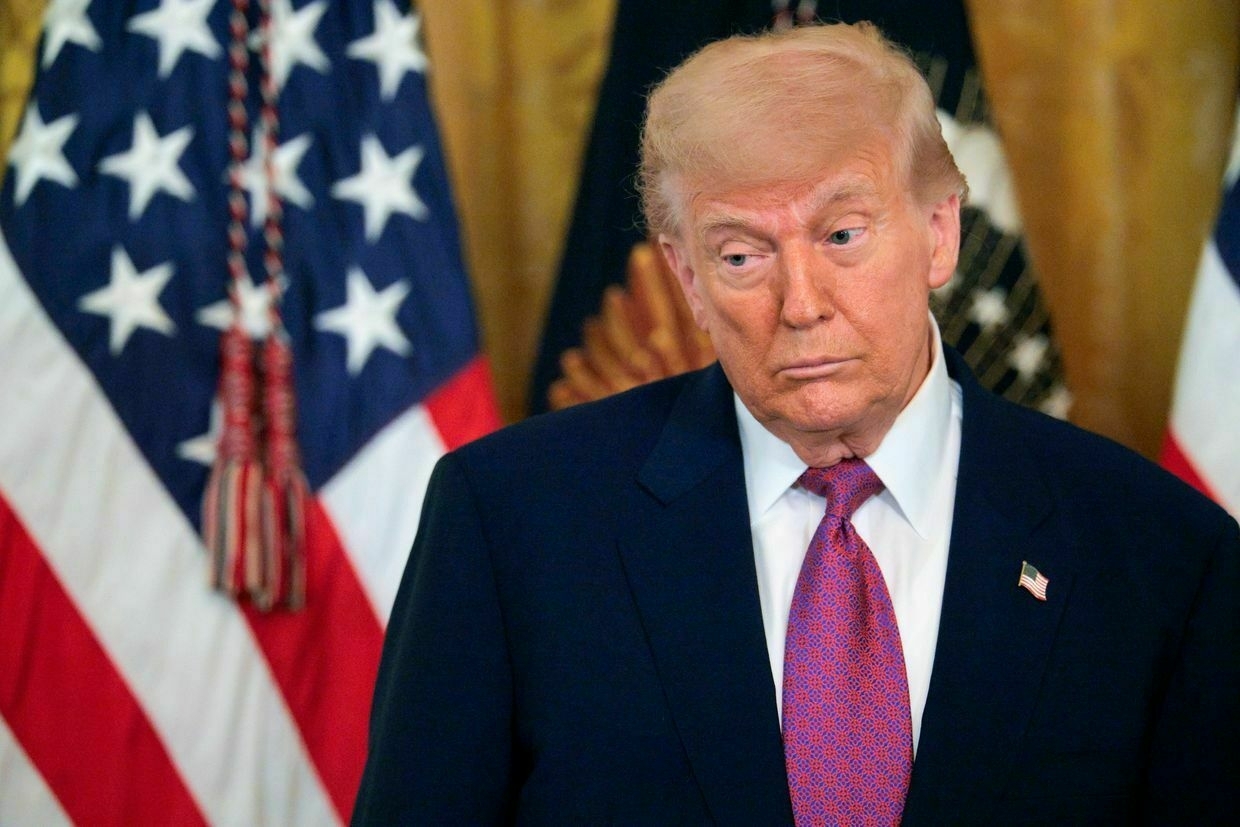
The White House has recommended terminating U.S. funding for multiple programs that investigate war crimes worldwide, including Russian war crimes in Ukraine, Reuters reported on June 26.
Since U.S. President Donald Trump’s inauguration in January, the administration has imposed sweeping layoffs and budget cuts, targeting foreign aid, media outlets, and federal workers. Many of the cuts have directly impacted programs assisting Ukraine.
The Trump administration’s Office of Management and Budget (OMB) on June 25 recommended canceling funds for nearly two dozen programs that investigate and seek accountability for war crimes, two U.S. sources familiar with the matter told Reuters. The outlet also reviewed internal government documents to support their claims.
The targeted programs include groups investigating Russian war crimes in Ukraine, as well as atrocities in Myanmar, Syria, Iraq, Nepal, Sri Lanka and the Gambia.
Multiple programs designated for termination are operating in Ukraine, three sources told Reuters. One of the groups is Global Rights Compliance, which gathers evidence of Russian war crimes across the country, including torture and sexual violence. Another is Legal Action Worldwide, a legal aid organization that supports efforts to prosecute suspects accused of perpetrating war crimes in Ukraine.
The State Department will have the opportunity to appeal the OMB’s recommendation, though two U.S. officials told Reuters that Secretary of State Marco Rubio is not likely to advocate for most of the programs.
Rubio could potentially argue to preserve a few key programs, such as those supporting the prosecution of Russian war crimes in Ukraine, one source said.
According to an internal State Department email viewed by Reuters, the department has until July 11 to submit their arguments on behalf of preserving any of the targeted war crimes accountability programs.
The Trump administration’s funding cuts have already impacted humanitarian aid and civil society programs across Ukraine as the country faces its fourth year of Russia’s full-scale invasion. One of Trump’s first acts in his second term was to freeze all U.S. foreign assistance for 90 days. He then worked alongside former ally Elon Musk to dismantle the U.S. Agency for International Development (USAID).
Among the defunded organizations is Ukraine Conflict Observatory, the leading U.S.-backed initiative documenting Russia’s abduction of Ukrainian children. A part of Yale University’s Humanitarian Research Lab, the group will end its efforts to track and monitor illegally deported Ukrainian children as of July 1 due to funding cuts.
The White House also previously disbanded the U.S. Justice Department’s War Crimes Accountability Team and fired a coordinator responsible for collecting data on Russian war crimes in Ukraine.
Trump gets king’s treatment at NATO summit while Ukraine sits on the sidelinesTHE HAGUE, Netherlands — As NATO leaders convened in The Hague for a two-day summit on June 24–25, allies and Kyiv braced for the first annual meeting since U.S. President Donald Trump’s return to office. With the Israel-Iranian conflict dominating the news and the summit agenda focused onThe Kyiv IndependentMartin Fornusek
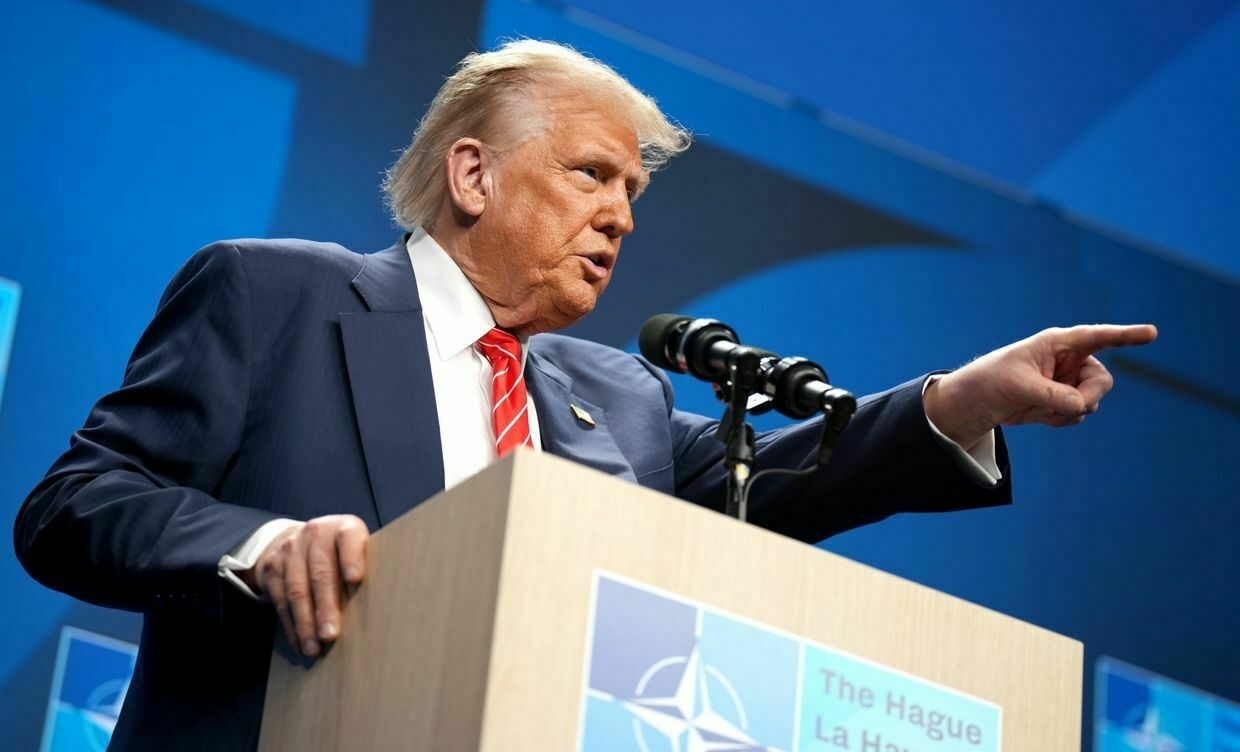
-
Ukraine war latest: Russia's advance in Sumy Oblast 'halted'; Kyiv, Moscow carry out POW swap
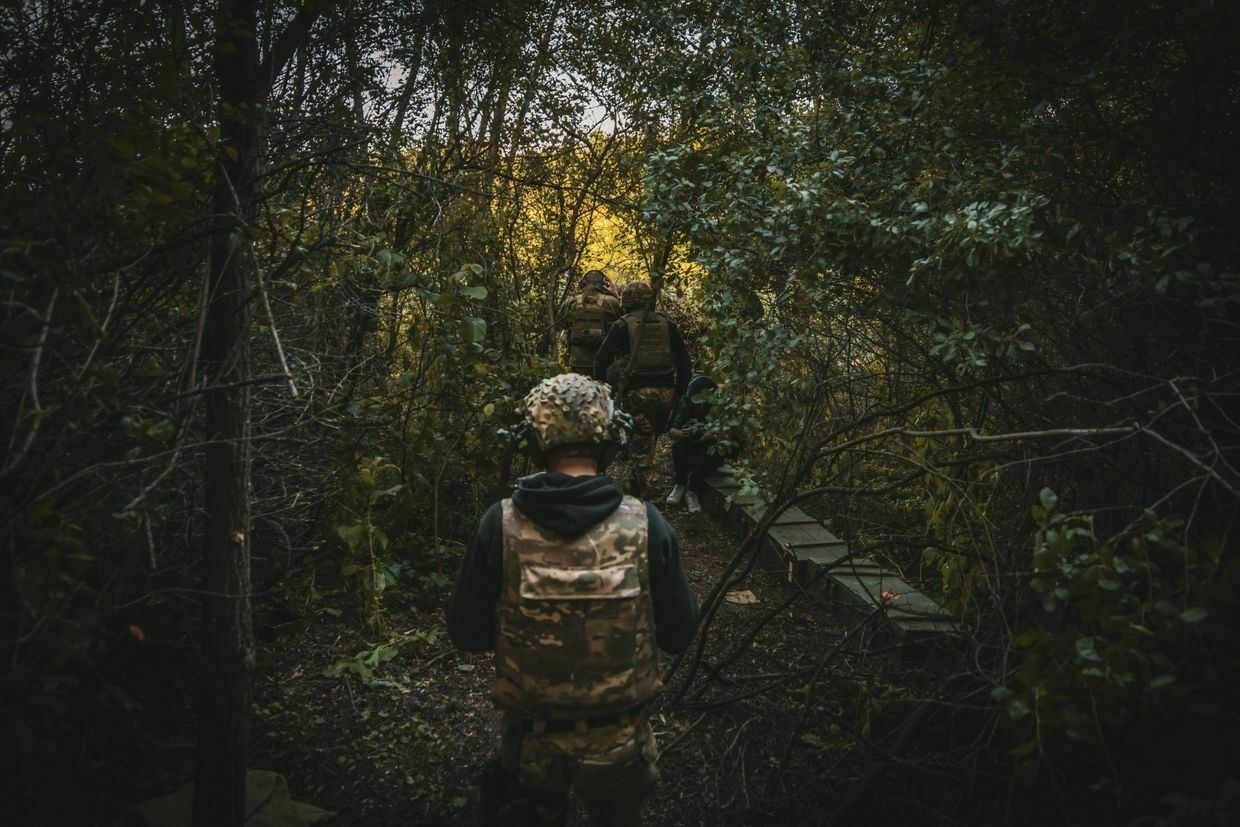
Key developments on June 26:
- “50,000 Russian troops pinned down” — Ukraine halts advance in Sumy Oblast, summer offensive “faltering,” Syrskyi says
- Ukraine, Russia conduct new POW swap under Istanbul deal
- North Korea likely to send more troops to Russia by August, South Korea says
- Explosions reported in Moscow, Russia claims 50 Ukrainian drones downed across country
Ukraine has halted Russia’s advance in Sumy Oblast, stabilizing the front line and blunting the momentum of Moscow’s summer offensive, Commander-in-Chief Oleksandr Syrskyi said on June 26.
“Based on the results of May and June, we can say that this year’s wave of the enemy’s summer offensive from Russian territory is faltering,” Syrskyi said, reporting that Russian troops in the northeastern border region had been stopped.
Moscow launched its new summer campaign in May, aiming to push deeper into Ukraine’s northeast and eastern regions, disregarding Kyiv’s calls for an unconditional ceasefire.
Russian forces had made modest gains, occupying around 449 square kilometers (173 square miles) in May, the highest monthly total in 2025, according to the open-source intelligence group DeepState.
In Sumy Oblast, however, the line of contact has stabilized. Syrskyi said Ukrainian troops are not only defending but also reclaiming ground using active defense tactics.
“In certain areas, our units are liberating Ukrainian territory,” he said.
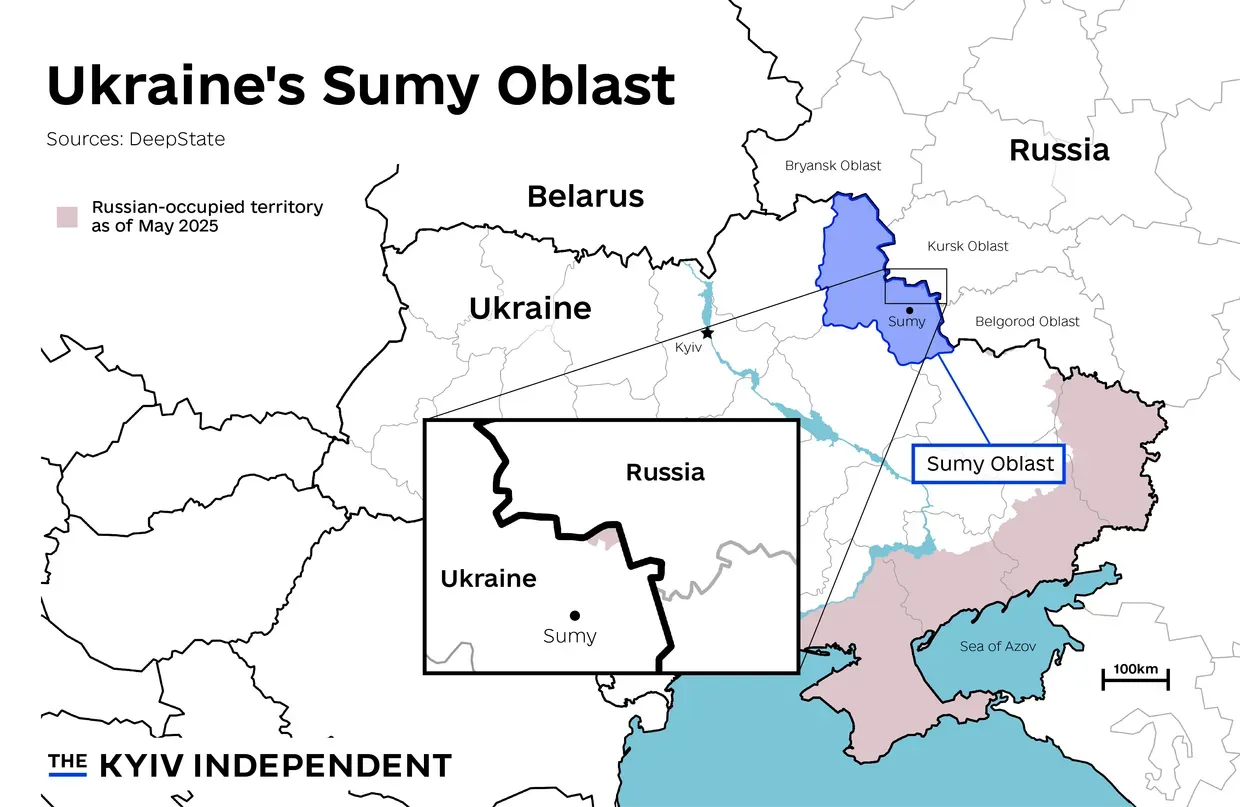
A map of Ukraine’s Sumy Oblast (Nizar al-Rifal/The Kyiv Independent) Ukraine, Russia conduct new POW swap under Istanbul dealUkraine has brought home a group of soldiers released from Russian captivity, President Volodymyr Zelensky said on June 26, marking yet another in a recent series of exchanges with Moscow.
“Today, soldiers of the Armed Forces, the National Guard, and the State Border Guard Service are returning home,” Zelensky said without revealing their numbers.
The exchange follows six similar swaps carried out in recent weeks in accordance with agreements reached between Kyiv and Moscow at the second round of peace talks in Istanbul on June 2.
As in the other recent swaps, the latest one focused on severely ill and wounded POWs and also included a group of young soldiers under the age of 25, the Coordination Headquarters for the Treatment of Prisoners of War (POWs) said.
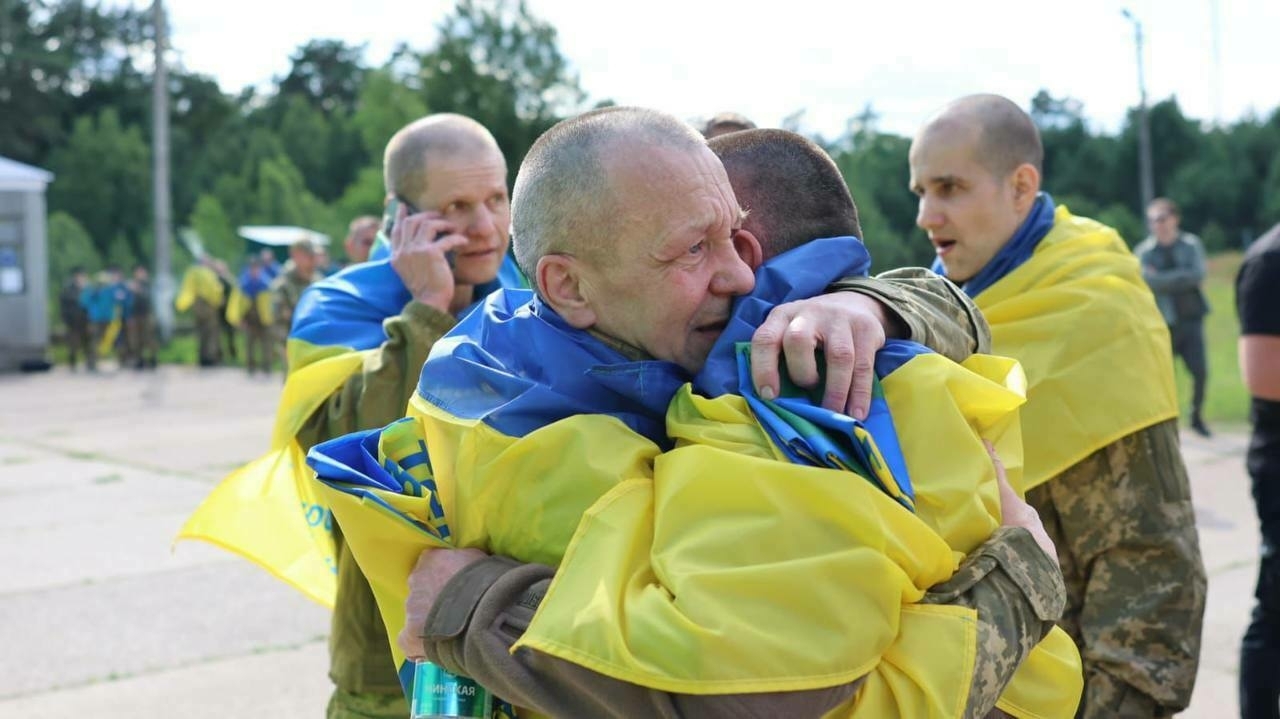
Ukrainian soldiers pictured after being released from Russian captivity on June 26, 2025. (President Volodymyr Zelensky/Telegram) Most of those released had been in Russian captivity since 2022, with the youngest being a 24-year-old soldier taken prisoner during the battle for Mariupol. The oldest of the freed captives was 62.
The released soldiers fought elsewhere in Donetsk, Luhansk, Kherson, Kharkiv, Sumy, and Kyiv oblasts. Among those freed are several officers, according to the headquarters.
“We are doing everything possible to find each person and verify information about every name,” Zelensky said. “We must bring all our people home."
Russia’s Defense Ministry also announced a prisoner exchange with the Ukrainian side, without specifying the number of soldiers involved.
Facing manpower shortage, Ukrainian brigade turns to women in first-ever female recruitment driveEditor’s note: This article originated as a winning story idea in a vote by members of the Kyiv Independent’s community. Join our community today and join our exclusive members-only Discord channel, where you can discuss and suggest stories, ask our journalists questions, and more. “Her strength is herThe Kyiv IndependentNatalia Yermak
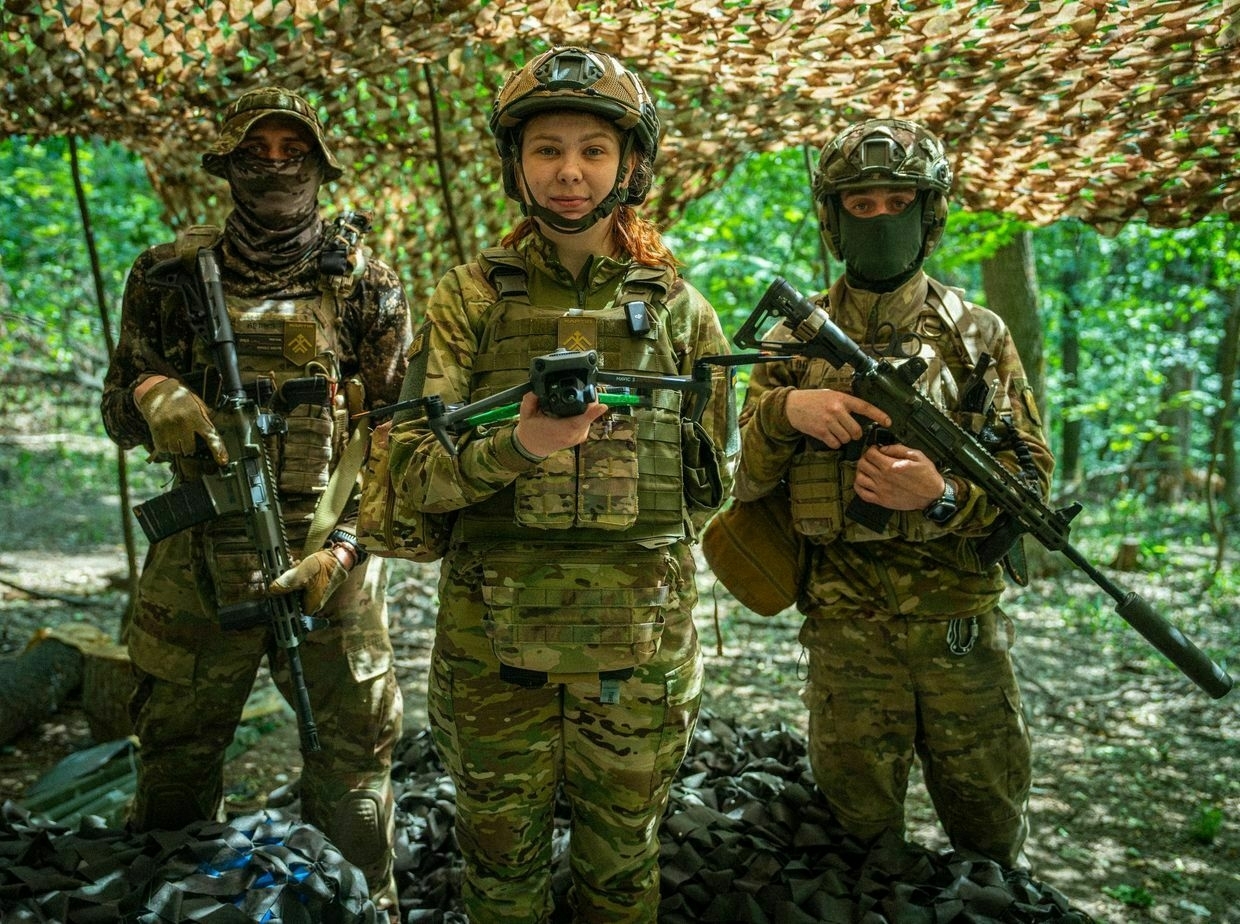
North Korea likely to send more troops to Russia by August, South Korea saysNorth Korea is likely to send more troops to Russia as early as July or August to bolster Moscow’s war effort against Ukraine, South Korea’s National Intelligence Service (NIS) said during a closed-door briefing, Yonhap reported on June 26.
According to lawmakers briefed by the NIS, Pyongyang has already begun recruiting soldiers for deployment to Russia. The latest intelligence adds to growing concerns about the expanding scope of North Korea’s involvement in Russia’s war.
The additional troop deployment would come on top of what Seoul estimates is already substantial support from North Korea, including the transfer of over 10 million artillery shells, and ballistic missiles in exchange for economic and technical assistance.
Yonhap’s reporting follows recent findings that Pyongyang may send up to 25,000 laborers to Russia to support drone production, specifically Shahed-type loitering munitions, at the Alabuga Special Economic Zone in Tatarstan, according to Japan’s NHK broadcaster.
In return, Pyongyang reportedly seeks training in drone operations, signaling an effort to integrate advanced unmanned aerial capabilities into its own military arsenal.
Trump gets king’s treatment at NATO summit while Ukraine sits on the sidelinesTHE HAGUE, Netherlands — As NATO leaders convened in The Hague for a two-day summit on June 24–25, allies and Kyiv braced for the first annual meeting since U.S. President Donald Trump’s return to office. With the Israel-Iranian conflict dominating the news and the summit agenda focused onThe Kyiv IndependentMartin Fornusek
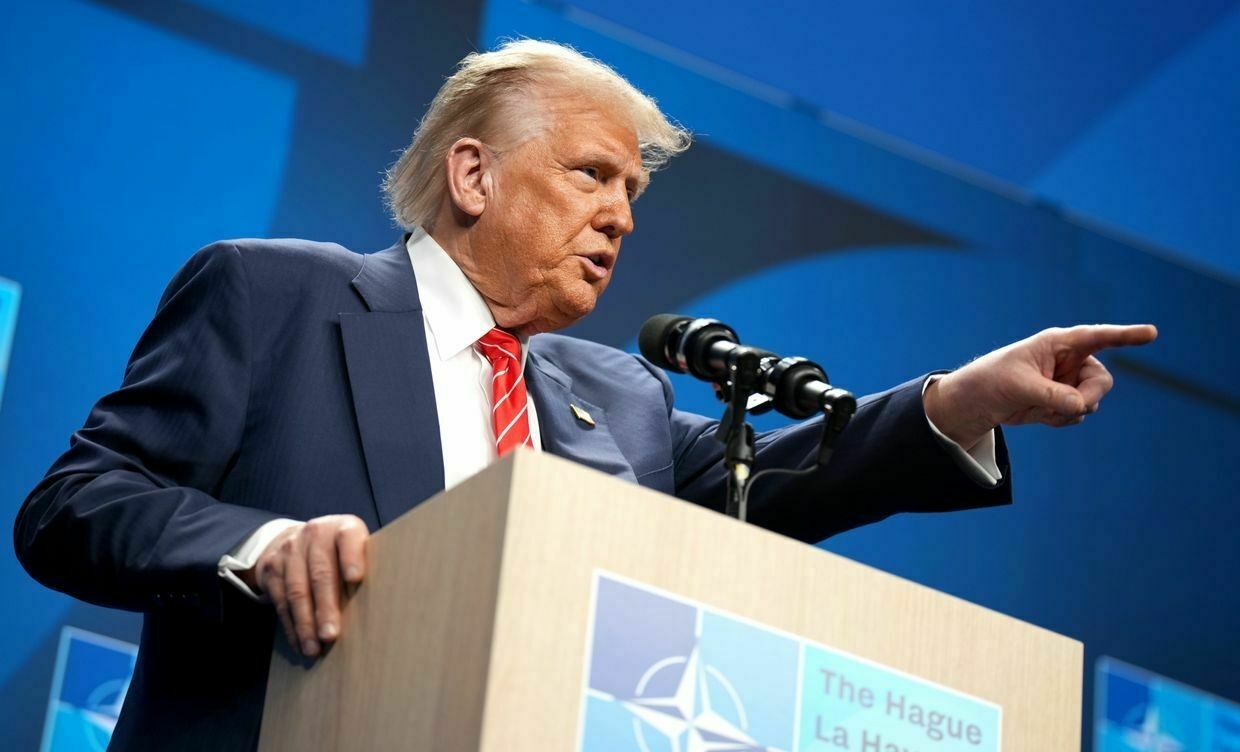
Explosions reported in Moscow, Russia claims 50 Ukrainian drones downed across countryExplosions were reported in Moscow overnight on June 26, prompting airport closures, with Russia’s Defense Ministry claiming 50 Ukrainian drones were downed across the country.
Moscow Mayor Sergey Sobyanin said emergency services were at the sites where two drones were downed.
According to the Shot Telegram channel, which appears to be close to Russian security forces, debris from a downed drone struck a residential building.
“Alarms went off everywhere,” a local resident told the channel.
Ukraine’s military regularly strikes military targets deep within Russia in an attempt to diminish Moscow’s fighting power as it continues its war against Ukraine.
Russia’s Defense Ministry later claimed 50 Ukrainian drones had been downed across the country, two of which were “flying towards Moscow."
The Kyiv Independent could not independently verify these claims.
Kaluga airport and Moscow’s Vnukovo airport had flight restrictions imposed amid the drone attack, Artyom Korenyako, a spokesperson for Russia’s state aviation agency Rosaviatsia, said early on June 26.
“The airport is temporarily not accepting or sending flights. Aircraft crews, air traffic controllers, and airport services must take all necessary measures to ensure flight safety,” he said.
The restrictions were later lifted.
Note from the author:
Ukraine War Latest is put together by the Kyiv Independent news desk team, who keep you informed 24 hours a day, seven days a week. If you value our work and want to ensure we have the resources to continue, join the Kyiv Independent community.
Putin under pressure to declare war on Ukraine, but experts say Russia isn’t readyDespite suffering over 1 million casualties, pounding Ukrainian cities nightly with missiles and drones, and committing countless war crimes, one startling fact about Russia’s full-scale invasion remains — Moscow has yet to officially declare war on Ukraine. In February 2022, Russian President Vladimir Putin described what he believed was going to be a swift victory and the capture of Kyiv within days as a “special military operation.” Nearly three-and-a-half years later, the Kremlin is stuck The Kyiv IndependentChris York
The Kyiv IndependentChris York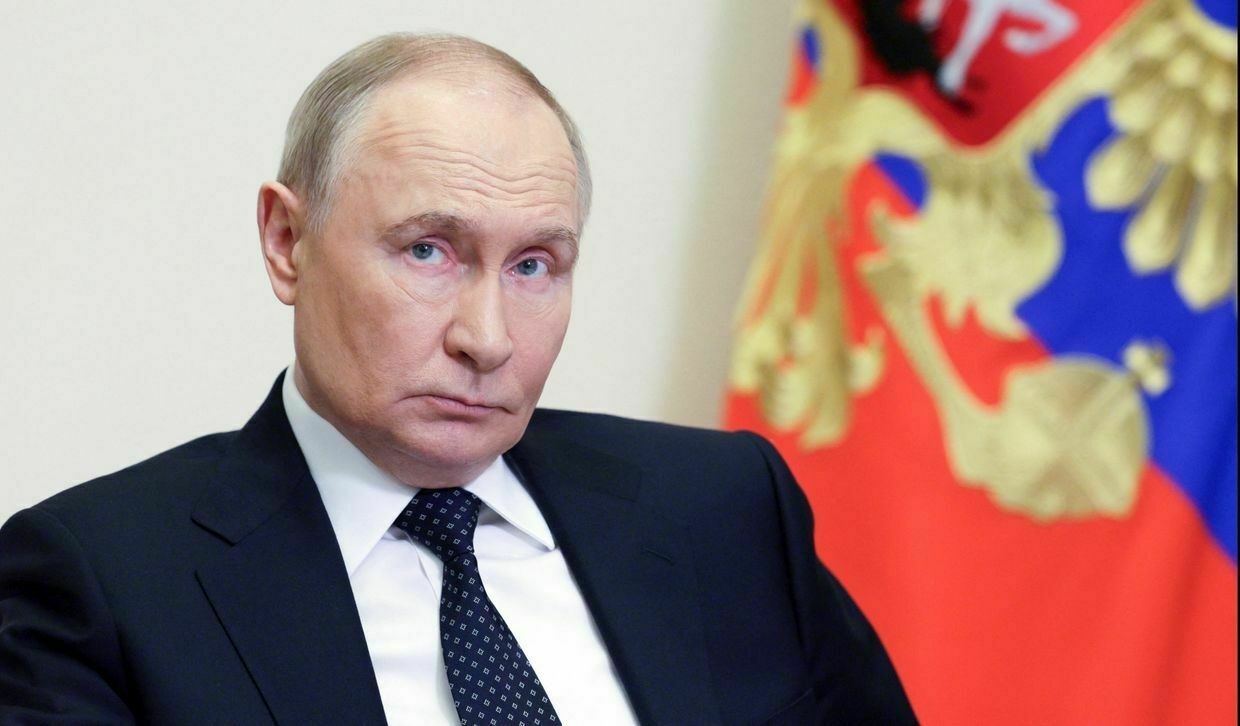
-
Hungary blocks EU statement backing Ukraine’s accession talks at Brussels summit
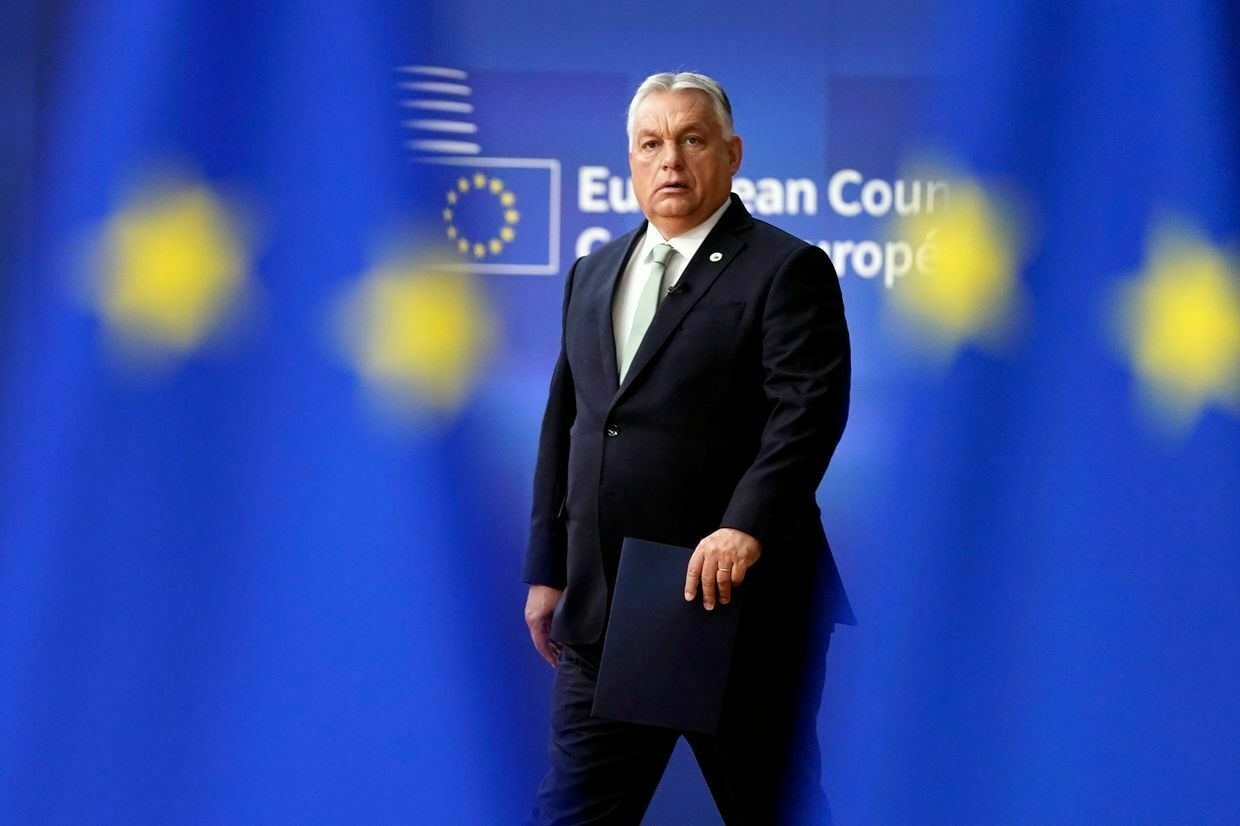
The European Council failed to unanimously adopt a statement of support for Ukraine during its June 26 meeting in Brussels, after Hungary once again failed to support it.
On the eve of the European Council summit, Hungary’s government announced on June 26 that 95% of participants in a so-called “national consultation” opposed Ukraine’s accession to the EU.
The highly-particized plebiscite, promoted by Prime Minister Viktor Orban’s government, has already drawn criticism over its credibility and turnout, raising concerns that Orban may use its results to justify future resistance to Ukraine’s EU accession.
To register their “vote” in the national consultation, Hungarian citizens received their “ballot” in the post, together with a letter from Orban urging people to vote against.
According to the European Council’s statement, the document found “firmly supported” by 26 out of the 27 states. All EU states, except Hungary, reaffirmed Ukraine’s “inherent right to choose its own destiny” and support for the country’s “path towards EU membership."
“The European Council commends Ukraine for the pace of its accession-related reforms under the most challenging circumstances, welcomes the significant progress achieved, and encourages Ukraine and the Commission to intensify work in the accession process,” the statement read.
EU member states also agreed to take note of the Commission’s assessment that Ukraine is ready to open the Fundamentals cluster. However, formal negotiations can only begin with the unanimous consent of all 27 member states.
Ukraine applied for EU membership shortly after Russia launched its war in 2022 and was granted candidate status within months.
As an EU member, Hungary has veto power over further progress.
Orban said he voted against Ukraine’s accession to the EU in the consultation, publicly sharing photos of himself marking “against” on the poll ballot. He warned earlier this year that allowing Kyiv to join the EU would “destroy” Hungary.
With Trump disengaged and EU complacent, Ukrainian reforms lose momentumRussia’s all-out war has accelerated Ukraine’s push to join the European Union and NATO, as well as its dependency on Western loans and aid. Before, these things would have been heavily preconditioned on Ukraine implementing crucial reforms. However, the war has also eased the pressure on Kyiv to carry outThe Kyiv IndependentOleg Sukhov
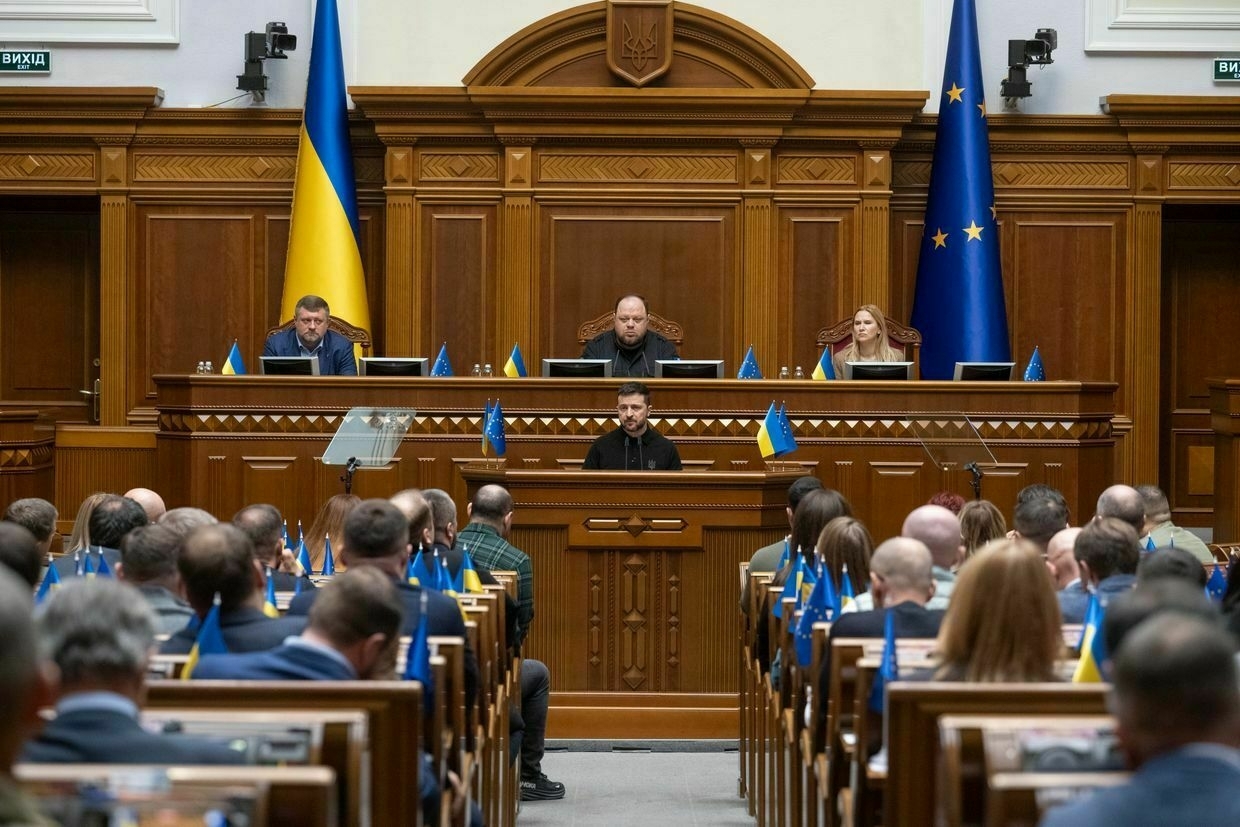
-
Trump and Zelenskyy meet in the Hague – What does that mean for Ukraine?
-
Ukrainian journalist to Trump: My husband is on the front line – his reaction surprised everyone
-
Trump vowed at NATO summit that Russia won’t attack alliance during his presidency, WP reports
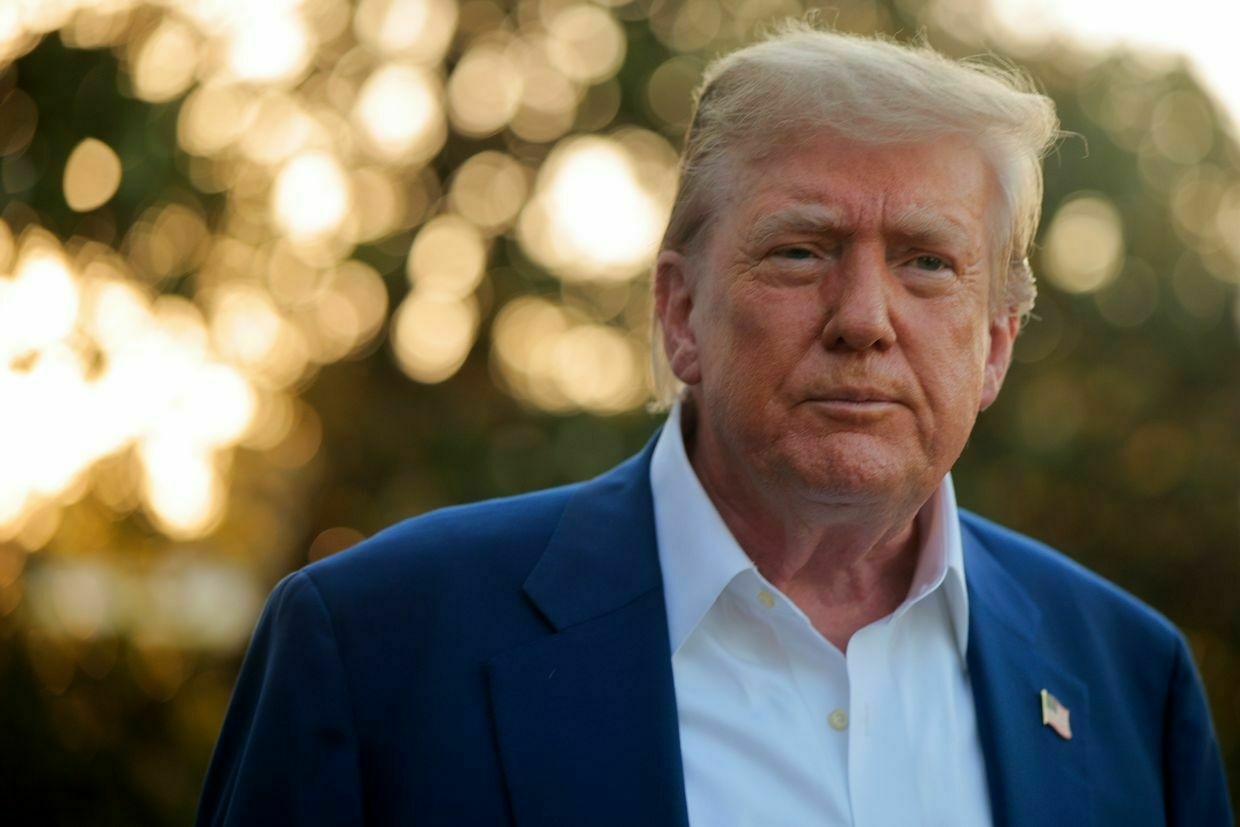
U.S. President Donald Trump promised during the NATO summit in The Hague that Russia would never attack the alliance while he is in office, the Washington Post reported on June 26, citing three unnamed European officials.
Speaking at a briefing in The Hague a day earlier, Trump, however, did not rule out that Russia has territorial ambitions beyond Ukraine.
“It’s possible,” he said.
Still, the U.S. president immediately downplayed Moscow’s threat and aggression against Ukraine, saying Russian President Vladimir Putin was “misguided."
Foreign officials and EU diplomats have increasingly called for the preparation for a potential full-scale conflict between NATO and Russia.
Trump’s remarks came days after President Volodymyr Zelensky said that Ukraine’s intelligence has proof that Russia is preparing new military operations in Europe and just a week after Putin declared “all of Ukraine is ours."
During the summit, NATO Secretary General Mark Rutte called on alliance members to be realistic about the threats posed by Russia and China. Previously, he warned that Russia could be ready to launch an attack against the alliance within five years.
Amid rising threats from Russia, NATO member states have agreed to a new defense spending benchmark, committing to allocate 5% of their gross domestic product annually to defense and security-related expenditures by 2035.
In early June, German intelligence chief Bruno Kahl said Russia may try to test NATO’s unity with provocations beyond Ukraine, as some Russian officials believe that the alliance’s collective defense principle no longer works.
Putin under pressure to declare war on Ukraine, but experts say Russia isn’t readyDespite suffering over 1 million casualties, pounding Ukrainian cities nightly with missiles and drones, and committing countless war crimes, one startling fact about Russia’s full-scale invasion remains — Moscow has yet to officially declare war on Ukraine. In February 2022, Russian President Vladimir Putin described what he believed was going to be a swift victory and the capture of Kyiv within days as a “special military operation.” Nearly three-and-a-half years later, the Kremlin is stuck The Kyiv IndependentChris York
The Kyiv IndependentChris York